Jun 26, 2017 | Non categorizzato
After the arrival of the “Pilgrim Cross” where the World Youth Jubilee 2019 will be held, Archbishop José Domingo Ulloa Mendieta, O.S.A., launched the initiative in which, on the 22nd day of each month “prayers will be said together” for this important event. The prayer of last 22 June was entrusted to the local Focolare communities. At the conclusion of the Mass, the Archbishop placed the “Pilgrim Cross” in the hands of the Focolare young people along with the icon of Our Lady. “It was beautiful to receive and carry the Cross of the World Youth Jubilee,” the young people wrote, “and we took the opportunity to tell the Archbishop that he could count on us; and he answered: “I do count on you. It was a celebration of the family of the Church!”
Jun 26, 2017 | Non categorizzato
In 1987 the General Assembly of the United Nations called for a World Day Against Drug Abuse and Illicit Trafficking to be observed on June 26, callinng attention to one of the worst dramas of our planet and to voice support for all the efforts to combat it. According to the 2016 Report of the United Nations Office on Drugs and Crime, 250 million people between the ages of 15 and 64 had made use of drugs in the preceding year. The campaign is aimed towards everyone, but particularly young people who often talk about the “rocking effects” of drugs while forgetting the many “negative effects”. The use of drugs is worrisome and represents a wound on society that threatens public health both in terms of prevention as well as care and treatment of the negative effects of drug use.
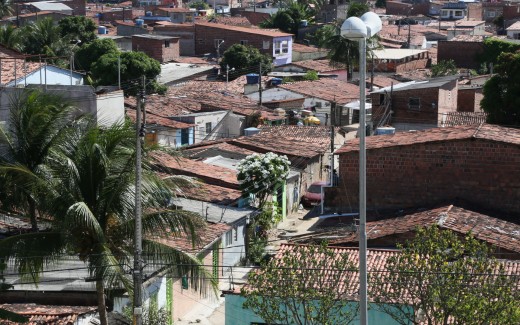
Jun 26, 2017 | Non categorizzato
 On the island of Santa Teresina “When you live in a state of extreme poverty, or you fall into inertia, or else the only alternative is violence. From the charism of unity I’ve learned that I could become an agent of social transformation in my local environment: trying to work for the local residents, helping to rebuild a mocambo, finding potable water for families. Two years later I was elected president of the St Teresina Citizens Association. I continued the work begun by my predecessors, made sure there was transparency in the public administration, making it clear that if each of us helped the other, God would help us all.” (J. – Brazil) The tax agent I’m a tax agent. It’s a difficult job that I’ve always tried to carry out as a service to the country. I tried to see and serve Jesus in every person, trying to create a relationship with each person. Several years back I was assigned to the Investigative and Executive Department. In practice, I had to convince people who were outside the law, to pay the taxes so that they wouldn’t be sanctioned. It’s quite difficult and requires a good dose of patience. Little by little I gained the respect of the people with whom I was in contact, many of whom because aware of the need and benefit of staying within the rules.” (A.N. – Kenya) Contagious solidarity “Years ago, a social worker friend had asked us to host a seventeen-year-old for a week, who was nearly blind. For various reasons he wasn’t able to stay at the Institute nor to return home with his parents. After talking it over with our boys, who were already teenagers, we decided together to say yes, even though the decision would involve a bit of sacrifice for each one of us. The house was already small for our four children, who were students and in need of space. Miriam came to stay with us and, with the help of everyone, inserted herself so well that she helped out at one of our children’s birthdays that was happening in those days. It turned out to be not only one week, but three. We remember it as one of the powerful experiences of our family. That experience of offering hospitality was still helpful many years later. Our married daughter and mother of two boys, hosted a maladjusted boy who, for Easter, would have been left alone at the Institute. Another one of our sons, now married with three boys, welcomed him for Christmas dinner, along with his mother-in-law, who was sick in the mind. Solidarity is contageous.” (H.G. Austria)
On the island of Santa Teresina “When you live in a state of extreme poverty, or you fall into inertia, or else the only alternative is violence. From the charism of unity I’ve learned that I could become an agent of social transformation in my local environment: trying to work for the local residents, helping to rebuild a mocambo, finding potable water for families. Two years later I was elected president of the St Teresina Citizens Association. I continued the work begun by my predecessors, made sure there was transparency in the public administration, making it clear that if each of us helped the other, God would help us all.” (J. – Brazil) The tax agent I’m a tax agent. It’s a difficult job that I’ve always tried to carry out as a service to the country. I tried to see and serve Jesus in every person, trying to create a relationship with each person. Several years back I was assigned to the Investigative and Executive Department. In practice, I had to convince people who were outside the law, to pay the taxes so that they wouldn’t be sanctioned. It’s quite difficult and requires a good dose of patience. Little by little I gained the respect of the people with whom I was in contact, many of whom because aware of the need and benefit of staying within the rules.” (A.N. – Kenya) Contagious solidarity “Years ago, a social worker friend had asked us to host a seventeen-year-old for a week, who was nearly blind. For various reasons he wasn’t able to stay at the Institute nor to return home with his parents. After talking it over with our boys, who were already teenagers, we decided together to say yes, even though the decision would involve a bit of sacrifice for each one of us. The house was already small for our four children, who were students and in need of space. Miriam came to stay with us and, with the help of everyone, inserted herself so well that she helped out at one of our children’s birthdays that was happening in those days. It turned out to be not only one week, but three. We remember it as one of the powerful experiences of our family. That experience of offering hospitality was still helpful many years later. Our married daughter and mother of two boys, hosted a maladjusted boy who, for Easter, would have been left alone at the Institute. Another one of our sons, now married with three boys, welcomed him for Christmas dinner, along with his mother-in-law, who was sick in the mind. Solidarity is contageous.” (H.G. Austria)
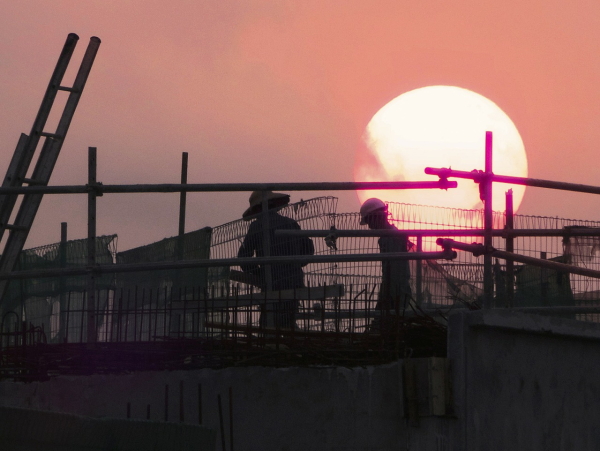
Jun 25, 2017 | Non categorizzato
 In the light of the Christian faith, humankind is shown to be the image of God. The Old Testament teaches that God made humankind in his own image and likeness. This origin in God confers upon humankind’s raggedness, woundedness and spirit a beauty that is above human. This beauty becomes even greater in Christianity, because humankind is seen not only as the image of God, but also as God’s creation and worthy of the Creator, the artwork is worthy of the artist. The Omnipotent could not but create beings worthy of Him. In humankind, He created a masterpiece that makes one dizzy to behold, bestowing upon him an admirable form to last and to generate, an intelligence to enlighten, a heart with which it could project itself on its fellow beings, a soul to evade the limits of time and space, with the angels in Eternity. Humankind fell, it’s true, abusing its freedom; but it’s also true that the most exalted prodigy of Divine Love came attached to that Fall: Redemption through the Blood of Christ. Seen in this way, humankind – albeit a poor wretch you zoom by on the sidewalk, or a native who lives miles and miles away – is such a grand being, such a noble being, such a divine being that you should want to kneel down whenever you were in its presence, to tremble and be overwhelmed, as you recognized in it the majesty of the One who imagined it and made it the prodigy of Creation, the object of the supernatural life in the life of nature. It immediately becomes clear what such a vision does in you. It makes it impossible and absurd for you to exploit human beings, to degrade them, to tamper with them, to supress them, without violating the work of God, without affecting the very patrimony of the Creator. Humankind is Son of God, and any offence against the son is an outrage to the Father: murder becomes an attempted God-killing, tantamount to killing God in effigy. Humankind barters its dignity when it bends to evil. And among the sins is the pride that is put in place of humankind’s humble gratitude at realizing it is God’s masterpiece. From pride comes exploitation, which is an antisocial impetus; whereas, Christian humility creates service and, also in this, humankind is a copy of that other Son of Man who came not to be served, but to serve. And herein comes the welding of the individual to society: its integration, its expansion. Humankind does not exist in the abstract: fathers exist, citizens exist, believers, and so on…the social animal exists. Only that human beings enters into society boosted by. Because human beings love, they come out of the shell of their egos, they expand, they integrate – in the life of the others. By the mere fact that human beings love, he and she already reveal that they are naturally Christian. Christianity then lifts up and supports this love, saying that love takes the person into society, saying that the vital principle of society is love: without which society, rather than protection, compliment and joy of the human person, becomes a constriction and a mutilation of a person. It can become a threat to human dignity. Social exploitation begins when you no longer love humanity; when you no longer respect its dignity; because you see the muscles and you don’t see the spirit. Igino Giordani, La società cristiana, (Rome: Città Nuova, 1942), 32-36.
In the light of the Christian faith, humankind is shown to be the image of God. The Old Testament teaches that God made humankind in his own image and likeness. This origin in God confers upon humankind’s raggedness, woundedness and spirit a beauty that is above human. This beauty becomes even greater in Christianity, because humankind is seen not only as the image of God, but also as God’s creation and worthy of the Creator, the artwork is worthy of the artist. The Omnipotent could not but create beings worthy of Him. In humankind, He created a masterpiece that makes one dizzy to behold, bestowing upon him an admirable form to last and to generate, an intelligence to enlighten, a heart with which it could project itself on its fellow beings, a soul to evade the limits of time and space, with the angels in Eternity. Humankind fell, it’s true, abusing its freedom; but it’s also true that the most exalted prodigy of Divine Love came attached to that Fall: Redemption through the Blood of Christ. Seen in this way, humankind – albeit a poor wretch you zoom by on the sidewalk, or a native who lives miles and miles away – is such a grand being, such a noble being, such a divine being that you should want to kneel down whenever you were in its presence, to tremble and be overwhelmed, as you recognized in it the majesty of the One who imagined it and made it the prodigy of Creation, the object of the supernatural life in the life of nature. It immediately becomes clear what such a vision does in you. It makes it impossible and absurd for you to exploit human beings, to degrade them, to tamper with them, to supress them, without violating the work of God, without affecting the very patrimony of the Creator. Humankind is Son of God, and any offence against the son is an outrage to the Father: murder becomes an attempted God-killing, tantamount to killing God in effigy. Humankind barters its dignity when it bends to evil. And among the sins is the pride that is put in place of humankind’s humble gratitude at realizing it is God’s masterpiece. From pride comes exploitation, which is an antisocial impetus; whereas, Christian humility creates service and, also in this, humankind is a copy of that other Son of Man who came not to be served, but to serve. And herein comes the welding of the individual to society: its integration, its expansion. Humankind does not exist in the abstract: fathers exist, citizens exist, believers, and so on…the social animal exists. Only that human beings enters into society boosted by. Because human beings love, they come out of the shell of their egos, they expand, they integrate – in the life of the others. By the mere fact that human beings love, he and she already reveal that they are naturally Christian. Christianity then lifts up and supports this love, saying that love takes the person into society, saying that the vital principle of society is love: without which society, rather than protection, compliment and joy of the human person, becomes a constriction and a mutilation of a person. It can become a threat to human dignity. Social exploitation begins when you no longer love humanity; when you no longer respect its dignity; because you see the muscles and you don’t see the spirit. Igino Giordani, La società cristiana, (Rome: Città Nuova, 1942), 32-36.
Jun 24, 2017 | Non categorizzato
Today, 24 June, marks the end of the Ramadan, the period of 29 or 30 days during which the Muslims recall «the month in which the Koran was revealed as a guide for humanity and which is a clear proof of the right way and salvation» (Koran, Sura II, verse185). During this period, fasting from dawn to sunset constitutes the fourth of the five pillars of Islam. The spiritual meaning of fasting accompanied by prayer and meditation, sexual abstinence and renunciation in general, according to many theologians, refers to the capacity of man to self-discipline himself, exercising patience and humility and remembering to help the more needy and those who are less fortunate. Ramadan is, therefore, a sort of exercise in purity against all worldly passions, the benefits of which will fall on the faithful all year round.
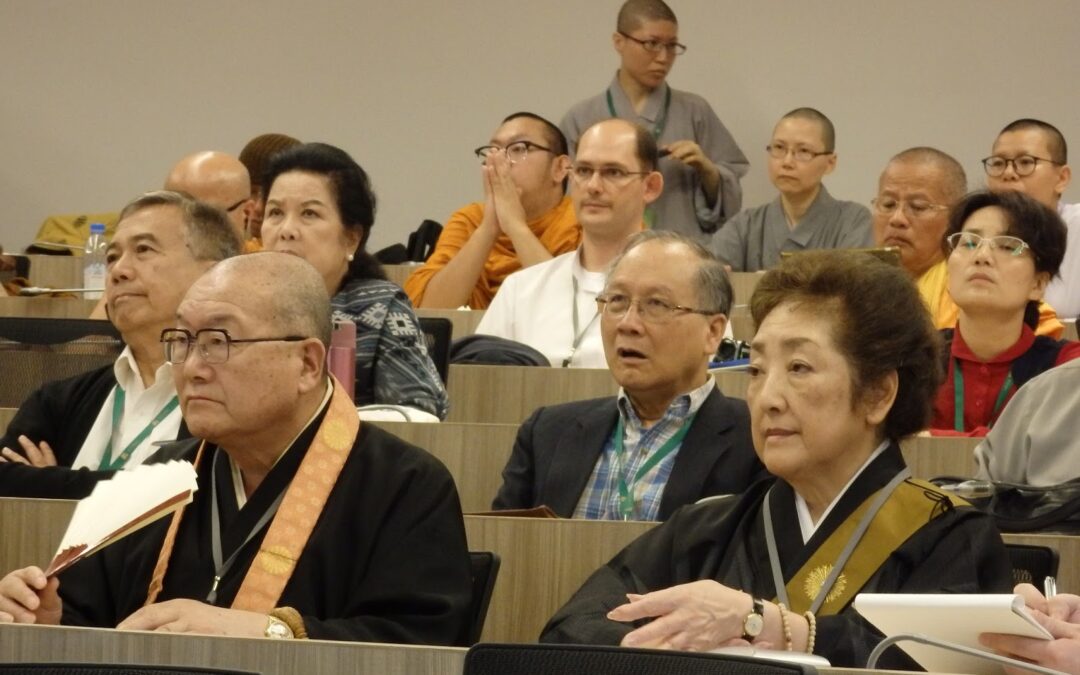
Jun 24, 2017 | Focolare Worldwide
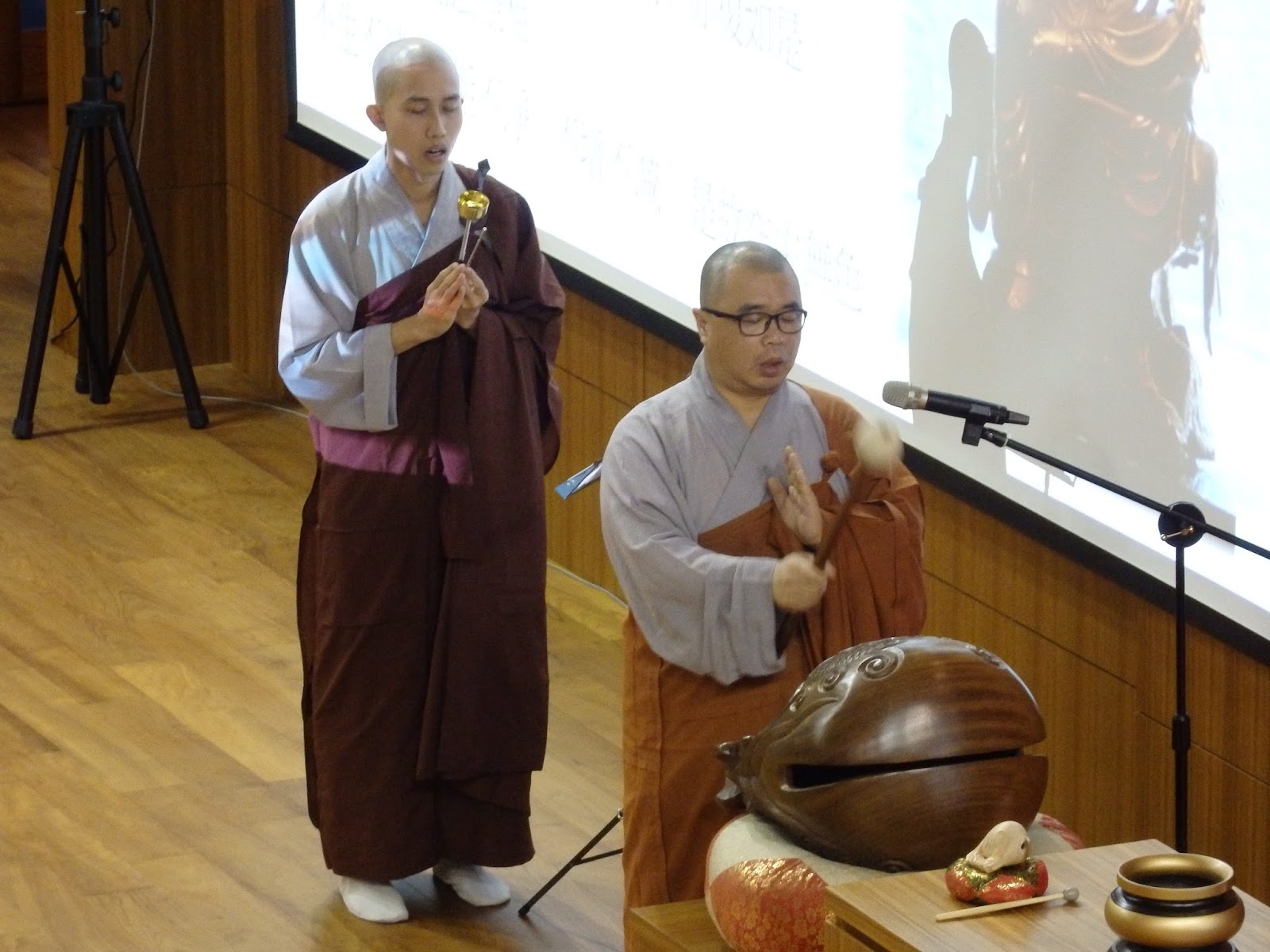 We reached Dharma Drum last night at dusk, where we were welcomed with exquisite kindness by young volunteers who helped us to get settled in our rooms. Then there was dinner and greetings. The symposium began the next morning. The conference hall and the entire building that holds the College of Liberal Arts is modern, built by a Japanese architect with elevated gardens to ensure a pleasant climate even during the hot rainy season, despite the humidity seeming to dominate all year long. The food they offer us is completely vegetarian and at a high culinary level, the expression of a delicate and attentive welcome that helps us feel at home.
We reached Dharma Drum last night at dusk, where we were welcomed with exquisite kindness by young volunteers who helped us to get settled in our rooms. Then there was dinner and greetings. The symposium began the next morning. The conference hall and the entire building that holds the College of Liberal Arts is modern, built by a Japanese architect with elevated gardens to ensure a pleasant climate even during the hot rainy season, despite the humidity seeming to dominate all year long. The food they offer us is completely vegetarian and at a high culinary level, the expression of a delicate and attentive welcome that helps us feel at home. 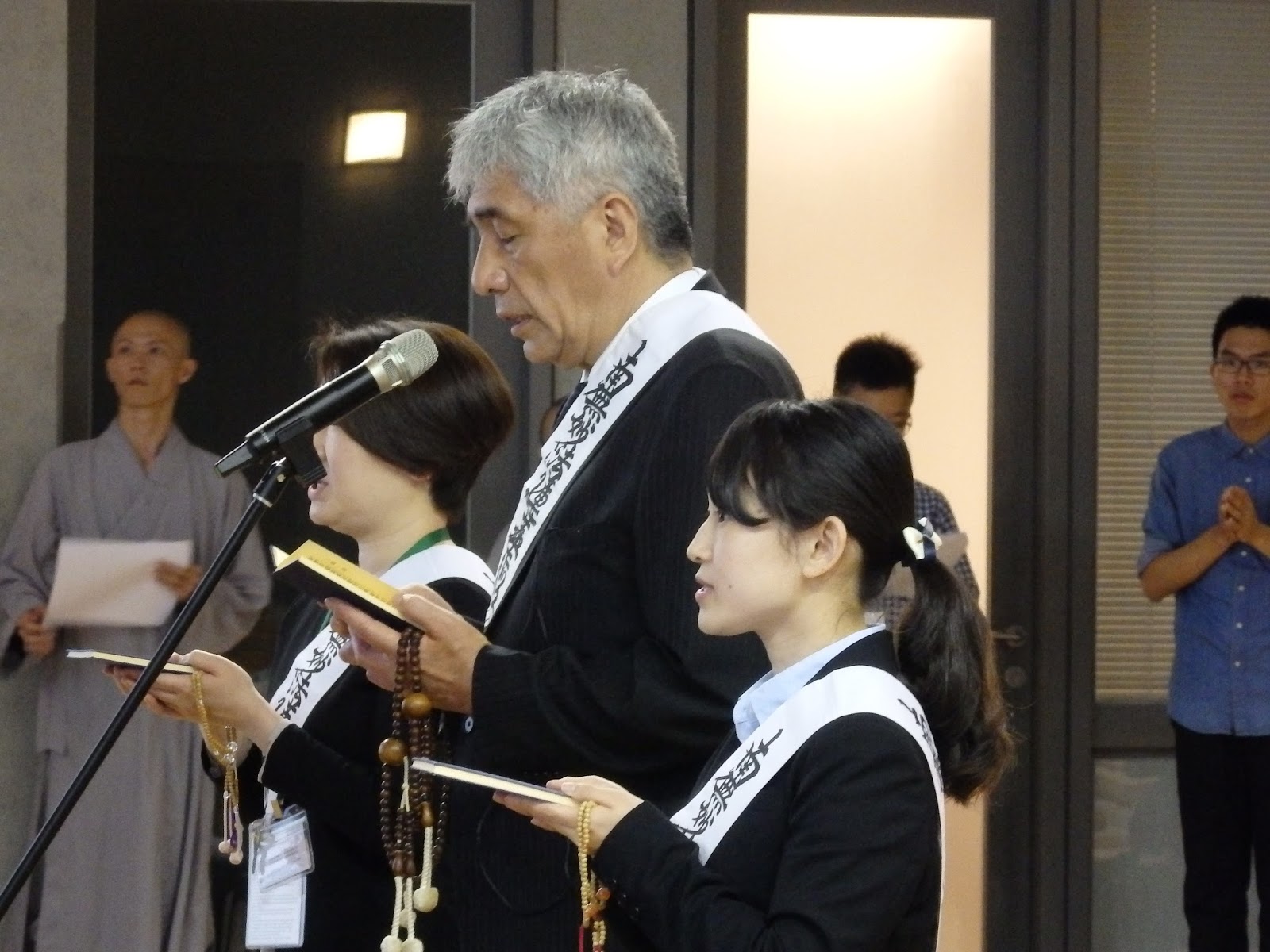 The opening ceremony begins at 10am. One of the members of the teaching faculty, Guohuei Shih, presents the professors there. Father Giuseppe Silvestrini, the official representative of the Vatican, greets the group, followed by Rita Moussalem and Roberto Catalano, co-directors of the Focolare’s Center for Interreligious Dialogue. There are about 70 of us from the U.S. Europe, Thailand, Korea, Japan, Philippines, China and Taiwan – both Buddhists from different traditions and Catholics. There are Theravada monks and laypeople from Thailand, Mahayana Buddhists from Japan who represent ancient schools such as Nichiren-Shu, Tendai-Shu and more recent movements such as the Rissho Kosei-kai. There is a lot of warmth between everyone present, including those who have brought their young followers. These are relationships that have been established through the years. After the opening ceremony, there was a visit to the huge complex, which brought the various groups to different parts of Dharma Drum Mountain. Visiting the museum of Master Sheng Yen, the founder of Dharma Drum and reformer of Chan Buddhism, was particularly meaningful. In the afternoon we continued by touring the various halls, where images of the Buddha are venerated. There was an especially interesting lesson on how to venerate the Enlightened One. The Theravada monks humbly learned from the same tradition that the young monks do there at that university.
The opening ceremony begins at 10am. One of the members of the teaching faculty, Guohuei Shih, presents the professors there. Father Giuseppe Silvestrini, the official representative of the Vatican, greets the group, followed by Rita Moussalem and Roberto Catalano, co-directors of the Focolare’s Center for Interreligious Dialogue. There are about 70 of us from the U.S. Europe, Thailand, Korea, Japan, Philippines, China and Taiwan – both Buddhists from different traditions and Catholics. There are Theravada monks and laypeople from Thailand, Mahayana Buddhists from Japan who represent ancient schools such as Nichiren-Shu, Tendai-Shu and more recent movements such as the Rissho Kosei-kai. There is a lot of warmth between everyone present, including those who have brought their young followers. These are relationships that have been established through the years. After the opening ceremony, there was a visit to the huge complex, which brought the various groups to different parts of Dharma Drum Mountain. Visiting the museum of Master Sheng Yen, the founder of Dharma Drum and reformer of Chan Buddhism, was particularly meaningful. In the afternoon we continued by touring the various halls, where images of the Buddha are venerated. There was an especially interesting lesson on how to venerate the Enlightened One. The Theravada monks humbly learned from the same tradition that the young monks do there at that university. 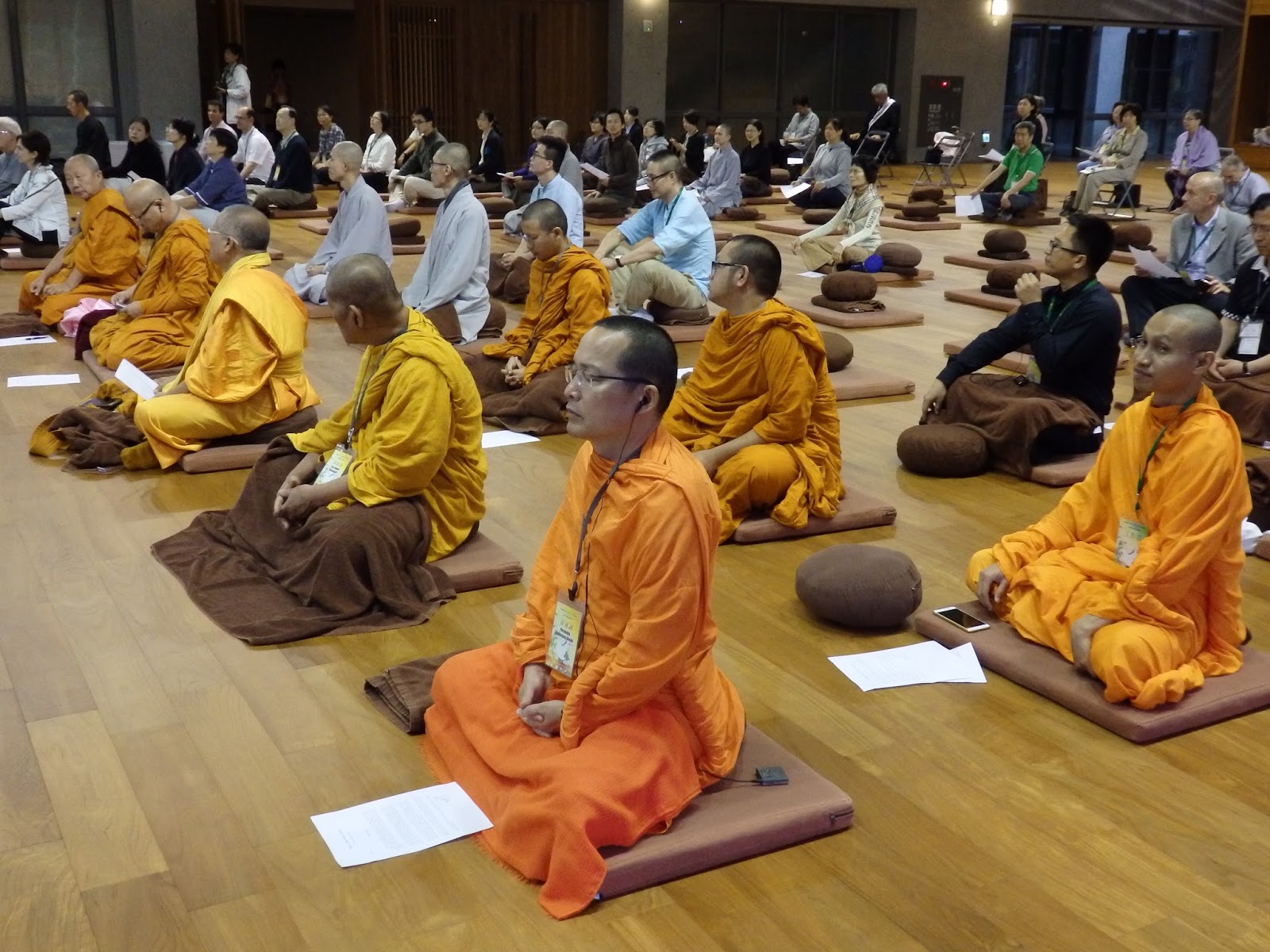 The most beautiful moment of the day is called “blessing time”: a long moment of prayer where each person prays according to their tradition – a moment of solemnness, respect and silence. In the hall dedicated to Buddha, where Christians that morning had celebrated mass, we spend an hour-and-a-half in a string of prayers. The Theravada monks begin and the Christians follow. Following them, there are the members of the Rissho Kosei-kai and Tendai-Shu, finishing with the Fo Gu Shan monks. Time seems to stop, and we feel greatly enriched in our hearts. It feels as if we are touching humanity’s infinite yearning and need to reach the absolute, especially faced with the immense problems of suffering and war. As we leave we feel closer to each other, despite having had the part of the program where our differences surfaced the most. There is a spirit of communion and mutual respect that brings us closer during every part of the program. In the days that follow, work continues so that we continually grow to know each other better with a rapport of friendship and true fraternity. We speak about suffering, with speeches on the personal and social dimension of suffering, presented by Christians, Theravada Buddhists from Thailand, Mahayana Buddhists, the Rissho Kosei-kai, Tendai-Shu and Won Buddhism from Korea. There are also workshops in parallel where the presenters discuss religion and psychology, dialogue and social action, experiences of dialogue in a variety of contexts, and mediation and dialogue, with a particular emphasis on Vipassana mediation. Three experts conclude the program with some reflections on the content that emerged during this work.
The most beautiful moment of the day is called “blessing time”: a long moment of prayer where each person prays according to their tradition – a moment of solemnness, respect and silence. In the hall dedicated to Buddha, where Christians that morning had celebrated mass, we spend an hour-and-a-half in a string of prayers. The Theravada monks begin and the Christians follow. Following them, there are the members of the Rissho Kosei-kai and Tendai-Shu, finishing with the Fo Gu Shan monks. Time seems to stop, and we feel greatly enriched in our hearts. It feels as if we are touching humanity’s infinite yearning and need to reach the absolute, especially faced with the immense problems of suffering and war. As we leave we feel closer to each other, despite having had the part of the program where our differences surfaced the most. There is a spirit of communion and mutual respect that brings us closer during every part of the program. In the days that follow, work continues so that we continually grow to know each other better with a rapport of friendship and true fraternity. We speak about suffering, with speeches on the personal and social dimension of suffering, presented by Christians, Theravada Buddhists from Thailand, Mahayana Buddhists, the Rissho Kosei-kai, Tendai-Shu and Won Buddhism from Korea. There are also workshops in parallel where the presenters discuss religion and psychology, dialogue and social action, experiences of dialogue in a variety of contexts, and mediation and dialogue, with a particular emphasis on Vipassana mediation. Three experts conclude the program with some reflections on the content that emerged during this work. 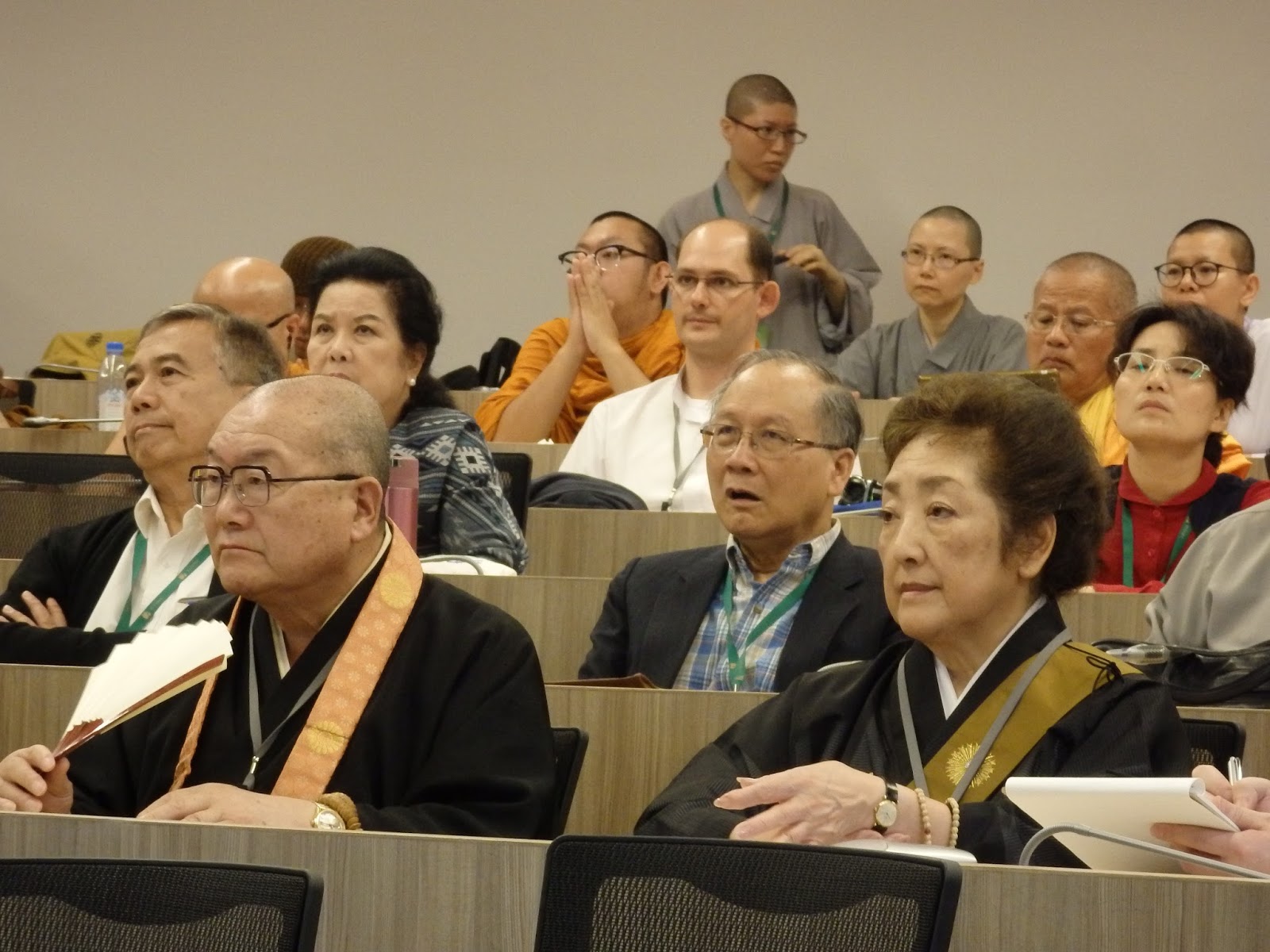 Beyond all this, what counts most is the atmosphere that was created. The head of the Dharma Institute of Liberal Arts, Rev. Huimin Bikshu, confides that this is the first meeting of its kind at the university. Besides those signed up as participants, there are also monks and nuns from the Dharma Drum Monastery and students of the college. The day is marked by a great spiritual and existential commitment. The dialogue allows us to emphasize what we have in common, despite there being great differences between the traditions. There are experiences that put up bridges of dialogue that bring hope, as Rev. Nisyoka from the Japanese Tendai-Shu affirms. The conclusion of the work happens in the afternoon, organized by Providence University, an academic institution located at Thien Chu. There we talk about economics, the environment and interreligious dialogue. The results from this week of common experience, reflection and spiritual friendship are difficult to convey. They are part of each of the participants’ souls. Perhaps what was said by a young Japanese monk, the abbot of a temple in his country, explains the depth of the experience best. “Rarely in life have I perceived the intimate presence of God-Buddha as I have in these days at our symposium in Taiwan… I have studied in Christian schools and I always thought that Christianity was a religion that happens in church (rites and religious services). During the symposium in Taiwan I understood that Christianity, instead, is the religion of the presence of God among people.” By Roberto Catalano Read Part I
Beyond all this, what counts most is the atmosphere that was created. The head of the Dharma Institute of Liberal Arts, Rev. Huimin Bikshu, confides that this is the first meeting of its kind at the university. Besides those signed up as participants, there are also monks and nuns from the Dharma Drum Monastery and students of the college. The day is marked by a great spiritual and existential commitment. The dialogue allows us to emphasize what we have in common, despite there being great differences between the traditions. There are experiences that put up bridges of dialogue that bring hope, as Rev. Nisyoka from the Japanese Tendai-Shu affirms. The conclusion of the work happens in the afternoon, organized by Providence University, an academic institution located at Thien Chu. There we talk about economics, the environment and interreligious dialogue. The results from this week of common experience, reflection and spiritual friendship are difficult to convey. They are part of each of the participants’ souls. Perhaps what was said by a young Japanese monk, the abbot of a temple in his country, explains the depth of the experience best. “Rarely in life have I perceived the intimate presence of God-Buddha as I have in these days at our symposium in Taiwan… I have studied in Christian schools and I always thought that Christianity was a religion that happens in church (rites and religious services). During the symposium in Taiwan I understood that Christianity, instead, is the religion of the presence of God among people.” By Roberto Catalano Read Part I
Jun 23, 2017 | Non categorizzato
115 parliamentarians of the Interparliamentary Assembly on Orthodoxy (I.A.O.) are expected to attend the 24th General Assembly, hosted on 26 and 27 June 2017 by the Italian Parliament in Montecitorio. They are representative of parliaments in 46 countries across 5 continents. The delegations include participants from Cyprus, Georgia, Greece, Kazakhstan, the Russian Federation, Syria and Hungary. The assembly will start with a visit on Sunday, 25 June to the Byzantine monastery of San Nilo in Grottaferrata (Rome), followed by a meeting of the IAO International Bureau with Maria Voce, President of the Focolare, at the International Centre in Rocca di Papa (Rome). See press release
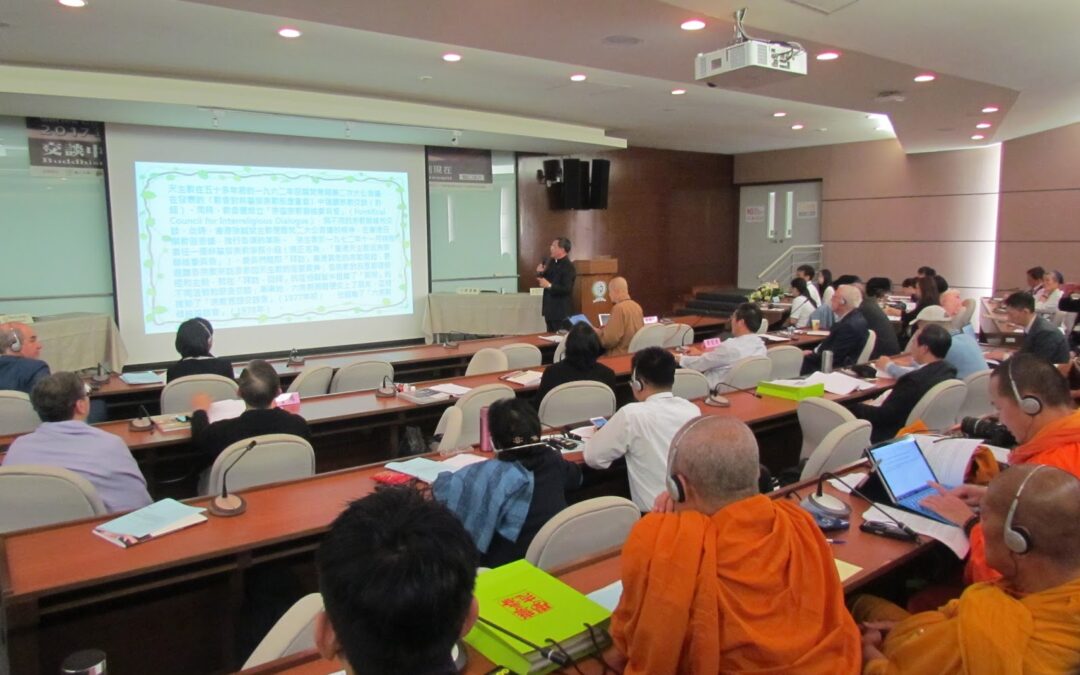
Jun 23, 2017 | Non categorizzato
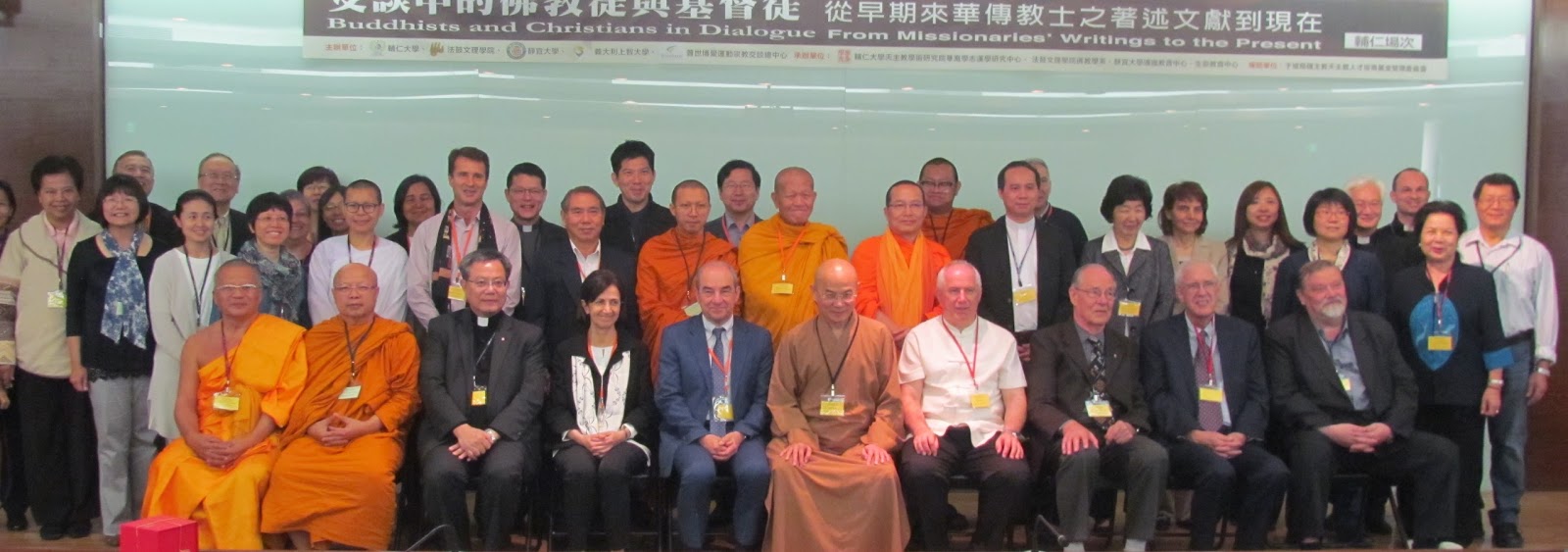 The event featured a new format punctuated by three distinct elements, the venue and religious context of a pilgrimage of dialogue, a common journey, which is an image dear to the Pope Francis who often invites us to walk together across the vast landscape of interreligious dialogue. Part one of the event was held at Fu Jen University, which is the most prestigious Catholic university on the island. The title of the event was inviting: Buddhists and Christians in Dialogue: from the writings of the missionaries to interreligious dialogue. It provoked reflection on how much has changed in the world of the religions from when the first missionaries arrived in the East at the start of the fifteenth century until today when we are working on one of the fundamental needs of humankind: dialogue between people who believe, whatever their faith may be.
The event featured a new format punctuated by three distinct elements, the venue and religious context of a pilgrimage of dialogue, a common journey, which is an image dear to the Pope Francis who often invites us to walk together across the vast landscape of interreligious dialogue. Part one of the event was held at Fu Jen University, which is the most prestigious Catholic university on the island. The title of the event was inviting: Buddhists and Christians in Dialogue: from the writings of the missionaries to interreligious dialogue. It provoked reflection on how much has changed in the world of the religions from when the first missionaries arrived in the East at the start of the fifteenth century until today when we are working on one of the fundamental needs of humankind: dialogue between people who believe, whatever their faith may be. 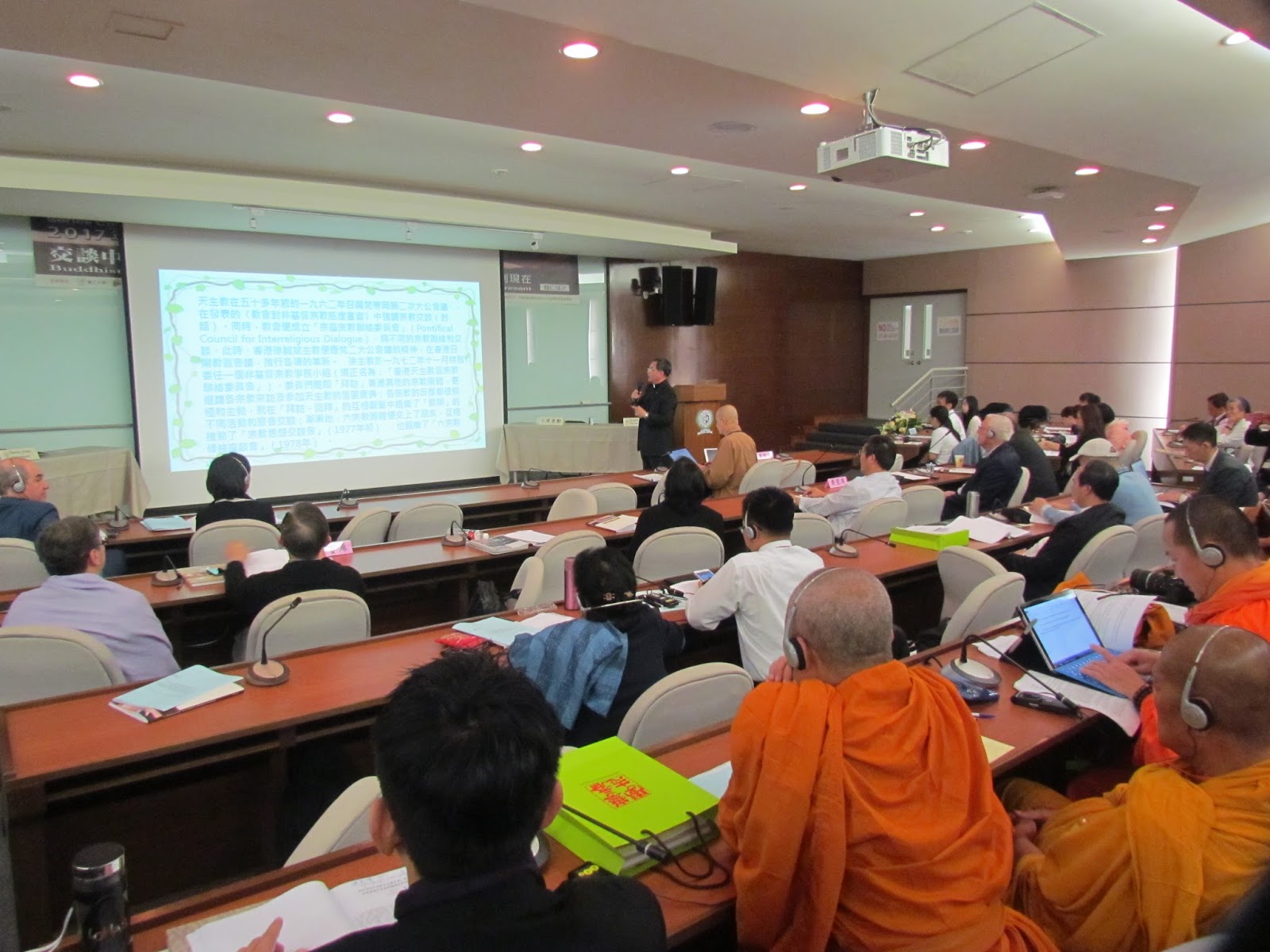 The day of reflection was co-organized by the Catholic University of Taiwan, by Sophia University Institute and the Focolare Centre for Interreligious Dialogue, and by Dharma Drum Mountain Buddhist Monastery and University, one of the renewal centres of Chan Buddhism of China. Seventy of the attendees were experts in the field: a large number of Theravada monks, Buddhist and Catholic lay people from Thailand, a group from Taiwan, the president of the Dharma Drum Institute for Liberal Arts, along with people from the academic world. The topics raised much interest. The presentations that regarded the writings of the missionaries were from between the fourteenth and nineteenth centuries. But the nerve centre of the reflection was Matteo Ricci, the great Jesuit apostle of Christianity in this part of the world, a master of that art of adapting that allowed him to reach the soul of the Chinese people. Yet, precisely Ricci was the centre of interest for his anything but accommodating position towards Buddhism, which he and many of his contemporaries saw as a hodgepodge of rites and pagan manifestations. The missionaries from the fifteenth to twentieth century were anything but open to the followers of Buddha and, in their debates, were set on showing who the followers of the true God and true religion were. The workshops also examined the critical position of the followers of Buddha towards Christians. It came into evidence how such sentiments were quite mutual. This historic context, for which we Christians cannot deny the need for an adequate examination of conscience for the errors committed and discriminatory actions, highlighted the positive value of the experience of the past sixty years. Today, dialogue is soaring with relationships of mutual trust and esteem, even though there are still points that always need to be kept clear and eventually defend against in order to preserve precise identity and avoid syncretism. Over the course of the workshop sessions concrete experiences of dialogue were shared from Hong Kong, Korea, Thailand, Philippines – and new actors were proposed, such as ecclesial movements and protagonists that are recognized pioneers of an experience of dialogue that then followed the tracks they had set. The example of spiritual friendship between Chiara Lubich and Nikkyo Niwano, the respective founders of the Focolare Movement and of the Rissho Kosei Kai, demonstrated how renewal movements that have become part of several religions for a century now, have become vehicles of encounter and friendship among people from different cultures and communities. These two sentiments marked the work of the first day of the symposium/pilgrimage in a serene examination of the journey accomplished over the centuries, opening to the hope for a future of reciprocal sharing and collaboration regarding the great challenges of the human race: social justice, the environment and peace. (To be continued) By Roberto Catalano
The day of reflection was co-organized by the Catholic University of Taiwan, by Sophia University Institute and the Focolare Centre for Interreligious Dialogue, and by Dharma Drum Mountain Buddhist Monastery and University, one of the renewal centres of Chan Buddhism of China. Seventy of the attendees were experts in the field: a large number of Theravada monks, Buddhist and Catholic lay people from Thailand, a group from Taiwan, the president of the Dharma Drum Institute for Liberal Arts, along with people from the academic world. The topics raised much interest. The presentations that regarded the writings of the missionaries were from between the fourteenth and nineteenth centuries. But the nerve centre of the reflection was Matteo Ricci, the great Jesuit apostle of Christianity in this part of the world, a master of that art of adapting that allowed him to reach the soul of the Chinese people. Yet, precisely Ricci was the centre of interest for his anything but accommodating position towards Buddhism, which he and many of his contemporaries saw as a hodgepodge of rites and pagan manifestations. The missionaries from the fifteenth to twentieth century were anything but open to the followers of Buddha and, in their debates, were set on showing who the followers of the true God and true religion were. The workshops also examined the critical position of the followers of Buddha towards Christians. It came into evidence how such sentiments were quite mutual. This historic context, for which we Christians cannot deny the need for an adequate examination of conscience for the errors committed and discriminatory actions, highlighted the positive value of the experience of the past sixty years. Today, dialogue is soaring with relationships of mutual trust and esteem, even though there are still points that always need to be kept clear and eventually defend against in order to preserve precise identity and avoid syncretism. Over the course of the workshop sessions concrete experiences of dialogue were shared from Hong Kong, Korea, Thailand, Philippines – and new actors were proposed, such as ecclesial movements and protagonists that are recognized pioneers of an experience of dialogue that then followed the tracks they had set. The example of spiritual friendship between Chiara Lubich and Nikkyo Niwano, the respective founders of the Focolare Movement and of the Rissho Kosei Kai, demonstrated how renewal movements that have become part of several religions for a century now, have become vehicles of encounter and friendship among people from different cultures and communities. These two sentiments marked the work of the first day of the symposium/pilgrimage in a serene examination of the journey accomplished over the centuries, opening to the hope for a future of reciprocal sharing and collaboration regarding the great challenges of the human race: social justice, the environment and peace. (To be continued) By Roberto Catalano
Jun 22, 2017 | Focolare Worldwide
Listening to one another.This was the spirit with which Gabriela Melo and Augusto Parody of the Focolare International Centre set out on their journey to visit the many communities of the Movement diffused in Latin America. They even reached Esmeraldas in Ecuador, on the Pacific Coast, populated mostly by Afro-Ecuadorians, and where the crystalline blue of the sky merges with that of the sea, making the luxuriant vegetation shine like an emerald. This enchanting landscape changes suddenly the minute you enter the town, and especially the view ends with the conglomerations of bamboo and galvanized iron huts in the poor districts like Isla Bonita, Pampon, and Puerto Limon.. The hordes of children play on the streets and on the beach from morning till night, and if they are not saved on time as adolescents and teenagers, they become drug or alcohol addicts, involved in “pandillerism” (the infamous metropolitan gangs of marauders). The spirituality of unity reached Esmeraldas over 30 years ago, and took root precisely among the Afro-Ecuadorian population of families, youths, priests and children who have made the evangelical news of mutual love the law of their lives. It is a ray of spirituality that has lighted up new hope, putting into action new ideas and forces. And this is what happened around Fr. Silvino Mina, who is also part of the community. Through the Ayudav group that formed in his parish he was able to solve many urgent cases of street children and teens, giving rise to the need of reinforcing these aid actions, also by calling the attention of the Institutions. This was how the Fundación Amiga (1992) was born, and with it, a school for kids at risk, with the aim of making their lives more dignified and helping them to face the future through suitable educational programmes. By focusing on their great sportive talents (Esmeraldas is infact known as the cradle of Ecuadorian athletes), they formed a soccer school, and also handicraft laboratories run by the former street youths themselves. «Today, the school has1,700 children and adolescents from 13 to 19 years of age – Don Silvino explained – and with global educational projects, where one tries to put into practice what one learns, the whole educational community of students, teachers and parents is involved. All the children are offered a good meal a day, which for many is the only meal they can afford, together with vaccinations, medical treatments and education on health and Aids prevention. We also study the Afro culture and traditions, and not only these.» Ecuador, in fact, is a crossroad of millenary cultures (Quito was one of the two ancient capitals of the Incas) where they spoke various Amerinde languages (Quechua, Shuar, Tsafiki and others). The government’s endeavour precisely aims to recover local communities, cultures and religious expressions, to establish a dialogue which valorises their diversities in an enriching intercultural experience. This term appears at least eleven times in the new Constitution approved in 2008.«And if we added the socio-political demands–Gabriela and Augusto observed – we could also highlight what is happening in Esmeraldas, the commitment to live the Gospel, and the building of communities where the different ethnic, linguistic and religious components trigger a daily process of integration which is spreading quickly. This is a process which benefits the big intercultural workshop which is Eduador, a country that can really offer the world a unique and sustainable model of encounter and coexistence.»
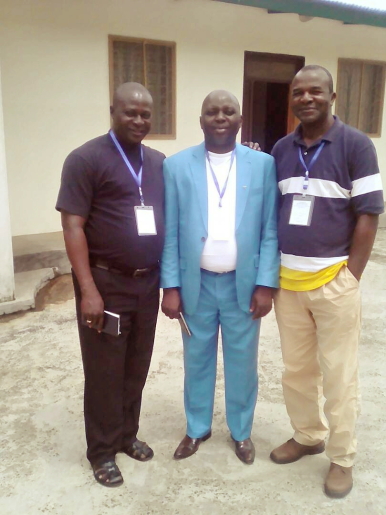
Jun 21, 2017 | Focolare Worldwide
 “Even if it is not officially declared, also here we are fighting the ‘third piecemeal war’. The transitional government is trying to rebuild what the recent civil war has demolished, but has to contend with the strife that often breaks out into fratricide struggles.” Martial Agouais a Catholic priest of the Central African Republic, a country where the majority are Christians and 15% are Muslims. In the absence of a national defense body, the UN sent the peacekeepers, called the “blue helmets”, of some foreign contingents, but there are many interests at stake. The perpetration of the guerilla paradoxically acts also as a cover for foreign hoarders, greedy forthe country’s precious mineral resources. Enemy hunts are always ongoing, and often are fatally found in the tribe right in front, or in the village which practices another religion. The recent news reported about a Catholic bishop, Bishop Juan José Aguirre Muñoz who opened his parish in Tokoyo to host 2,000 Muslims under the attack of the anti-Balaka, also called Christian militias, originally formed as a sort of self-defence groups of the Islamic Seleka gangs, but which lately have often become terrorist groups. This has made no difference between the violent groups who had triggered the revolt, and the civil Muslims, peace-loving people of merchants and the Peul tribe (nomadic cattlemen, also called Mbororo). “My parish,” recounted Fr Martial, “dedicated to the Holy Family, is in Sibut, the capital of the KemoInbingu region. Here in Sibut a meeting of all the authorities was held recently, from the prefect to the mayor, the tribe chiefs of the Munisca force to the district chiefs of the Burundi contingent, and the ex-Selekato the anti-Balaka. At a certain point the chief of the anti-Balakaspoke up to say in a loud voice that the pastors of the various churches, priests, religious men and women must no longer speak about social issues in the churches. All were scared and nobody dared to contradict him. Also I didn’t speak, but that threat did not stop my Christian commitment. I had learned from the spirituality of the Focolare that we have to love everyone, and be concerned about the rights of all. And I said to myself, if I have to choosewhat side to take, I will always choose to stand by the weaker people, the most defenceless.” Two days later, the Peuls were attacked by the anti-Balakain the forest where they were pasturing their cattle, at 18 km along the Bangui axis. Four men were killed and seven among the women and children were wounded. The Munisca brought the wounded to the central hospital of Sibut, but for two days they did not receive any treatment or food. Everyone was afraid to approach them to help them, including the NGOs and the humanitarian services. “When I found out about the situation,” the priest explained, “I took courage and went to the chief of the anti-Balakato ask him to accompany me to the hospital. Upon seeing those wounded Muslims left to themselves in a room with an unbearable smell and in pitiful conditions, both of us were moved to tears. I ran to some Christian families living close to the hospital to ask for water for drinking and to wash them, and also food. I then obtained from the diocesan Caritas director, a means of transport that would bring them to Bangui, 200 km away. Thank God, in three weeks all of them were healed and the Caritas was able to bring them home to their families safe and sound.” Abbé Martial Agoua – Sibut (R.C.A.)
“Even if it is not officially declared, also here we are fighting the ‘third piecemeal war’. The transitional government is trying to rebuild what the recent civil war has demolished, but has to contend with the strife that often breaks out into fratricide struggles.” Martial Agouais a Catholic priest of the Central African Republic, a country where the majority are Christians and 15% are Muslims. In the absence of a national defense body, the UN sent the peacekeepers, called the “blue helmets”, of some foreign contingents, but there are many interests at stake. The perpetration of the guerilla paradoxically acts also as a cover for foreign hoarders, greedy forthe country’s precious mineral resources. Enemy hunts are always ongoing, and often are fatally found in the tribe right in front, or in the village which practices another religion. The recent news reported about a Catholic bishop, Bishop Juan José Aguirre Muñoz who opened his parish in Tokoyo to host 2,000 Muslims under the attack of the anti-Balaka, also called Christian militias, originally formed as a sort of self-defence groups of the Islamic Seleka gangs, but which lately have often become terrorist groups. This has made no difference between the violent groups who had triggered the revolt, and the civil Muslims, peace-loving people of merchants and the Peul tribe (nomadic cattlemen, also called Mbororo). “My parish,” recounted Fr Martial, “dedicated to the Holy Family, is in Sibut, the capital of the KemoInbingu region. Here in Sibut a meeting of all the authorities was held recently, from the prefect to the mayor, the tribe chiefs of the Munisca force to the district chiefs of the Burundi contingent, and the ex-Selekato the anti-Balaka. At a certain point the chief of the anti-Balakaspoke up to say in a loud voice that the pastors of the various churches, priests, religious men and women must no longer speak about social issues in the churches. All were scared and nobody dared to contradict him. Also I didn’t speak, but that threat did not stop my Christian commitment. I had learned from the spirituality of the Focolare that we have to love everyone, and be concerned about the rights of all. And I said to myself, if I have to choosewhat side to take, I will always choose to stand by the weaker people, the most defenceless.” Two days later, the Peuls were attacked by the anti-Balakain the forest where they were pasturing their cattle, at 18 km along the Bangui axis. Four men were killed and seven among the women and children were wounded. The Munisca brought the wounded to the central hospital of Sibut, but for two days they did not receive any treatment or food. Everyone was afraid to approach them to help them, including the NGOs and the humanitarian services. “When I found out about the situation,” the priest explained, “I took courage and went to the chief of the anti-Balakato ask him to accompany me to the hospital. Upon seeing those wounded Muslims left to themselves in a room with an unbearable smell and in pitiful conditions, both of us were moved to tears. I ran to some Christian families living close to the hospital to ask for water for drinking and to wash them, and also food. I then obtained from the diocesan Caritas director, a means of transport that would bring them to Bangui, 200 km away. Thank God, in three weeks all of them were healed and the Caritas was able to bring them home to their families safe and sound.” Abbé Martial Agoua – Sibut (R.C.A.)
Jun 20, 2017 | Non categorizzato
June 20: Pope Francis visits two Italian towns,Bozzolo and Barbiana, “to pay homage to Fr Primo Mazzolari and Fr Lorenzo Milani, the two priests who today offer us a timely message. I thank those, especially the priests, who will accompany me with their prayer,” said the Pope at the Angelus on Sunday, 18th June. The visit to the tombs will be a significant gesture as both priests had reputations of being anti-establishment and therefore marginalised. They were precursors of the Second Vatican Council and forerunners of the Church of the Poor, as Pope Francis himself pointed out, holding them up as examples to follow.
Jun 20, 2017 | Non categorizzato
In 2000,on the occasion of the 50th anniversary of the Convention related to the status of refugees, the UN established that this Day would be celebrated each year on 20 June. The aim of this assigned day is to make the public aware of the condition of migrants. This concerns millions of people who are forced to escape from wars and violence, leaving their loved ones, homes and all that are part of their life. Behind each one there are stories that are worth listening to, full of suffering, humiliations and the desire to rebuild a future. The Projected Global Resettlement Needs 2017 report affirms that in 2017 the forecasted number of people in need of resettlement will reach 1.19 million, 72% more than in 2014. Along with voluntary return to their countries, this is one of the best solutions for the refugees, including integration into the host societies.
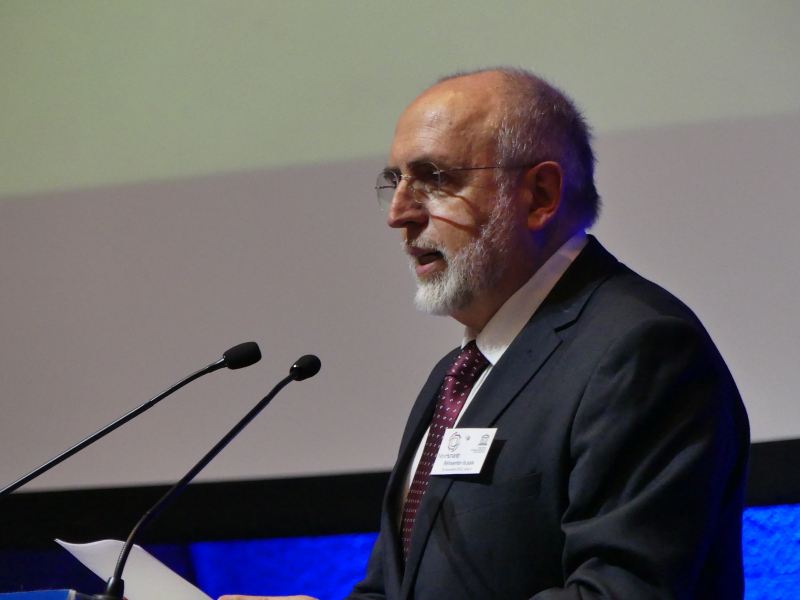
Jun 20, 2017 | Non categorizzato
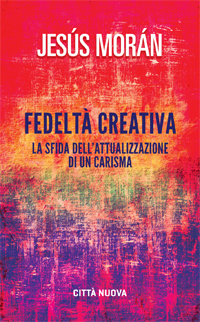 With a radio transmission emceed by Alessandro De Carolis, Radio Vatican journalist, the author dialogued with Fr. Julián Carrón (president of the Communion and Liberation Fraternity) and Maria Grazia Vergari (vice president of the Adult Section of the Catholic Action). Here are some excerpts of the interview that Giorgia Bresciani, journalist of “InBlu Radio,” held with Jesús Morán on 30 May: G. B.–The presentation of your book was the occasion to experience a moment of dialogue and fraternity between the ecclesiastic movements. In the Pentecost of 1998, John Paul II and at that time, Cardinal Ratzinger initiated a joint pathway of communion between all movements. What do you think happened that day and what point of that journey have we reached? J.M.–I think that 29 May was really blessed by the Holy Spirit, and was a grace for us. I remember that Feast of the Pentecost of 1988 vividly, and it was one of the most beautiful days of my life. It seemed as if the first Pentecost had become a concrete reality, due to the presence of many people, and an unforgettable day! I had arrived from Chile where I was living. It was effectively a historic moment, an ecclesial event because for the first time, the new movements had gathered in St. Peter’s Square all together. It was a fundamental encounter between the charism of Peter and the charisms created by the Holy Spirit in our epoch. It was like going public, giving visibility to the ecclesial charisms, and an “acknowledgement” of this fact. Since then the journey has progressed with ups and downs. This experience extended also to ecumenical levels and saw the creation of “Together for Europe.” We thus committed ourselves to the unity of all Christians. Then there were other joint encounters between the movements. Over the years, however, some of the founders passed away, and obviously this slowed things down: the deaths of Fr. Giussani, Chiara Lubich and other leaders, had an impact because this reality of unity and communion of the movements had been decisively their idea.
With a radio transmission emceed by Alessandro De Carolis, Radio Vatican journalist, the author dialogued with Fr. Julián Carrón (president of the Communion and Liberation Fraternity) and Maria Grazia Vergari (vice president of the Adult Section of the Catholic Action). Here are some excerpts of the interview that Giorgia Bresciani, journalist of “InBlu Radio,” held with Jesús Morán on 30 May: G. B.–The presentation of your book was the occasion to experience a moment of dialogue and fraternity between the ecclesiastic movements. In the Pentecost of 1998, John Paul II and at that time, Cardinal Ratzinger initiated a joint pathway of communion between all movements. What do you think happened that day and what point of that journey have we reached? J.M.–I think that 29 May was really blessed by the Holy Spirit, and was a grace for us. I remember that Feast of the Pentecost of 1988 vividly, and it was one of the most beautiful days of my life. It seemed as if the first Pentecost had become a concrete reality, due to the presence of many people, and an unforgettable day! I had arrived from Chile where I was living. It was effectively a historic moment, an ecclesial event because for the first time, the new movements had gathered in St. Peter’s Square all together. It was a fundamental encounter between the charism of Peter and the charisms created by the Holy Spirit in our epoch. It was like going public, giving visibility to the ecclesial charisms, and an “acknowledgement” of this fact. Since then the journey has progressed with ups and downs. This experience extended also to ecumenical levels and saw the creation of “Together for Europe.” We thus committed ourselves to the unity of all Christians. Then there were other joint encounters between the movements. Over the years, however, some of the founders passed away, and obviously this slowed things down: the deaths of Fr. Giussani, Chiara Lubich and other leaders, had an impact because this reality of unity and communion of the movements had been decisively their idea.  An occasion like that of 29 May is a push to continue their work. We are now in a post-founding phase and have to restart from that “prophecy.”And the presentation of my book is oriented in that direction. G.B.–You mentioned the death of some founders. Precisely you, Maria Voce, and Fr.Carrón, are in that “post-founding period,” the “second phase” which is a tricky one: you have a complex and exciting task. In the light of your position, what do you think an ecclesial movement needs most in this phase? J.M.–I believe that the “post-founding” phase isalso a charismatic one.There are different types of graces from those bound to the founding moment, and lies in the perspective of the incarnation: the great challenge is that the charism, following the trail of the founder, increasingly becomes “history.” It is thus a phase of service to the Church and to humanity. This calls for a different kind of maturity. We have to work together, bringing to light personal and community talents, because when the founder is present, the light of the charism is very strong, and the founder “incarnates”it almost by herself. Now God wants us to start up our charismatic intelligence and our forces. And we have to do it together! This is the great challenge. This is what I tried to say with this concept (already used by John Paul II) of “creative fidelity”: faithfulness to the charism, and at the same time, capacity for innovation and creativity, always a fruit of the Holy Spirit, and greater insertion into the Church and society.
An occasion like that of 29 May is a push to continue their work. We are now in a post-founding phase and have to restart from that “prophecy.”And the presentation of my book is oriented in that direction. G.B.–You mentioned the death of some founders. Precisely you, Maria Voce, and Fr.Carrón, are in that “post-founding period,” the “second phase” which is a tricky one: you have a complex and exciting task. In the light of your position, what do you think an ecclesial movement needs most in this phase? J.M.–I believe that the “post-founding” phase isalso a charismatic one.There are different types of graces from those bound to the founding moment, and lies in the perspective of the incarnation: the great challenge is that the charism, following the trail of the founder, increasingly becomes “history.” It is thus a phase of service to the Church and to humanity. This calls for a different kind of maturity. We have to work together, bringing to light personal and community talents, because when the founder is present, the light of the charism is very strong, and the founder “incarnates”it almost by herself. Now God wants us to start up our charismatic intelligence and our forces. And we have to do it together! This is the great challenge. This is what I tried to say with this concept (already used by John Paul II) of “creative fidelity”: faithfulness to the charism, and at the same time, capacity for innovation and creativity, always a fruit of the Holy Spirit, and greater insertion into the Church and society.

Jun 19, 2017 | Focolare Worldwide
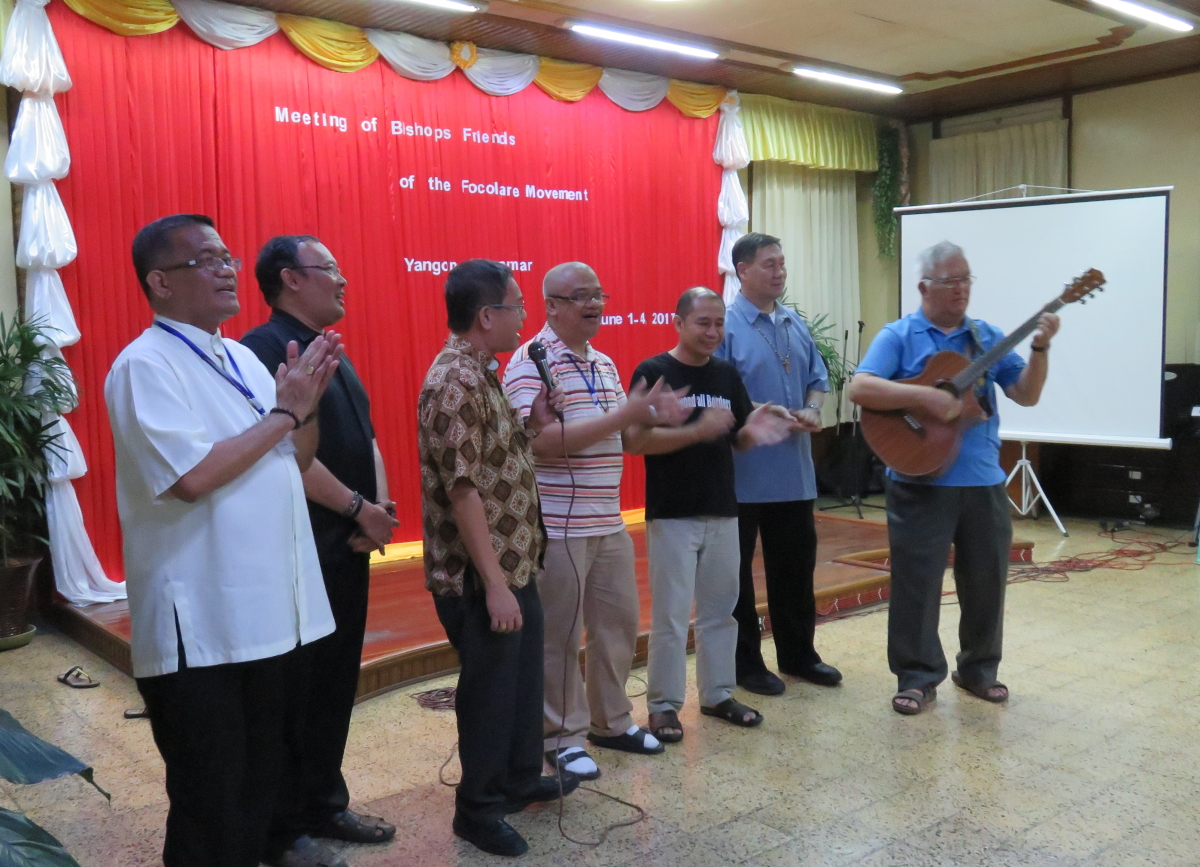 “That all may be one. We were born for these words of unity, to contribute to making it a reality in the world.” The words of Chiara Lubich, commented on by Bishop Felix Liam, President of the Episcopal Conference of Myanmar, on the first day of the meeting (1- 4 June 2017), well evidenced the aim of the convention held this year in Yangon, Myanmar, a country in Southeast Asia, on the western side of Indochina. These conventions held every year at international, ecumenical and regional levels,began about 40 years ago on the initiative of Chiara Lubich and Klaus Hemmerle (1929-1994), then Bishop of Aachingen, (Germany).. In Yangon, with a strong presence of the episcopate of Myanmar (19 bishops), there was a warm family atmosphere. Among the 31 participants,a good number came from the Philippines, India, Malaysia and South Korea. In communicating his experience on his encounter with the spirituality of unity, Cardinal Francis Xavier Kriengsak of Bangkok, moderator of the bishop-friends of the Focolare, invited the bishops to discover and deepen one of the fundamental points of the spirituality of unity: Jesus crucified and abandoned, and place it in the centre of their lives in order to become instruments of communion in the Church and humanity. This was also testified to by the experience of the members of the local community of the Focolare who had prepared to welcome the bishops in the best way possible. But also some bishops, like the Irish Bishop Brendan Leahy, see in the mystery of Jesus forsaken, the “countenance of mercy, key to dialogue and unity, and pathway to the sanctity of the people.” The life of Bishop Klaus Hemmerle was conveyed through a PowerPoint presentation and brief videos that showed the amazing fruitfulness of love for Jesus Forsaken even in the most “critical” situations. The themes on Evangelisation and Inculturation in the spirituality of unity were very actual and trigged particular interest in a country which is mostly Buddhist.
“That all may be one. We were born for these words of unity, to contribute to making it a reality in the world.” The words of Chiara Lubich, commented on by Bishop Felix Liam, President of the Episcopal Conference of Myanmar, on the first day of the meeting (1- 4 June 2017), well evidenced the aim of the convention held this year in Yangon, Myanmar, a country in Southeast Asia, on the western side of Indochina. These conventions held every year at international, ecumenical and regional levels,began about 40 years ago on the initiative of Chiara Lubich and Klaus Hemmerle (1929-1994), then Bishop of Aachingen, (Germany).. In Yangon, with a strong presence of the episcopate of Myanmar (19 bishops), there was a warm family atmosphere. Among the 31 participants,a good number came from the Philippines, India, Malaysia and South Korea. In communicating his experience on his encounter with the spirituality of unity, Cardinal Francis Xavier Kriengsak of Bangkok, moderator of the bishop-friends of the Focolare, invited the bishops to discover and deepen one of the fundamental points of the spirituality of unity: Jesus crucified and abandoned, and place it in the centre of their lives in order to become instruments of communion in the Church and humanity. This was also testified to by the experience of the members of the local community of the Focolare who had prepared to welcome the bishops in the best way possible. But also some bishops, like the Irish Bishop Brendan Leahy, see in the mystery of Jesus forsaken, the “countenance of mercy, key to dialogue and unity, and pathway to the sanctity of the people.” The life of Bishop Klaus Hemmerle was conveyed through a PowerPoint presentation and brief videos that showed the amazing fruitfulness of love for Jesus Forsaken even in the most “critical” situations. The themes on Evangelisation and Inculturation in the spirituality of unity were very actual and trigged particular interest in a country which is mostly Buddhist. 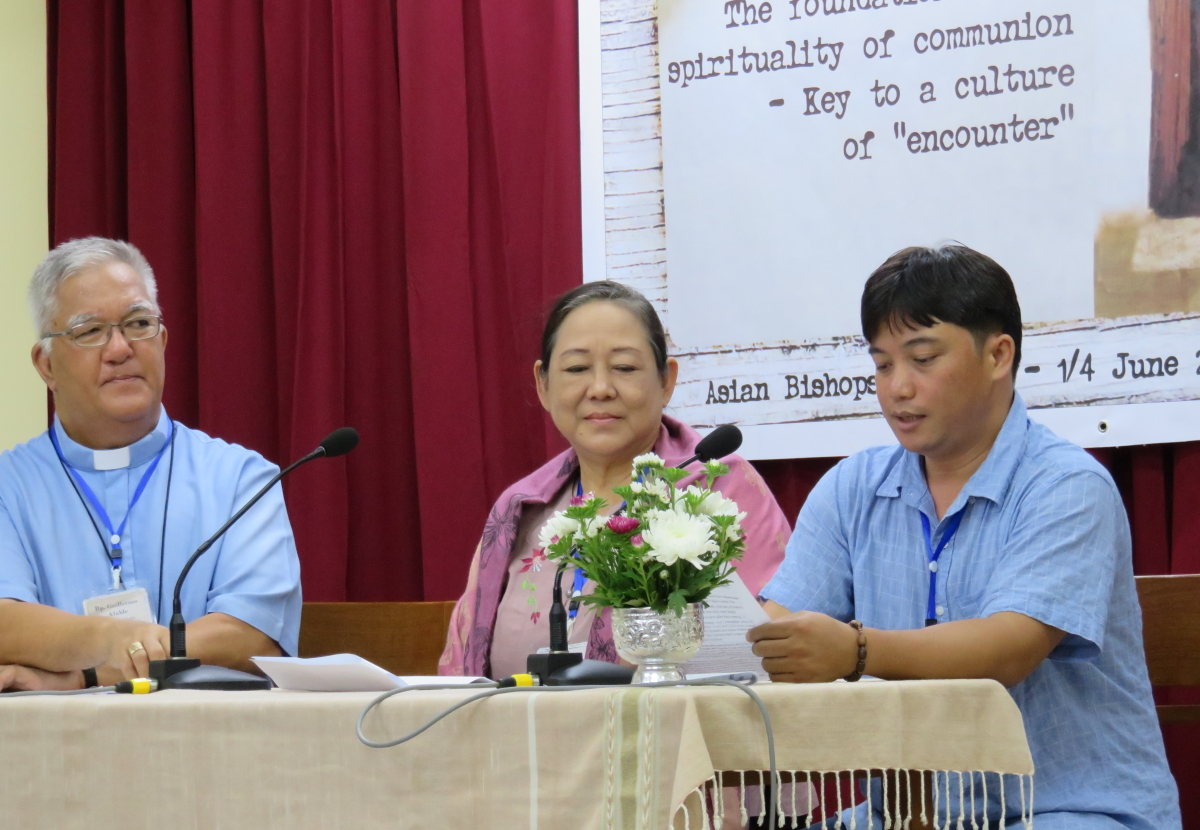 The story of Chiara Lubich and the Movement she had given life to, along with the experiences of the members of the local community, was very moving. Cardinal Carlo Bo, archbishop of Yangon said: “I was very impressed by the story of the charismatic and prophetic life of the founder of the movement. More than ever the Church needs movements like the Focolare. While the arrogance of power divides people according to colour and race, Chiara created a global communion for worldwide peace.” Bishop Matthias (Myanmar) commented: “When one usually participates in the meeting of bishops, we listen to many things, but on an intellectual level. Instead, here we talk about life and we see happy people.»And Bishop Isaac (Myanmar):“The life of a bishop is not easy, and we ourselves often feel abandoned. Now that I have met Jesus Forsaken, I will have the strength and the light to go ahead.” From Korea, Bishop Peter added: «It is the first time for me to participate in a meeting of bishops. Here I saw people who try to love Jesus Forsaken in every difficulty; people who are behind the wings, try to serve all of us,» referring to the members of the local community of the Movement. Openness to cultural and interreligious dialogue was assumed in the golden colours of the Pagoda of Shwedagon, the most important and renowned in the capital, and in which the relics of the four Buddhas are jealously guarded. The visit to this sacred place on the hill of Singuttara, to the west of Royal Lake, was a symbol of respect for the Buddhist soul and the culture of the place. At the top of the Pagoda, a banner-like anemoscope scattered with precious stones, displays the direction of the wind. If sufficiently supported, its fluttering is accompanied by the sound of tiny bells. The Myanmar bishops are certain of which direction the wind is blowing: in the direction of unity, towards a Church which is increasingly a witness of “communion”.
The story of Chiara Lubich and the Movement she had given life to, along with the experiences of the members of the local community, was very moving. Cardinal Carlo Bo, archbishop of Yangon said: “I was very impressed by the story of the charismatic and prophetic life of the founder of the movement. More than ever the Church needs movements like the Focolare. While the arrogance of power divides people according to colour and race, Chiara created a global communion for worldwide peace.” Bishop Matthias (Myanmar) commented: “When one usually participates in the meeting of bishops, we listen to many things, but on an intellectual level. Instead, here we talk about life and we see happy people.»And Bishop Isaac (Myanmar):“The life of a bishop is not easy, and we ourselves often feel abandoned. Now that I have met Jesus Forsaken, I will have the strength and the light to go ahead.” From Korea, Bishop Peter added: «It is the first time for me to participate in a meeting of bishops. Here I saw people who try to love Jesus Forsaken in every difficulty; people who are behind the wings, try to serve all of us,» referring to the members of the local community of the Movement. Openness to cultural and interreligious dialogue was assumed in the golden colours of the Pagoda of Shwedagon, the most important and renowned in the capital, and in which the relics of the four Buddhas are jealously guarded. The visit to this sacred place on the hill of Singuttara, to the west of Royal Lake, was a symbol of respect for the Buddhist soul and the culture of the place. At the top of the Pagoda, a banner-like anemoscope scattered with precious stones, displays the direction of the wind. If sufficiently supported, its fluttering is accompanied by the sound of tiny bells. The Myanmar bishops are certain of which direction the wind is blowing: in the direction of unity, towards a Church which is increasingly a witness of “communion”.
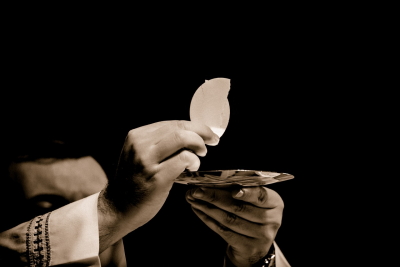
Jun 18, 2017 | Non categorizzato
 “A piece of bread, transformed by Jesus to satisfy the hunger of every heart: this is Jesus’s story reduced to the bare bones. It’s ours: the little path for his love, love strong in weakness.” (From an article, May 1980) “Every time we celebrate the Eucharist, what takes place is not only a pleasant communion with others in the spirit of Jesus as a mere idea or feeling. No, every time we celebrate the Eucharist the most radical wall of existence is brought down, the wall of death; what happens to us is pure gift, gift that is truly conferred to us. It’s proximity, proximity within which the mutual distances – both interior and exterior – are obliterated. In the Eucharist, not only do we become one body with each other, but we become His body for the world. For anybody who is truly permeated by the Eucharist this world and this society can no longer remain indifferent. They now have this dynamic in them, dynamics of God who offers himself, who gives himself, who carries with humanity as something of his very own and intimate to him, all that humanity carries, all that it does.” (Conference, August 31, 1977) “What’s important is not only that we have the Eucharist here in our community. We retain the spirit of Jesus only if and when we concretely love the other’s community as our own, if and when our communities open beyond the barriers that separate them and if in the midst of the communities lives the Lord.” (From an article, May 1979) Source: La luce dentro le cose, Klaus Hemmerle (Rome: Città Nuova, 1998), 190, 186, 187, 192.
“A piece of bread, transformed by Jesus to satisfy the hunger of every heart: this is Jesus’s story reduced to the bare bones. It’s ours: the little path for his love, love strong in weakness.” (From an article, May 1980) “Every time we celebrate the Eucharist, what takes place is not only a pleasant communion with others in the spirit of Jesus as a mere idea or feeling. No, every time we celebrate the Eucharist the most radical wall of existence is brought down, the wall of death; what happens to us is pure gift, gift that is truly conferred to us. It’s proximity, proximity within which the mutual distances – both interior and exterior – are obliterated. In the Eucharist, not only do we become one body with each other, but we become His body for the world. For anybody who is truly permeated by the Eucharist this world and this society can no longer remain indifferent. They now have this dynamic in them, dynamics of God who offers himself, who gives himself, who carries with humanity as something of his very own and intimate to him, all that humanity carries, all that it does.” (Conference, August 31, 1977) “What’s important is not only that we have the Eucharist here in our community. We retain the spirit of Jesus only if and when we concretely love the other’s community as our own, if and when our communities open beyond the barriers that separate them and if in the midst of the communities lives the Lord.” (From an article, May 1979) Source: La luce dentro le cose, Klaus Hemmerle (Rome: Città Nuova, 1998), 190, 186, 187, 192.

Jun 17, 2017 | Focolare Worldwide
 My path began on the last day of the Rwandan calendar, the day in which we remember the massacre that happened in 1994. I know that Jesus Forsaken can give meaning to every human suffering, especially the ones that leave the deepest wounds in our hearts. I sense a profound bond between the sacrifice of Jesus and the pain and suffering of the Rwandan people. Under the guidance of Father Telesphore, a local priest, he became acquainted with the capital city of Kigali known for its attractiveness. The signs of economic growth, however, can especially be seen in the centre of the city which looks like a European capital. But not far from the modern buildings there are the common folk, bound to agriculture and selling their products at market: fruit, vegetables, chickens, and so forth. Due to my white skin and tall stature, my presence doesn’t go by unnoticed. I encounter many surprised faces, but it’s enough to offer a greeting of “muraho” or a smile and the ice melts into a nice smile. We visit the main cities of the country by car, stopping now and then to give someone a ride. I was particularly struck by one young woman around 20 years old. Behind her pretty smile was a painful story. Fr Telesphore tells me that her parents were killed in the 1990 genocide. She had just been to their tomb where she went to pray. She and her young brother have been visiting Father Telesphore since they were young. They found a family that filled them with love. I met many other people in situations that were similar to theirs. We spent Saturday at the seminary school of theology which takes in 130 seminarians from around the country. At the Mass, which was imbued with Rwandan culture, I was very touched by the Thanksgiving After Communion with songs that engaged the whole assembly. It was like a sacred rythm, not perfectly synchronized, but incredibly harmonic. At one seminary we held a “school” for seminarians who wanted to know about the spirituality of unity. Right from the start, Father Telesphore clarified for everyone that “this school is not run with books, but with life” and that “we’re here to build the unity Jesus desired, through our reciprocal love.” The Gospel love among everytone could be felt in very strong and concrete ways throughout the meeting. After a basketball match, I found myself asking who had won? The answer: everybody. Where there’s love, competition becomes an occasion to live the Gospel. We focused on the mystery of Jesus Forsaken, which is one of the points of the spirituality of unity. We were all moved by the testimony of two priests, one from Rwanda and the other from Burundi, lands that are marked by mutual misunderstandings. But through love towards Jesus in his abandonment, those misunderstandings gave way to unity between the two priests. One of the seminarians spoke for everyone: “When you speak with the heart, you touch us in the heart.” The last days were dedicated to meeting with families and young people, but also other people who share the ideal of fraternity. We concluded with a pilgrimage to the Shrine of Our Lady, which was not far from the seminary. We wanted to thank her for this trip and for the immeasureable gifts we all recevied. (Armando A. – Brazil)
My path began on the last day of the Rwandan calendar, the day in which we remember the massacre that happened in 1994. I know that Jesus Forsaken can give meaning to every human suffering, especially the ones that leave the deepest wounds in our hearts. I sense a profound bond between the sacrifice of Jesus and the pain and suffering of the Rwandan people. Under the guidance of Father Telesphore, a local priest, he became acquainted with the capital city of Kigali known for its attractiveness. The signs of economic growth, however, can especially be seen in the centre of the city which looks like a European capital. But not far from the modern buildings there are the common folk, bound to agriculture and selling their products at market: fruit, vegetables, chickens, and so forth. Due to my white skin and tall stature, my presence doesn’t go by unnoticed. I encounter many surprised faces, but it’s enough to offer a greeting of “muraho” or a smile and the ice melts into a nice smile. We visit the main cities of the country by car, stopping now and then to give someone a ride. I was particularly struck by one young woman around 20 years old. Behind her pretty smile was a painful story. Fr Telesphore tells me that her parents were killed in the 1990 genocide. She had just been to their tomb where she went to pray. She and her young brother have been visiting Father Telesphore since they were young. They found a family that filled them with love. I met many other people in situations that were similar to theirs. We spent Saturday at the seminary school of theology which takes in 130 seminarians from around the country. At the Mass, which was imbued with Rwandan culture, I was very touched by the Thanksgiving After Communion with songs that engaged the whole assembly. It was like a sacred rythm, not perfectly synchronized, but incredibly harmonic. At one seminary we held a “school” for seminarians who wanted to know about the spirituality of unity. Right from the start, Father Telesphore clarified for everyone that “this school is not run with books, but with life” and that “we’re here to build the unity Jesus desired, through our reciprocal love.” The Gospel love among everytone could be felt in very strong and concrete ways throughout the meeting. After a basketball match, I found myself asking who had won? The answer: everybody. Where there’s love, competition becomes an occasion to live the Gospel. We focused on the mystery of Jesus Forsaken, which is one of the points of the spirituality of unity. We were all moved by the testimony of two priests, one from Rwanda and the other from Burundi, lands that are marked by mutual misunderstandings. But through love towards Jesus in his abandonment, those misunderstandings gave way to unity between the two priests. One of the seminarians spoke for everyone: “When you speak with the heart, you touch us in the heart.” The last days were dedicated to meeting with families and young people, but also other people who share the ideal of fraternity. We concluded with a pilgrimage to the Shrine of Our Lady, which was not far from the seminary. We wanted to thank her for this trip and for the immeasureable gifts we all recevied. (Armando A. – Brazil)
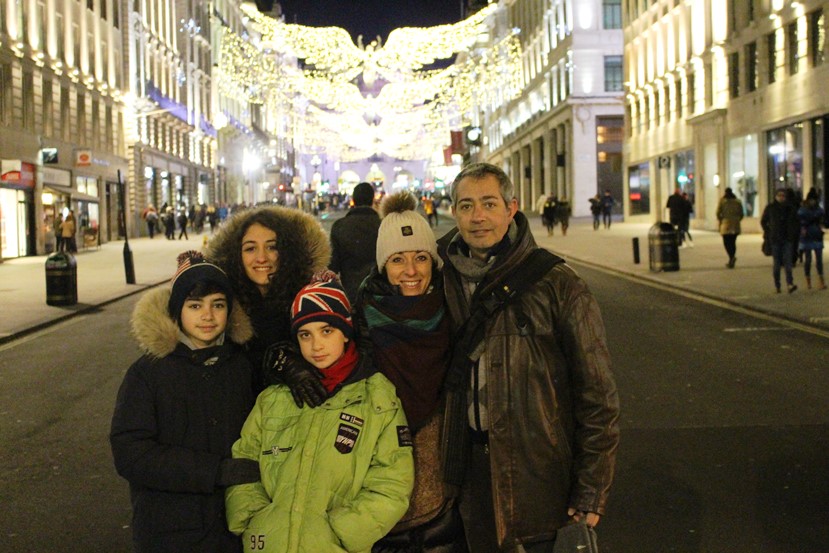
Jun 16, 2017 | Senza categoria
 When we started seeing each other, Hani and I were very much aware of the differences that existed between us, especially with regards to doctrine. But we felt that our love was stronger than any difference; this gave us the courage to believe that there was a special plan of God for our marriage that went beyond us. Through the spirituality of the Focolare Movement, which we had both got to know in our youth, we learnt that in order to reach unity we had to aim at what unites us – which is considerable – rather than looking at what divides us. Of course, when we go our separate ways for Sunday Service, it’s always a suffering, as when unintentionally we might refer to “us” and “you” in our discussions, or when our human reasoning wants to criticise the Church of the other. When this happens, we realise that unity isn’t built once and for all, but that each day God asks us to choose to love the church of the other as our own. Furthermore, we have learnt that each time we experience disunity, it’s an opportunity for us to offer this pain to God for the complete unity among Christians. There are times, however, in order to live unity more fully among us and in our family, when we might attend either one Church or the other all together, and to take part in some of the spiritual practices, such as fasting for example. An important moment for us was the baptism of our first child. We discussed the issue at length, but we could not decide which was the right thing: whether to have a Catholic or Orthodox baptism. While the Sacrament was the same for both Churches, the consequences would have been profoundly different. Hani, in fact, is a deacon and he was temporarily removed from his Church because of his mixed marriage. A Catholic baptism for our child would have put him in a difficult situation. We found it hard to make a decision, but then I realized that I should consult my bishop about it. I went to him and told him the whole situation. I felt welcomed by him and listened to in depth. The bishop was grateful that I had sought his advice and he assured me that he would understand and support any decision that Hani and I took, following our conscience. At that point, it was clear to me that, for the sake of Hani and his Church, it was best to have an Orthodox baptism. On this occasion, as in many others, it was not a question of making compromises, but to discern God’s will in that circumstance. Naturally this entails making an extra effort, which sometimes costs blood, sweat and tears, also with the children who, when still little, could not understand why they could receive Communion in the Orthodox Church, but not in the Catholic Church. In fact, in the Orthodox Church, the sacraments of communion and confirmation are administered simultaneously during baptism. We went through a rather difficult time last year with our eldest daughter, who was then 15 years old. She started demanding to be more independent and was being aggressive about it. We were unprepared for this sudden change. There were daily quarrels, often quite heated. We wanted to protect her from situations which we considered precarious, but the more we checked up on her, the more she rebelled. I spent so many nights crying for this daughter I felt I no longer knew. It was not easy between us either, because I thought the way Hani handled the situation was not optimum and so we argued a lot. But in all this confusion, we always tried to be faithful to some practices that seemed important to us, such as praying all together, or having the humility to ask pardon when necessary, even with the youngest ones. At a certain point, we realised how important it was to maintain unity between us. We decided to show complete trust in her. The situation improved significantly at home, which confirms that even in a mixed marriage it’s possible for the married couple to “be one in God” and to give this witness to the children and the world around us.
When we started seeing each other, Hani and I were very much aware of the differences that existed between us, especially with regards to doctrine. But we felt that our love was stronger than any difference; this gave us the courage to believe that there was a special plan of God for our marriage that went beyond us. Through the spirituality of the Focolare Movement, which we had both got to know in our youth, we learnt that in order to reach unity we had to aim at what unites us – which is considerable – rather than looking at what divides us. Of course, when we go our separate ways for Sunday Service, it’s always a suffering, as when unintentionally we might refer to “us” and “you” in our discussions, or when our human reasoning wants to criticise the Church of the other. When this happens, we realise that unity isn’t built once and for all, but that each day God asks us to choose to love the church of the other as our own. Furthermore, we have learnt that each time we experience disunity, it’s an opportunity for us to offer this pain to God for the complete unity among Christians. There are times, however, in order to live unity more fully among us and in our family, when we might attend either one Church or the other all together, and to take part in some of the spiritual practices, such as fasting for example. An important moment for us was the baptism of our first child. We discussed the issue at length, but we could not decide which was the right thing: whether to have a Catholic or Orthodox baptism. While the Sacrament was the same for both Churches, the consequences would have been profoundly different. Hani, in fact, is a deacon and he was temporarily removed from his Church because of his mixed marriage. A Catholic baptism for our child would have put him in a difficult situation. We found it hard to make a decision, but then I realized that I should consult my bishop about it. I went to him and told him the whole situation. I felt welcomed by him and listened to in depth. The bishop was grateful that I had sought his advice and he assured me that he would understand and support any decision that Hani and I took, following our conscience. At that point, it was clear to me that, for the sake of Hani and his Church, it was best to have an Orthodox baptism. On this occasion, as in many others, it was not a question of making compromises, but to discern God’s will in that circumstance. Naturally this entails making an extra effort, which sometimes costs blood, sweat and tears, also with the children who, when still little, could not understand why they could receive Communion in the Orthodox Church, but not in the Catholic Church. In fact, in the Orthodox Church, the sacraments of communion and confirmation are administered simultaneously during baptism. We went through a rather difficult time last year with our eldest daughter, who was then 15 years old. She started demanding to be more independent and was being aggressive about it. We were unprepared for this sudden change. There were daily quarrels, often quite heated. We wanted to protect her from situations which we considered precarious, but the more we checked up on her, the more she rebelled. I spent so many nights crying for this daughter I felt I no longer knew. It was not easy between us either, because I thought the way Hani handled the situation was not optimum and so we argued a lot. But in all this confusion, we always tried to be faithful to some practices that seemed important to us, such as praying all together, or having the humility to ask pardon when necessary, even with the youngest ones. At a certain point, we realised how important it was to maintain unity between us. We decided to show complete trust in her. The situation improved significantly at home, which confirms that even in a mixed marriage it’s possible for the married couple to “be one in God” and to give this witness to the children and the world around us.
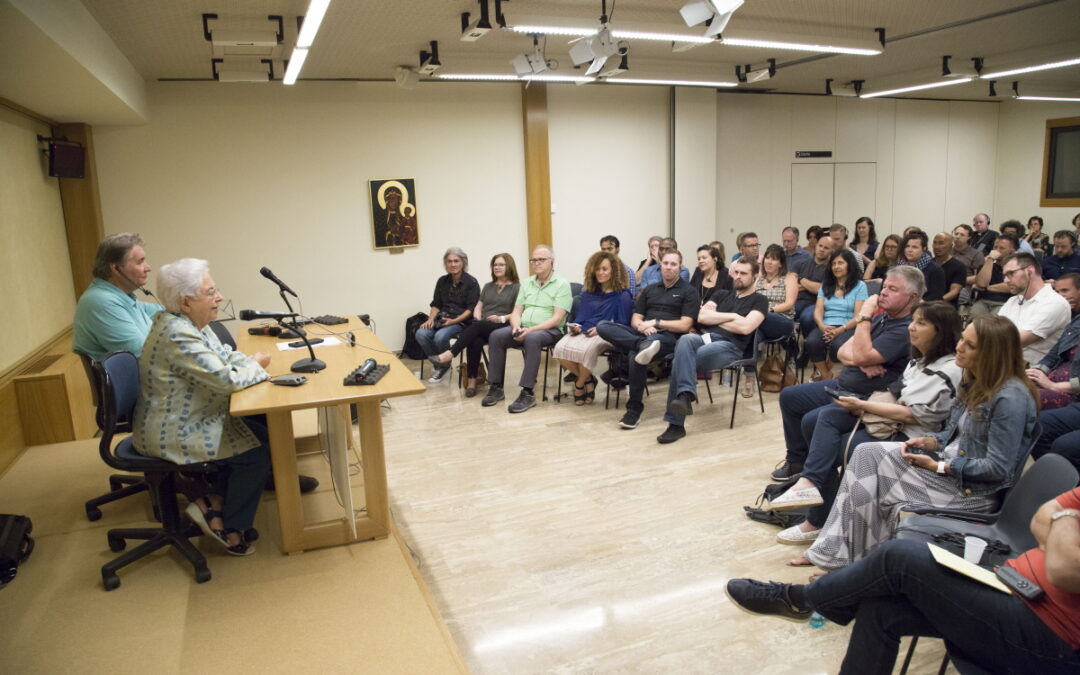
Jun 15, 2017 | Non categorizzato
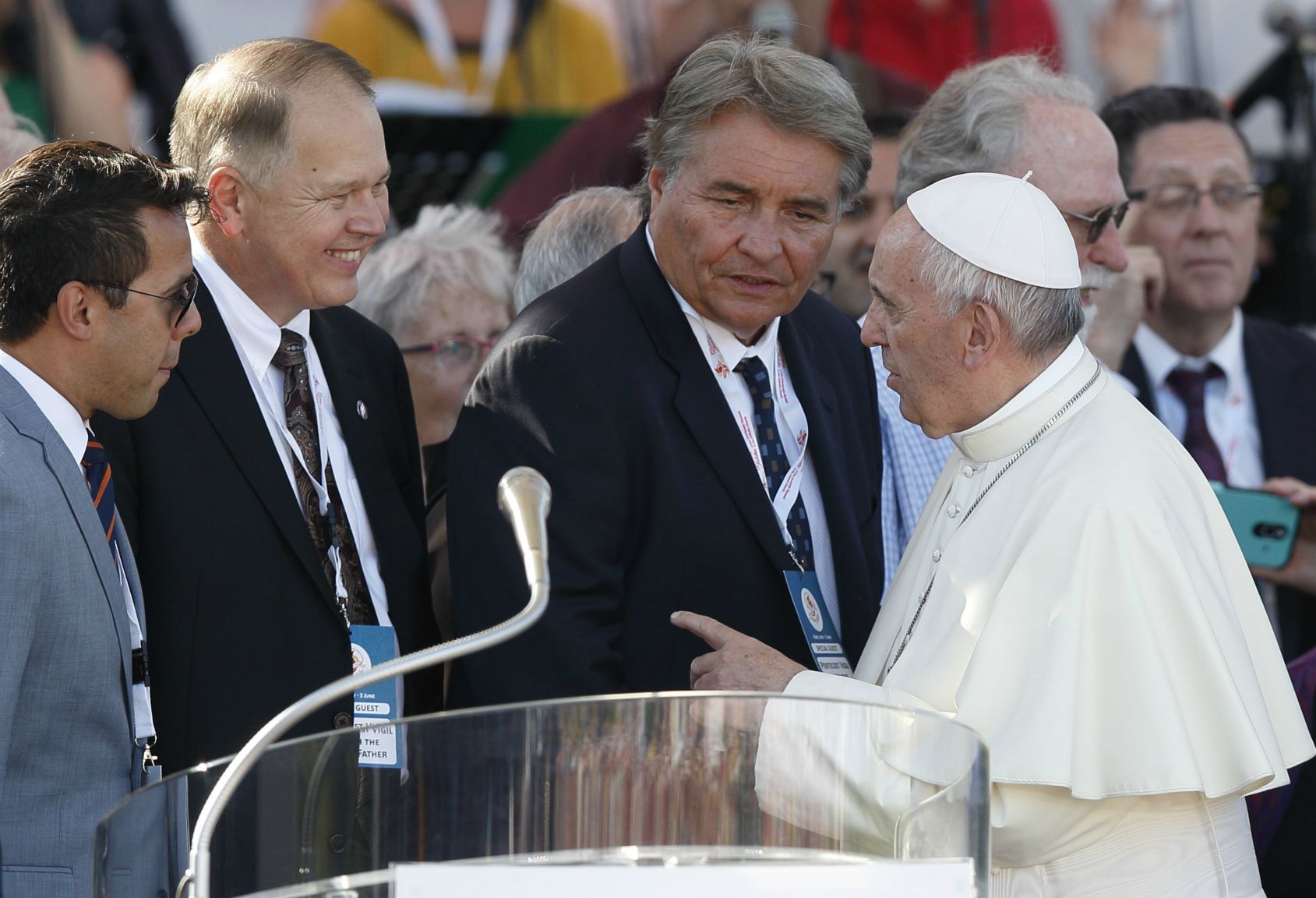
At the Vigil of Pentecost at the Circus Maximus in Rome
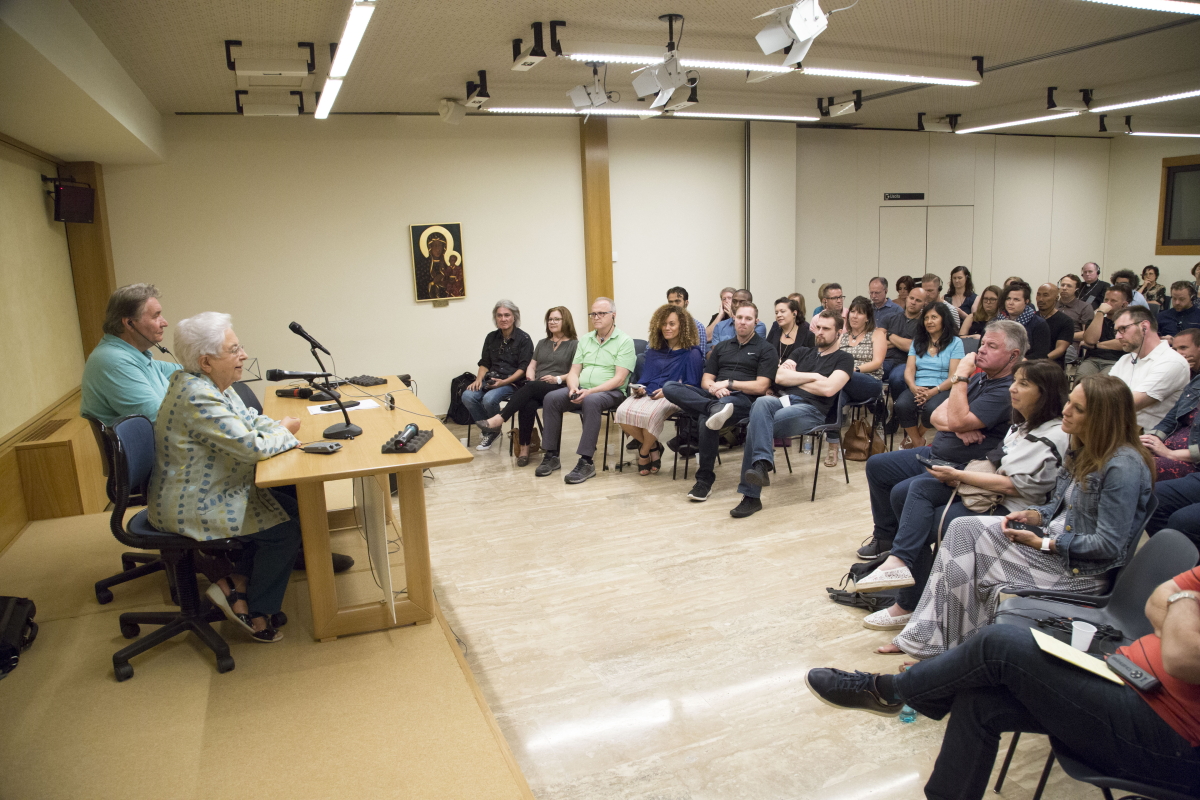
Photo credit: © CSC Audiovisivi-Caris Mendes
Jun 14, 2017 | Non categorizzato
The website is up in preparation for the 2018 Synod of Bishops on “Youth, Faith and Vocational Discernment”. The site contains a questionnaire in five languages, to facilitate the widest participation of all the young people in the world, not only to receive information of the event, but also to interact and take part in the preparation.” “Let your shout be heard, let it resound in the communities and make it reach the pastors,” Pope Francis exhorted the young people. He went on: “Saint Benedict reccommended that abbots to consult the youngest members before any important decision because, “it is often to the youngest that the Lord reveals the best solutions.”
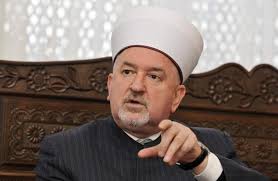
Jun 14, 2017 | Non categorizzato
 “A recipe for success doesn’t exist, but there is a recipe for failure. The recipe for failure is violence ‘in the name of Allah’”. With these words, the Grand Mufti Emeritus of Bosnia Herzogovina turned to the Muslims of Europe with an appeal. He made it on the day after the bloody attacks in London and Manchester. Like Chiara Lubich before him, and presently Maria Voce, Mustafa Ceric was once the honorary president of Religions for Peace. “This is not my faith. This is not the Allah I believe in. My faith is never the knife, it’s never terror. My Allah is Loving and Merciful. […] “I confess that I have never felt so confused and so helpless in trying to explain what is happening inside and outside my community of faith. I console myself with the thought that these are the actions of extreme minorities, just a political game by great powers to gain Muslim wealth.” The Grand Mufti had been awarded the Felix Houphouet-Boigny UNESCO Peace Prize in 2003 and the Sternberg Prize of the International Council of Christians and Jews “for his outstanding contribution to the understanding of the faith.” In 2007 he received the Theodor-Heuss-Stiftung Prize for his Contribution to the Dissemination and Strengthening of Democracy and in 2008 the Eugen Biser Foundation Prize for his efforts to promote understanding and peace between Christian and Islamic thought. Mustafa Ceric used strong words: “My faith community has many problems. The biggest one is that of delegating to others the solutions of our problems. Instead, my Community of Faith, my Ummah, must solve its problems within itself before solving the problems around it.” There are those who claim that the attacks against innocent civilians in Manchester or London are more important than the ones in Palestine, in Kabul, Mosul, Sa’an and Misurata, said Ceric. “They aren’t more important, but certainly more dangerous for the Muslims in Europe, the majority of whom have escaped from Muslim countries to seek peace and safety for their children in Europe. The peace and safety they have experienced up until now are threatened. After Manchester, London – and even before that, Berlin and Zurich – “the European Muslims have to be strong and clear not only about condemning violence ‘in the name of Allah’, but also about taking concrete measures against any form of abuse of Islam. They need to have a clear voice, a united and irrevocable voice in the struggle against the violence that is supported ‘in the name of Allah’. It is no longer a matter of individual goodwill of individuals or groups that work for interreligious dialogue. It is an existential problem for Islam and for the Muslims in Europe.” The Grand Mufti therefore launched an appeal to the Muslims of Europe to “gather together immediately around a “common word” between us and our neighbours independent of their faith, race or nationality, to swear an oath to God, to themselves and to their own neighbours in Europe: an oath to love and promote peace, security and cooperation in accordance with what we are obliged to do by our culture and Islamic faith. We must swear that we will do everything that is necessary to fight together against violence towards innocent people. We present-day generations of European Muslims owe it to our descendants who have no blame.” “This is no longer the time to hesitate!” The Mufti vehemently expressed his hope and desire for a change. “There’s no room for calculation! There are no longer excuses for putting it off, nor justifications for waiting! There is no salvation in silence! There is no future for Islam nor for Muslims in Europe if not in coexistence and in tolerance with our European neighbours!”
“A recipe for success doesn’t exist, but there is a recipe for failure. The recipe for failure is violence ‘in the name of Allah’”. With these words, the Grand Mufti Emeritus of Bosnia Herzogovina turned to the Muslims of Europe with an appeal. He made it on the day after the bloody attacks in London and Manchester. Like Chiara Lubich before him, and presently Maria Voce, Mustafa Ceric was once the honorary president of Religions for Peace. “This is not my faith. This is not the Allah I believe in. My faith is never the knife, it’s never terror. My Allah is Loving and Merciful. […] “I confess that I have never felt so confused and so helpless in trying to explain what is happening inside and outside my community of faith. I console myself with the thought that these are the actions of extreme minorities, just a political game by great powers to gain Muslim wealth.” The Grand Mufti had been awarded the Felix Houphouet-Boigny UNESCO Peace Prize in 2003 and the Sternberg Prize of the International Council of Christians and Jews “for his outstanding contribution to the understanding of the faith.” In 2007 he received the Theodor-Heuss-Stiftung Prize for his Contribution to the Dissemination and Strengthening of Democracy and in 2008 the Eugen Biser Foundation Prize for his efforts to promote understanding and peace between Christian and Islamic thought. Mustafa Ceric used strong words: “My faith community has many problems. The biggest one is that of delegating to others the solutions of our problems. Instead, my Community of Faith, my Ummah, must solve its problems within itself before solving the problems around it.” There are those who claim that the attacks against innocent civilians in Manchester or London are more important than the ones in Palestine, in Kabul, Mosul, Sa’an and Misurata, said Ceric. “They aren’t more important, but certainly more dangerous for the Muslims in Europe, the majority of whom have escaped from Muslim countries to seek peace and safety for their children in Europe. The peace and safety they have experienced up until now are threatened. After Manchester, London – and even before that, Berlin and Zurich – “the European Muslims have to be strong and clear not only about condemning violence ‘in the name of Allah’, but also about taking concrete measures against any form of abuse of Islam. They need to have a clear voice, a united and irrevocable voice in the struggle against the violence that is supported ‘in the name of Allah’. It is no longer a matter of individual goodwill of individuals or groups that work for interreligious dialogue. It is an existential problem for Islam and for the Muslims in Europe.” The Grand Mufti therefore launched an appeal to the Muslims of Europe to “gather together immediately around a “common word” between us and our neighbours independent of their faith, race or nationality, to swear an oath to God, to themselves and to their own neighbours in Europe: an oath to love and promote peace, security and cooperation in accordance with what we are obliged to do by our culture and Islamic faith. We must swear that we will do everything that is necessary to fight together against violence towards innocent people. We present-day generations of European Muslims owe it to our descendants who have no blame.” “This is no longer the time to hesitate!” The Mufti vehemently expressed his hope and desire for a change. “There’s no room for calculation! There are no longer excuses for putting it off, nor justifications for waiting! There is no salvation in silence! There is no future for Islam nor for Muslims in Europe if not in coexistence and in tolerance with our European neighbours!”

Jun 14, 2017 | Non categorizzato
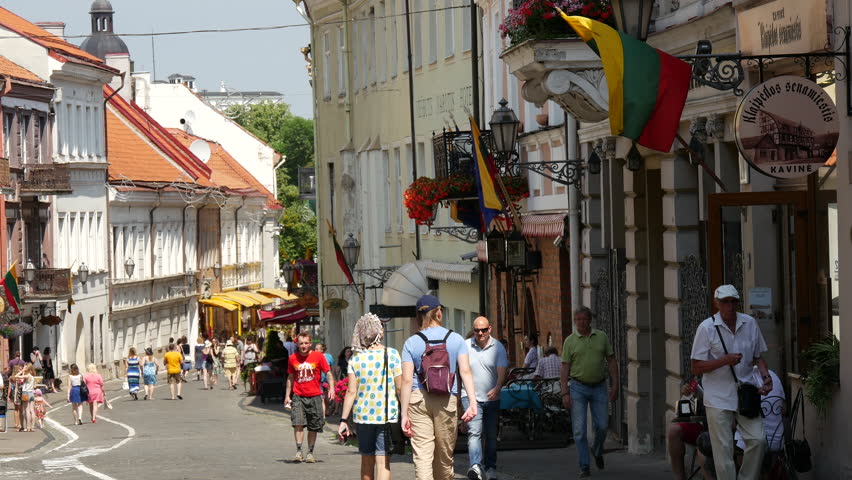
Škofja Loka
 “About a year ago,” Natalija continues, “we were put to the test. In summer, the smallest of our children underwent some counselling, which is done routinely when infants reach the age of three. The psychologist’s diagnosis really surprised us: Attention Deficit Disorder. As an ex-teacher and pedagogue expert, I saw before my eyes all those children who had this type of problem and the difficulties parents had to face in dealing with it. Shocked and dazed, I went back to Ray of Sunshine kindergarten, where Damijan and I both worked. We talked things over for a long time and we realized that for our son to have the best care, one of us had to give up their job.” “We knew we had to devote all our time and energy,” says Damijan. “We were conscious of the fact that we still had a mortgage, that we were six in the family and that we were low-income earners. We explored all the financial possibilities and, despite the uncertainty, I left my job believing that God would not abandon us. We shared our situation, and consequent decision, with our work colleagues. We were grateful to each one for their understanding and support. In the following week, our choice proved to be the right one. On night, my mother, who lived with us, had a stroke and remained paralyzed. It was a shock for us all. For the first two months she was able to feed herself, but there was a subsequent stroke that led to blindness and then dementia. She therefore needed more and more care. Although challenging, we respected her desire to remain at home. In the meantime, our son’s condition improved considerably. In fact things were much calmer all round. When the children arrived home from school, there was always someone waiting for them with a meal on the table. And when Natalija arrived home from work, she was able to devote herself totally to the family. Throughout this time, though living on only one salary, we can say that we lack nothing. And even if we have to give up something, it’s not a deprivation. We are grateful to God for having supported us and for having taught us to live the art of loving, and also to reap the fruits which have won us over completely.”
“About a year ago,” Natalija continues, “we were put to the test. In summer, the smallest of our children underwent some counselling, which is done routinely when infants reach the age of three. The psychologist’s diagnosis really surprised us: Attention Deficit Disorder. As an ex-teacher and pedagogue expert, I saw before my eyes all those children who had this type of problem and the difficulties parents had to face in dealing with it. Shocked and dazed, I went back to Ray of Sunshine kindergarten, where Damijan and I both worked. We talked things over for a long time and we realized that for our son to have the best care, one of us had to give up their job.” “We knew we had to devote all our time and energy,” says Damijan. “We were conscious of the fact that we still had a mortgage, that we were six in the family and that we were low-income earners. We explored all the financial possibilities and, despite the uncertainty, I left my job believing that God would not abandon us. We shared our situation, and consequent decision, with our work colleagues. We were grateful to each one for their understanding and support. In the following week, our choice proved to be the right one. On night, my mother, who lived with us, had a stroke and remained paralyzed. It was a shock for us all. For the first two months she was able to feed herself, but there was a subsequent stroke that led to blindness and then dementia. She therefore needed more and more care. Although challenging, we respected her desire to remain at home. In the meantime, our son’s condition improved considerably. In fact things were much calmer all round. When the children arrived home from school, there was always someone waiting for them with a meal on the table. And when Natalija arrived home from work, she was able to devote herself totally to the family. Throughout this time, though living on only one salary, we can say that we lack nothing. And even if we have to give up something, it’s not a deprivation. We are grateful to God for having supported us and for having taught us to live the art of loving, and also to reap the fruits which have won us over completely.”
Jun 14, 2017 | Non categorizzato
For your commitment to peace, promoting a series of initiatives to convert a weapons factory in the province of Iglesias” (Sardinia, Italy). The missive, dated June 3 addressed the local community of the Focolare Movement, (New Humanities section), for all the endeavours undertaken with Amnesty International, Oxfam, Fondazione Banca Etica, Opal Brescia and Italian Disarmament Network, for the “RVM reconversion” (Multinational Arms-producing Company). The Holy Father said he was “happy to know that you are concretely involved in promoting a dignified employment, as an alternative to the manufacture of arms, in a territory that is still undergoing serious employment crises.” Lastly, he expressed his “solidarity for the commitment in spreading the culture of peace.”
![The dialogue wanted by God]()
Jun 13, 2017 | Non categorizzato
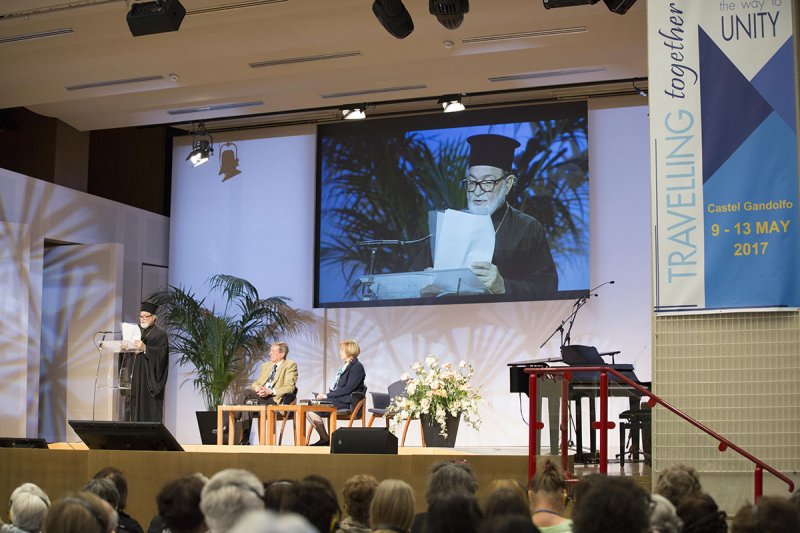 Patriarch Athenagoras and Chiara Lubich, protagonists of unity. Beginning again is never and never has been easy, especially if deep trenches have been dug over time, if certain differences have become cultural, if – to complicate matters – there is even the certainty of being in the right. It wouldn’t be far from the truth to say that this was the situation in the mid-1900s between the Catholic and the Orthodox Church, after centuries, an entire millennium, the separation was nurtured and cultivated. Then…the historic turning point. The celebrated and unforgettable and glorious memories of the initiators of the ‘dialogue of Love’, the great inventors of the dialogue of the people: Athenagoras, Ecumenical Patriarch, and Chiara Lubich, foundress of the Movement of unity. With their humble, serious and willingness, with dedication, love and prayer they were the initiators of a new ecumenical Era; they instructed the peoples, giving them courage, strength, patience, faithfulness, willingness, love and unity. Deep down the solution was simple, and the Patriarch expressed it with the following words: “We lived alone, without brothers, without having sisters for many centuries, like orphans. Why? The brother and sister are the door. There lies the secret!” The unforgettable protagonists of the ‘dialogue of love’, the great inventors of the dialogue of the people met a good 27 times, between 1967 and 1972 when the Patriarch died. There first encounter goes back to June 13th, 1967 when Lubich visited the Ecumenical Patriarchate of Constantinople, even though, until this day, that moment has never been adequately appreciated for its full value. The Patriarch approved and lovingly embraced the seriousness of the charism of Chiara, her mystical spirituality that is a spirituality of the Church, to the point that their encounter was even considered ‘an ecstasy’, and the conviction grew more and more in him that by living the words of Jesus’s Testament could lead us to the same chalice. With these touching words he remarked: ‘For me it would be a day of Paradise.’
Patriarch Athenagoras and Chiara Lubich, protagonists of unity. Beginning again is never and never has been easy, especially if deep trenches have been dug over time, if certain differences have become cultural, if – to complicate matters – there is even the certainty of being in the right. It wouldn’t be far from the truth to say that this was the situation in the mid-1900s between the Catholic and the Orthodox Church, after centuries, an entire millennium, the separation was nurtured and cultivated. Then…the historic turning point. The celebrated and unforgettable and glorious memories of the initiators of the ‘dialogue of Love’, the great inventors of the dialogue of the people: Athenagoras, Ecumenical Patriarch, and Chiara Lubich, foundress of the Movement of unity. With their humble, serious and willingness, with dedication, love and prayer they were the initiators of a new ecumenical Era; they instructed the peoples, giving them courage, strength, patience, faithfulness, willingness, love and unity. Deep down the solution was simple, and the Patriarch expressed it with the following words: “We lived alone, without brothers, without having sisters for many centuries, like orphans. Why? The brother and sister are the door. There lies the secret!” The unforgettable protagonists of the ‘dialogue of love’, the great inventors of the dialogue of the people met a good 27 times, between 1967 and 1972 when the Patriarch died. There first encounter goes back to June 13th, 1967 when Lubich visited the Ecumenical Patriarchate of Constantinople, even though, until this day, that moment has never been adequately appreciated for its full value. The Patriarch approved and lovingly embraced the seriousness of the charism of Chiara, her mystical spirituality that is a spirituality of the Church, to the point that their encounter was even considered ‘an ecstasy’, and the conviction grew more and more in him that by living the words of Jesus’s Testament could lead us to the same chalice. With these touching words he remarked: ‘For me it would be a day of Paradise.’  Not much time was needed before the Patriarch declared himself to be a “focolarino” and began to call Lubich by the name of “Tecla,” having discerned in her the same zeal as the isapostolo [equal to the Apostles]. He went on to say: ‘We are thirsty for this spirituality.’ Meanwhile, Chiara was equally touched and to her the Patriarch ‘appeared as an Archangel that struggles and fights to the end for his ideal: a man of God, proven in heroic love and heroic patience’. With her spirituality and marvellous personality, Chiara not only prepared the two principle and most important Bridges: Paul VI and Athenagoras, but she also managed to unite those two Bridges. Through encounters between Orthodox and Catholics, the bond of mutual love mitigated the sorrow of not being able to share the Eucharist; indeed, it made this cross loveable as a contribution of the Christian People to that One Chalice. “The Pope is our leader,” the Patriarch confided to Chiara. “…sometimes I see the Pope ‘in agony,’ because he knows everything that there is of negative in the world. This is why I placed myself one hundred percent at his service. I follow him, I understand him, I love him, I respect him, I admire him.” As a follow-up of this fifty-year journey, I personally proposed to Msgr Piero Coda, president of Sophia University Institute (SUI), the institution of an Ecumenical Chair in recognition of these two extraordinary protagonists of brotherhood among the Orthodox and Catholic Church. My proposal received magnanimous and cordial approval, along with the blessing of Patriarch Bartholomew and the enthusiastic support of Focolare president, Maria Voce. Let us offer from our hearts one great ‘thank you’ like beautiful flowers to Athenagoras and to Chiara who were sent by God, who gave their life above all else to the realization of God’s will: ‘Tthat all be one’, for it will given as a gift of the Holy Spirit.
Not much time was needed before the Patriarch declared himself to be a “focolarino” and began to call Lubich by the name of “Tecla,” having discerned in her the same zeal as the isapostolo [equal to the Apostles]. He went on to say: ‘We are thirsty for this spirituality.’ Meanwhile, Chiara was equally touched and to her the Patriarch ‘appeared as an Archangel that struggles and fights to the end for his ideal: a man of God, proven in heroic love and heroic patience’. With her spirituality and marvellous personality, Chiara not only prepared the two principle and most important Bridges: Paul VI and Athenagoras, but she also managed to unite those two Bridges. Through encounters between Orthodox and Catholics, the bond of mutual love mitigated the sorrow of not being able to share the Eucharist; indeed, it made this cross loveable as a contribution of the Christian People to that One Chalice. “The Pope is our leader,” the Patriarch confided to Chiara. “…sometimes I see the Pope ‘in agony,’ because he knows everything that there is of negative in the world. This is why I placed myself one hundred percent at his service. I follow him, I understand him, I love him, I respect him, I admire him.” As a follow-up of this fifty-year journey, I personally proposed to Msgr Piero Coda, president of Sophia University Institute (SUI), the institution of an Ecumenical Chair in recognition of these two extraordinary protagonists of brotherhood among the Orthodox and Catholic Church. My proposal received magnanimous and cordial approval, along with the blessing of Patriarch Bartholomew and the enthusiastic support of Focolare president, Maria Voce. Let us offer from our hearts one great ‘thank you’ like beautiful flowers to Athenagoras and to Chiara who were sent by God, who gave their life above all else to the realization of God’s will: ‘Tthat all be one’, for it will given as a gift of the Holy Spirit.
Metropolitan Gennadios Zervos,
Archbishop of Italy and Malta of the Ecumenical Patriarchate of Constantinople
Jun 13, 2017 | Focolare Worldwide
http://vimeo.com/95726085
Jun 13, 2017 | Non categorizzato
What can you do? Donate blood. Donate often. This is the slogan chosen by the World Health Organisation for the celebration of the World Blood Donor Day on 14 June. Some of the objectives of the campaign: to encourage all citizens to reinforce the efficiency of healthcare services; involve the authorities in the creation of National programmes to respond to the growing needs; favour the inclusion of transfusion services in emergency situations; guarantee the supply and reach self-sufficiency nationwide; thank the people who donate blood regularly; promote international cooperation; ensure voluntary donation and enhance security and availability of blood.

Jun 12, 2017 | Non categorizzato
 Belgrade (“the white city”) in Central Serbia, one of Europe’s oldest cities,lies at the confluence of the Sava and Danube Rivers. “Gateway to the Balkans” or “Gateway to Europe,” reborn after a recent past of wars, it is today an avant-garde capital, where new ideas, novelties and vitality brew in the fields of art, economy, architecture. and also sports. Last 12-13 May, on the occasion of the 20th anniversary of its foundation, the College of Sports and Health, a certified institution with 600 students, organised an international conference entitled “Sports, recreation, health.” Sportmeet was among the guests invited by Prof. Alexander Ivanovski, also as the expression in the world of sports of that social and spiritual renewal that originated from the experience of the Focolare: a global network of sports lovers, professional and amateur sportsmen and women, teachers, instructors, journalists, managers and operators of the sports business, who live sports as a positive reality for the discussion and exchange of ideas, and as an occasion not only to work up one’s body, but also for universal brotherhood and inclusion. Paolo Cipolli, Sportmeet President, at the conference with a Serb-Croatian delegation entitled his speech Sports moves people and moves ideas. The “sports phenomenon” is one of the more complex, interesting and compelling realities of our time, involving 800 million practitioners, five million sports associations, 205 national federations, and members of the International Olympics Committee, 208 of which belong to the International Soccer Association.
Belgrade (“the white city”) in Central Serbia, one of Europe’s oldest cities,lies at the confluence of the Sava and Danube Rivers. “Gateway to the Balkans” or “Gateway to Europe,” reborn after a recent past of wars, it is today an avant-garde capital, where new ideas, novelties and vitality brew in the fields of art, economy, architecture. and also sports. Last 12-13 May, on the occasion of the 20th anniversary of its foundation, the College of Sports and Health, a certified institution with 600 students, organised an international conference entitled “Sports, recreation, health.” Sportmeet was among the guests invited by Prof. Alexander Ivanovski, also as the expression in the world of sports of that social and spiritual renewal that originated from the experience of the Focolare: a global network of sports lovers, professional and amateur sportsmen and women, teachers, instructors, journalists, managers and operators of the sports business, who live sports as a positive reality for the discussion and exchange of ideas, and as an occasion not only to work up one’s body, but also for universal brotherhood and inclusion. Paolo Cipolli, Sportmeet President, at the conference with a Serb-Croatian delegation entitled his speech Sports moves people and moves ideas. The “sports phenomenon” is one of the more complex, interesting and compelling realities of our time, involving 800 million practitioners, five million sports associations, 205 national federations, and members of the International Olympics Committee, 208 of which belong to the International Soccer Association.  Considering that “only” 192 nations are part of the UN, its weight and omnipresence, like a sort of planetary power, or as some say a “new religion” is obvious. It is an area of infinite economic interest, but sad to say, also of delinquency, while on the contrary, sports can become a “training ground” for brotherhood, unity and integration – a universal “language of gestures” that brings down barriers, obstacles and diversities. In Belgrade, the clean aspect of sports was staged. Among the many speeches on the various aspects connected to the role and potential of sports in the promotion of health, a common consideration emerged among experts and teachers from Slovenia, Croatia, Macedonia and Bulgaria: the need to define new policies for a full valorisation of sports in view of a correct lifestyle, and all the possible forms of integration, especially among the youth. The conference was the occasion to establish new relationships and an agreed protocol in view of future cooperation, giving value to important experiences already underwaysuch as the use of games in some cases of youth hospitality. After Belgrade, Sportmeet is now focused on the next steps, social inclusion, sports education, integration of the people with diverse abilities and relationship between generationsto be undertaken from 13 – 16 July in Spain. In these four days of sports testimonies, and starting from the international symposium of Barcelona (at the Palau Roberton 13 July),operators will discuss with one another, regarding theholding of a Summer School in Castel d’Aro, some hundred kilometers from the Catalunyan capital. Promoted in cooperation with other local partners, among which is the UniversitatAutònoma de Barcelona, it will be a rich programme to make people aware of inclusive sports and good sportive practice – with the dream that “sports” may really become synonymous to “encounter” at all levels.
Considering that “only” 192 nations are part of the UN, its weight and omnipresence, like a sort of planetary power, or as some say a “new religion” is obvious. It is an area of infinite economic interest, but sad to say, also of delinquency, while on the contrary, sports can become a “training ground” for brotherhood, unity and integration – a universal “language of gestures” that brings down barriers, obstacles and diversities. In Belgrade, the clean aspect of sports was staged. Among the many speeches on the various aspects connected to the role and potential of sports in the promotion of health, a common consideration emerged among experts and teachers from Slovenia, Croatia, Macedonia and Bulgaria: the need to define new policies for a full valorisation of sports in view of a correct lifestyle, and all the possible forms of integration, especially among the youth. The conference was the occasion to establish new relationships and an agreed protocol in view of future cooperation, giving value to important experiences already underwaysuch as the use of games in some cases of youth hospitality. After Belgrade, Sportmeet is now focused on the next steps, social inclusion, sports education, integration of the people with diverse abilities and relationship between generationsto be undertaken from 13 – 16 July in Spain. In these four days of sports testimonies, and starting from the international symposium of Barcelona (at the Palau Roberton 13 July),operators will discuss with one another, regarding theholding of a Summer School in Castel d’Aro, some hundred kilometers from the Catalunyan capital. Promoted in cooperation with other local partners, among which is the UniversitatAutònoma de Barcelona, it will be a rich programme to make people aware of inclusive sports and good sportive practice – with the dream that “sports” may really become synonymous to “encounter” at all levels.
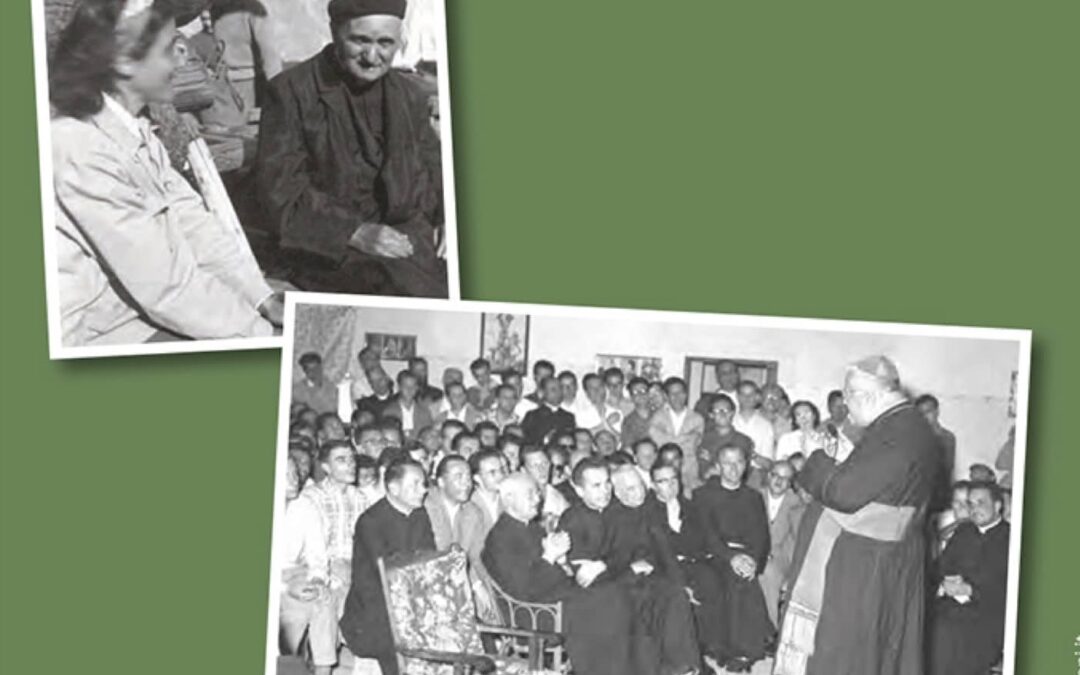
Jun 10, 2017 | Non categorizzato
 The then Archbishop of Trento, Msgr. Carlo de Ferrari, had the task of first assessing and approving the Focolare Movement at the diocesan level. The title of the recent book published by Città Nuova Publishing House “Qui c’è il dito di Dio” (Here Is the Hand of God), recalls the expression he used in reference to the evangelical experience that Chiara Lubich and her first companions were living. The context is 1951, a period when not everyone in the Church thought the same as the archbishop of Trent. Indeed, there were many ecclesiastical perplexities and suspicions, in pre-Vatican Council times, with regards to this young lay woman, who had as her followers priests, men and women religious, lay men and women, young people and not so young. Prudence suggested distancing her and perhaps replacing her with a priest. It was through these circumstances that Chiara’s decisive relationship with her bishop began. The book opens with a letter from Chiara Lubich, written from Rome, to Archbishop Carlo de Ferrari. The letter is dated January 5, 1951 and the period of trial that the nascent Movement and Chiara herself were experiencing shines through every line of the text.
The then Archbishop of Trento, Msgr. Carlo de Ferrari, had the task of first assessing and approving the Focolare Movement at the diocesan level. The title of the recent book published by Città Nuova Publishing House “Qui c’è il dito di Dio” (Here Is the Hand of God), recalls the expression he used in reference to the evangelical experience that Chiara Lubich and her first companions were living. The context is 1951, a period when not everyone in the Church thought the same as the archbishop of Trent. Indeed, there were many ecclesiastical perplexities and suspicions, in pre-Vatican Council times, with regards to this young lay woman, who had as her followers priests, men and women religious, lay men and women, young people and not so young. Prudence suggested distancing her and perhaps replacing her with a priest. It was through these circumstances that Chiara’s decisive relationship with her bishop began. The book opens with a letter from Chiara Lubich, written from Rome, to Archbishop Carlo de Ferrari. The letter is dated January 5, 1951 and the period of trial that the nascent Movement and Chiara herself were experiencing shines through every line of the text. 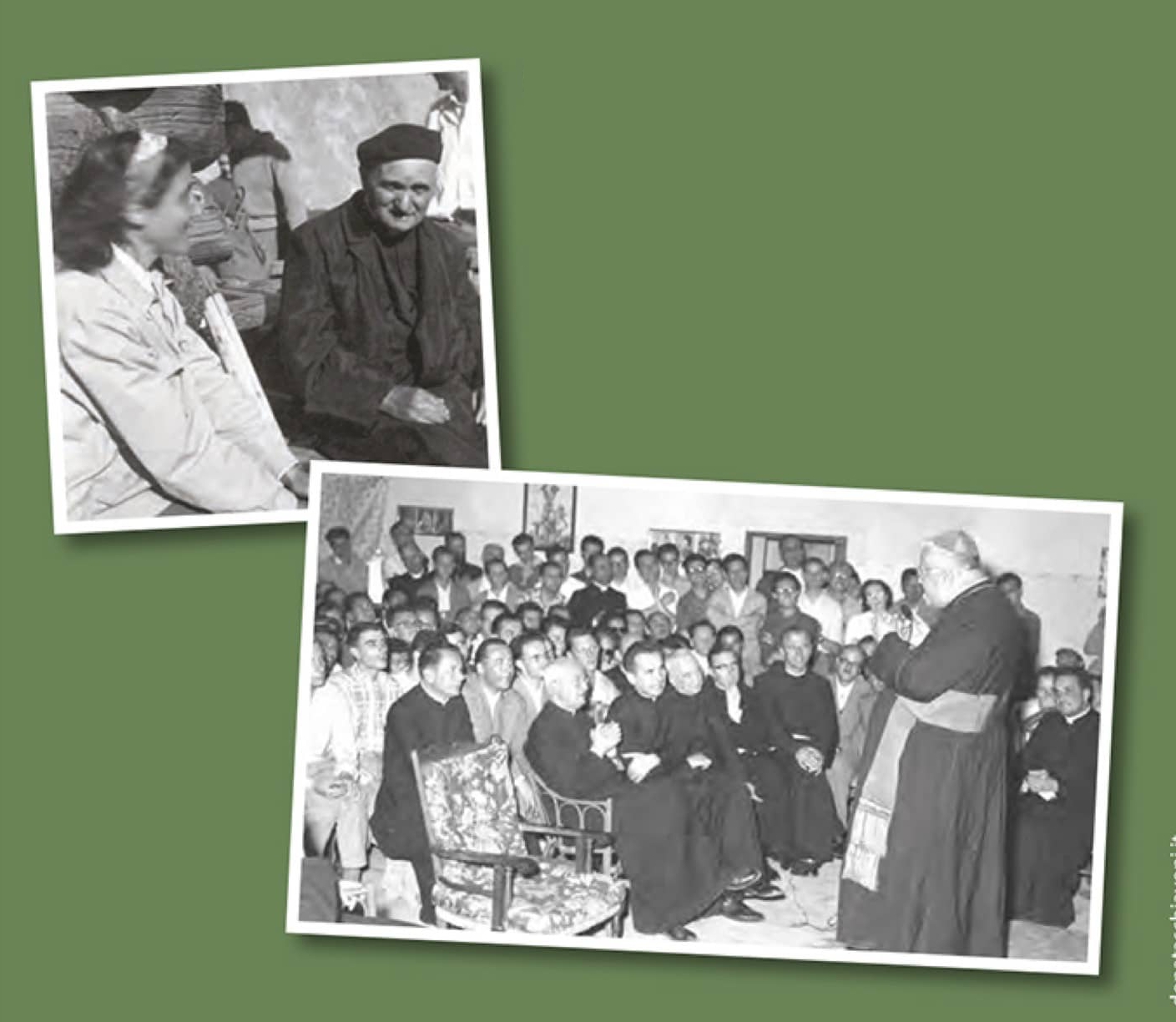 Most Reverend Highness, [1] It’s so true. The cross was heavy and still is, and in these days I understood why Jesus “fell” under the weight of the cross. But, Your Highness, I’m happy, truly happy. I’ve obtained the grace from Jesus to be ready for every decision made by the Church. Not only that, but to leave “my own” (I can still call them that for a while longer), fifty men and women focolarini in such perfect unity that they will be able to pursue their path without anyone even noticing that anything has changed. I’m happy, Highness, to be able to give God all that He has done through me in the supernatural field. I assure You that no matter what happens You can always be assured of my faithfulness to my Jesus forsaken and obedience to the Church. I’ve come this far precisely because I’ve never wanted, on my part, to break unity with the Church, or better, with whoever represented it. If I hadn’t done as I did, perhaps the Movement wouldn’t exist. But the Lord God gave me resistance even against the unimaginable. Now the Movement exists and it will never die. That it is the work of God will be shown perhaps by the fact that I will have to distance myself from it. If I must testify to Him by becoming nothing, after having borne witness to Him through Unity, I’m happy. The culmination of of the life of Jesus was spent in loving was death: and no one has greater love than to give their life for their friends. You, Father, were truly a Father to me, and you showed me (what I believed only through faith) that the Church is a Mother. I will always keep You as Father whatever the Will of God will be for me. No one can forbid me from obeying You, which means obeying the Church. What matters in becoming holy is to obey: to be one. Little does it matter whether they command us to act or not act in one way or another. Isn’t that true, Father? Father Tomasi is a holy man. He’s suffering very much at the moment and is not eating. He is suffering for me… I would never have thought that he could have such feelings.But don’t worry, Your Highness, because we are supporting him and in his presence I also feel lighthearted. In conclusion, I can only tell you one thing: I’m very happy, immensely happy. And I can assure You that Jesus Forsaken will carry me through. Besides: ‘Blessed are you when they separate you and ‘lying, say all manner of evil against you. Rejoice and be glad because your reward in Heaven is great.’ Bless me now and forever, your daughter, Chiara.” Da “Qui c’è il dito di Dio”, (Rome: Ed. Città Nuova, 2017) [1] In those years, the archbishop of Trent was addressed as “Your Highness”.
Most Reverend Highness, [1] It’s so true. The cross was heavy and still is, and in these days I understood why Jesus “fell” under the weight of the cross. But, Your Highness, I’m happy, truly happy. I’ve obtained the grace from Jesus to be ready for every decision made by the Church. Not only that, but to leave “my own” (I can still call them that for a while longer), fifty men and women focolarini in such perfect unity that they will be able to pursue their path without anyone even noticing that anything has changed. I’m happy, Highness, to be able to give God all that He has done through me in the supernatural field. I assure You that no matter what happens You can always be assured of my faithfulness to my Jesus forsaken and obedience to the Church. I’ve come this far precisely because I’ve never wanted, on my part, to break unity with the Church, or better, with whoever represented it. If I hadn’t done as I did, perhaps the Movement wouldn’t exist. But the Lord God gave me resistance even against the unimaginable. Now the Movement exists and it will never die. That it is the work of God will be shown perhaps by the fact that I will have to distance myself from it. If I must testify to Him by becoming nothing, after having borne witness to Him through Unity, I’m happy. The culmination of of the life of Jesus was spent in loving was death: and no one has greater love than to give their life for their friends. You, Father, were truly a Father to me, and you showed me (what I believed only through faith) that the Church is a Mother. I will always keep You as Father whatever the Will of God will be for me. No one can forbid me from obeying You, which means obeying the Church. What matters in becoming holy is to obey: to be one. Little does it matter whether they command us to act or not act in one way or another. Isn’t that true, Father? Father Tomasi is a holy man. He’s suffering very much at the moment and is not eating. He is suffering for me… I would never have thought that he could have such feelings.But don’t worry, Your Highness, because we are supporting him and in his presence I also feel lighthearted. In conclusion, I can only tell you one thing: I’m very happy, immensely happy. And I can assure You that Jesus Forsaken will carry me through. Besides: ‘Blessed are you when they separate you and ‘lying, say all manner of evil against you. Rejoice and be glad because your reward in Heaven is great.’ Bless me now and forever, your daughter, Chiara.” Da “Qui c’è il dito di Dio”, (Rome: Ed. Città Nuova, 2017) [1] In those years, the archbishop of Trent was addressed as “Your Highness”.
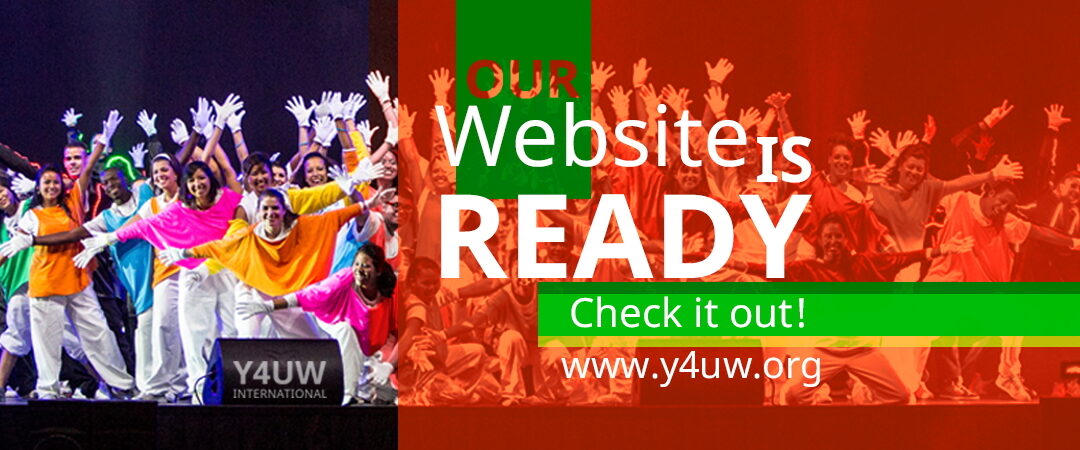
Jun 9, 2017 | Non categorizzato
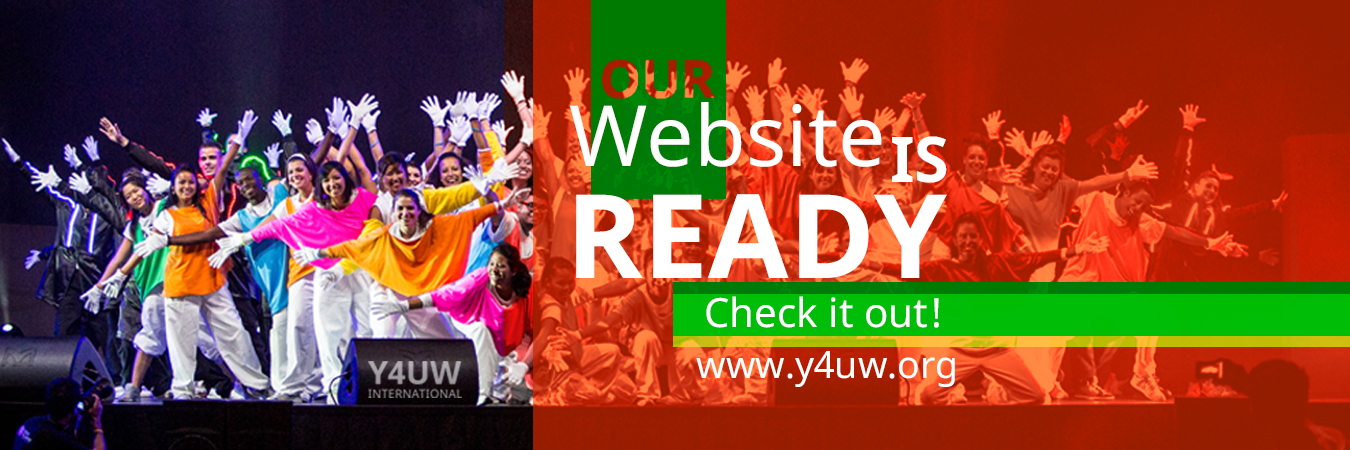 Youth for a United World is an international movement which gathers young people of different races, cultures, religions from 180 countries and across 5 continents. They strive to live for a more united world by putting into practice the Golden Rule: “Do to others what you want them to do unto you; don’t do unto others what you don’t want them to do unto you”. In order to be better connected with young people throughout the world, Youth for a United World have created new communication channels, one of which is the newly launched website yfuw.org which includes content about the movement’s history, news items as well as past and forthcoming events. Genfest 2018: the worldwide event which will take place next year (6-7 July) in Manila, Philippines. More interaction: y4uw.org gives the possible to connect up with young people around the globe.It’s possible to post comments, suggestions, feedback regarding website content but also to convey news about local youth activities. New design: the revamped website makes it easier to view current projects and to contact the protagonists. It’s possible to contact Youth for a United World through the social media: Instagram & Twitter: Y4UW.official Facebook: Y4UW.international
Youth for a United World is an international movement which gathers young people of different races, cultures, religions from 180 countries and across 5 continents. They strive to live for a more united world by putting into practice the Golden Rule: “Do to others what you want them to do unto you; don’t do unto others what you don’t want them to do unto you”. In order to be better connected with young people throughout the world, Youth for a United World have created new communication channels, one of which is the newly launched website yfuw.org which includes content about the movement’s history, news items as well as past and forthcoming events. Genfest 2018: the worldwide event which will take place next year (6-7 July) in Manila, Philippines. More interaction: y4uw.org gives the possible to connect up with young people around the globe.It’s possible to post comments, suggestions, feedback regarding website content but also to convey news about local youth activities. New design: the revamped website makes it easier to view current projects and to contact the protagonists. It’s possible to contact Youth for a United World through the social media: Instagram & Twitter: Y4UW.official Facebook: Y4UW.international
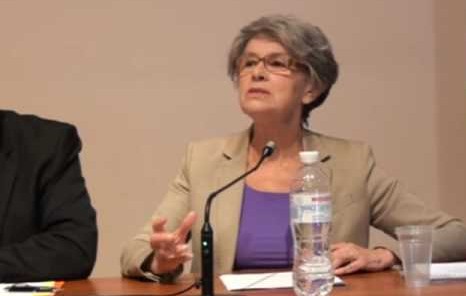
Jun 8, 2017 | Non categorizzato

Anne-Marie Pelletier
Maria Rita Cerimele
Source: Città Nuova
Jun 7, 2017 | Non categorizzato
“The role of women in the education towards universal brotherhood,” is the theme of the plenary session of the Pontifical Council for interreligious Dialogue, programmed for 7-9 June, in Rome. The event will highlight four Conferences: Sr. Nuria Calduch-Benages, Spanish biblist will speak about “Women educators in universal brotherhood,” Sr. Raffaella Petrini, professor in the Social Doctrine of the Church, will focus on “Women’s qualities against the technocratic paradigm: a Catholic and social perspective on the contribution of women to fraternity;” Marie Derain, French lawyer and infancy civil defence attorney will discuss the theme “Building peace: the role of women ;” and then Clare Amos, of the Ecumenical Council of Churches will expound on “the role of women in education in universal brotherhood.” The participants will be received by the Pope.
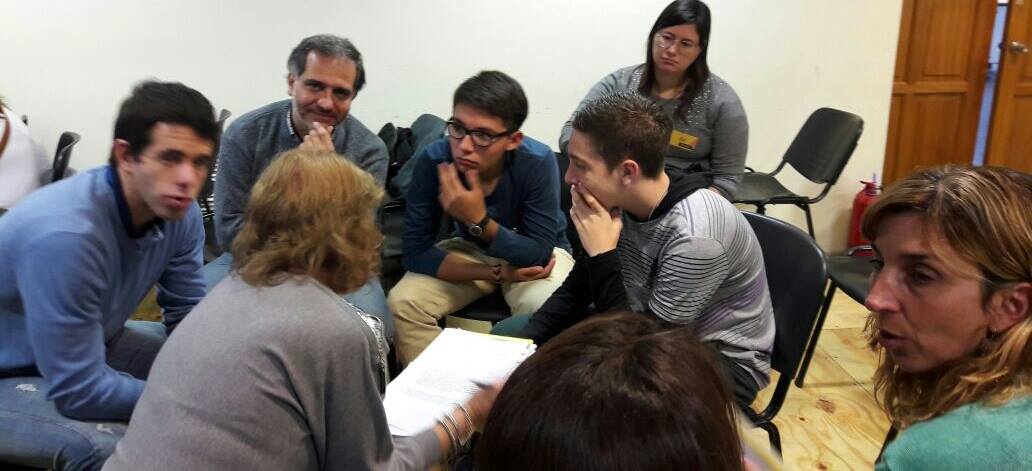
Jun 7, 2017 | Focolare Worldwide
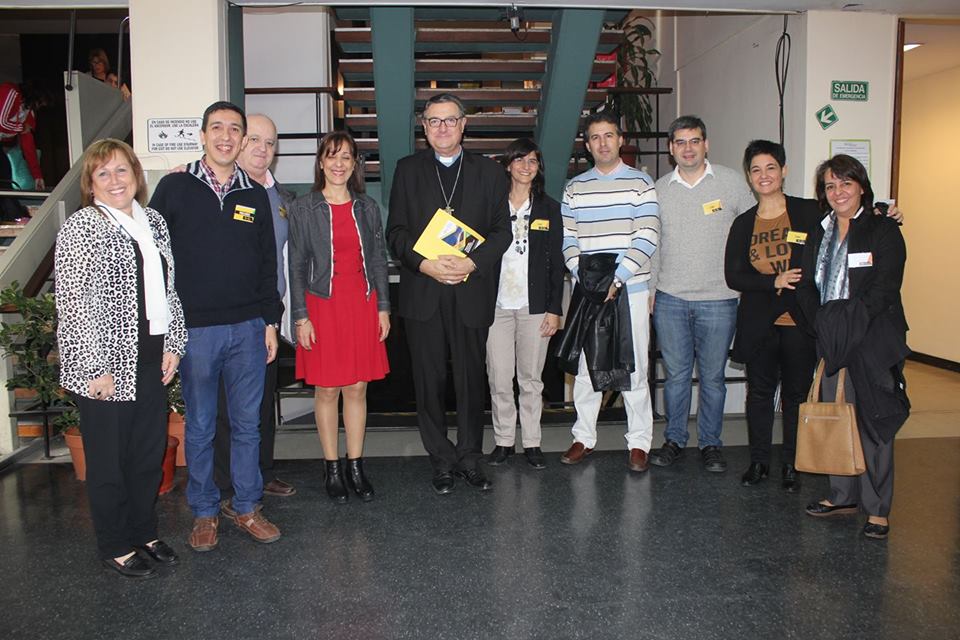 «This is not just a meeting for educators», one of the participants commented with emotion. «I am no longer the same person I was when I got here». «Fraternity, as a lifeoption is the blood that must run in my veins.» There were some impressions of the many participants from countries of the Southern Conethat gathered from 12-14 May in Rosario, Argentina. Besides these, about 500 educators took part directly via streaming during the various moments dedicated to the theme of the Meeting: “The service to learning service,” “Education for a fraternal economy,” “Inter-generational dialogue, and “Empathy and intercultural Workshop” to name a few. The first day started with the visit of the Governor of Santa Fe, Miguel Lifschitz, and authorities of the other local institutions. The Archbishop of Rosario, Bishop Martin, gave a speech the day after and started by affirming that the word,“fraternity,” says that we are not alone.«In this country God brought us together and the challenge we had before is called coexistence…You are not only diffusing theories but you start off from life, and concrete facts.» What came to light was not only the life of fraternity between the students and with their teachers but also between directors and inspectors, proposing innovations for the benefit of the entire educational community. The schools with artistic orientations and which had adhered to the objective of brotherhood gave their testimonials on how interculturality is lived through art, demonstrating new ways of interpreting life as artists. The workshop on inclusion helped to clarify the concept of how “the other, with all his differences is a gift.”
«This is not just a meeting for educators», one of the participants commented with emotion. «I am no longer the same person I was when I got here». «Fraternity, as a lifeoption is the blood that must run in my veins.» There were some impressions of the many participants from countries of the Southern Conethat gathered from 12-14 May in Rosario, Argentina. Besides these, about 500 educators took part directly via streaming during the various moments dedicated to the theme of the Meeting: “The service to learning service,” “Education for a fraternal economy,” “Inter-generational dialogue, and “Empathy and intercultural Workshop” to name a few. The first day started with the visit of the Governor of Santa Fe, Miguel Lifschitz, and authorities of the other local institutions. The Archbishop of Rosario, Bishop Martin, gave a speech the day after and started by affirming that the word,“fraternity,” says that we are not alone.«In this country God brought us together and the challenge we had before is called coexistence…You are not only diffusing theories but you start off from life, and concrete facts.» What came to light was not only the life of fraternity between the students and with their teachers but also between directors and inspectors, proposing innovations for the benefit of the entire educational community. The schools with artistic orientations and which had adhered to the objective of brotherhood gave their testimonials on how interculturality is lived through art, demonstrating new ways of interpreting life as artists. The workshop on inclusion helped to clarify the concept of how “the other, with all his differences is a gift.” 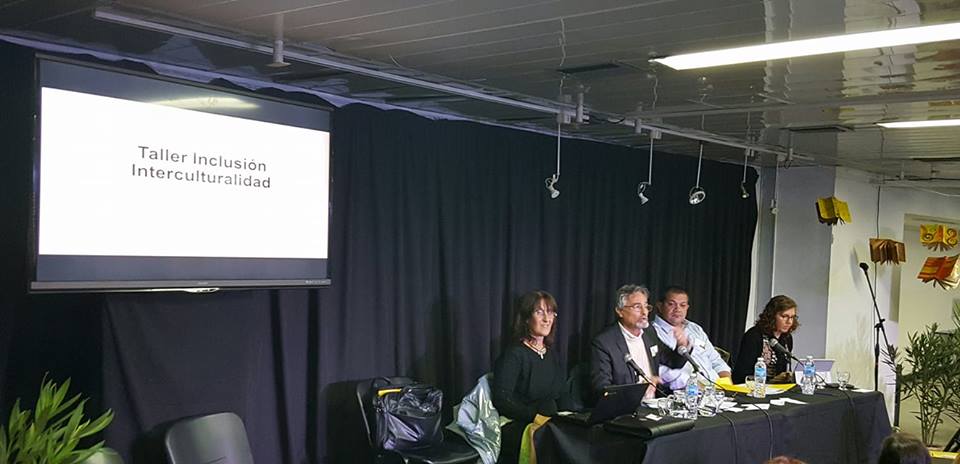 The theme on education and training outside the school environment, which is a life-learning process focusing on brotherhood as its methodology, indicated a pathway which consists in going out towards the peripheries with a programme centered on values. The experiences on the relationship between education and technology were presented as the great opportunity to achieve fraternity, setting the relationship between students and that with the teachers on the same level, and as the possibility to bring out the best in the others, and learn from everyone. Also many educational practices that had produced excellent results were presented, and concerned the potential of body language and the golden rule in the field of sports as a way of building bridges in such important fields.
The theme on education and training outside the school environment, which is a life-learning process focusing on brotherhood as its methodology, indicated a pathway which consists in going out towards the peripheries with a programme centered on values. The experiences on the relationship between education and technology were presented as the great opportunity to achieve fraternity, setting the relationship between students and that with the teachers on the same level, and as the possibility to bring out the best in the others, and learn from everyone. Also many educational practices that had produced excellent results were presented, and concerned the potential of body language and the golden rule in the field of sports as a way of building bridges in such important fields.  All this can be summarized in Chiara Lubich’s educational proposal to be applied in many educational realities worldwide, inspired by love for the more vulnerable, “ignorant,” abandoned people who are excluded from the system. It is a path that identifies the presence of Jesus Crucified and Abandoned: an abandonment that found its answer of love in the Resurrection, which is thus a key to building fraternity right in the heart of the “divide.” «I leave with my heart full of hope knowing that this paradigm exists, knowing that there are a lot of people working to combat verticality, the lack of mutual listening, the widespread mentality for which knowledge is only in the hands of the teacher, the adult – said Enzo of Chacabuco, specialized in music therapy. – This is a different road. I hope the second edition of this Convention will be organised soon.» Source: SiteSouthern Cone
All this can be summarized in Chiara Lubich’s educational proposal to be applied in many educational realities worldwide, inspired by love for the more vulnerable, “ignorant,” abandoned people who are excluded from the system. It is a path that identifies the presence of Jesus Crucified and Abandoned: an abandonment that found its answer of love in the Resurrection, which is thus a key to building fraternity right in the heart of the “divide.” «I leave with my heart full of hope knowing that this paradigm exists, knowing that there are a lot of people working to combat verticality, the lack of mutual listening, the widespread mentality for which knowledge is only in the hands of the teacher, the adult – said Enzo of Chacabuco, specialized in music therapy. – This is a different road. I hope the second edition of this Convention will be organised soon.» Source: SiteSouthern Cone
Jun 6, 2017 | Focolare Worldwide
On May 31, 2017, the University of Tubingen, Germany, conferred an honorary doctorate to the Ecumenical Patriarch of Constantinople, Bartholomew I. The degree honours his long years of work in promoting understanding between the Orthodox Church and the Protestant Churches; his efforts for the protection of the Creation; for Europe and for dialogue among religions. The University is one of the oldest in Germany, founded in 1477 and stands among the most internationally reputable centres of study for students of Medicine, the Natural Sciences, Human Sciences. It currently serves some 28,500 students.
Jun 6, 2017 | Non categorizzato
Jun 5, 2017 | Non categorizzato
June 5: World Environment Day is celebrated (W.E.D., World Environment Day). The date was chosen by the United Nations to remind the Stockholm Conference on the Environment in 1972, where the United Nations Environment Program was drafted. The Day has become an occasion to stimulate global attention and knowledge of environmental issues. It is also an opportunity to reflect on the health of the Earth, our common home, but also to actively promote a healthy co-existence among all its inhabitants.
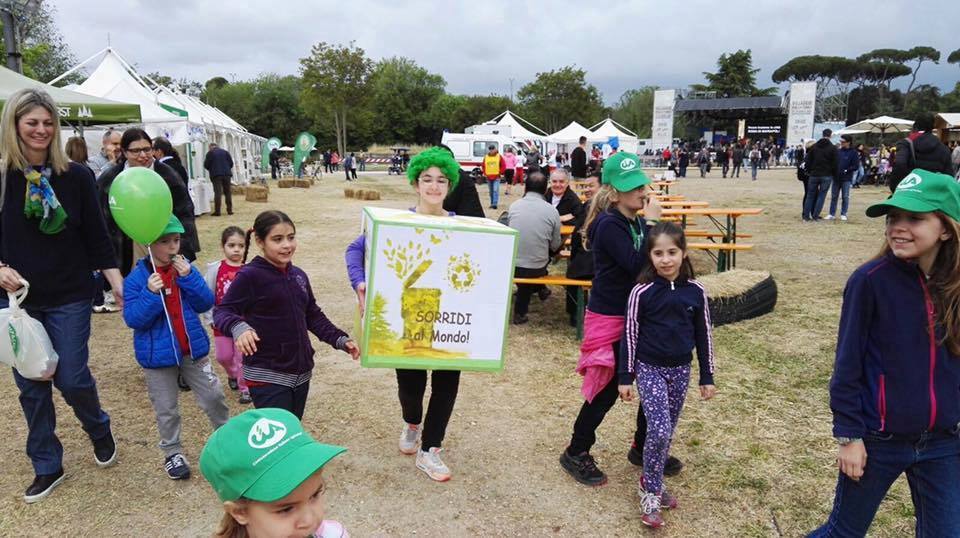
Jun 5, 2017 | Non categorizzato
 At a time when many are panicking over Blue Whale that has gone viral, finally a different kind of equally contagious game…and a much more positive one! On the web or in a more traditional way, with paper and scissors, there is a game that helps to keep the planet healthy and liveable. First move: click here (a move to the web is required for traditionalists too!). At this point, the indisputable star, the “Dice” or Cube, will remind us every time we take a chance with the most famous game of chance ever made: six possibilities and a bit of luck. Whether you cast it online or you cut it out and build it with your own hands (good for smaller children), this new Cube offers much more. Each side is a small (but great) invitation to respect the environments of the earth on which we live – and its inhabitants. A small compendium of ecology and social relations good for any age, promoted by the EcoOne Ecological/Cultural Project that has spread to 180 countries and recently put experts, researchers and professionals online introducing Environmental topics. There’s only one difference: it’s no theory, but an immediate invitation act each and every day. For example? Well, one side of the dice says: “Discover unbelievable things!”. The world is full of incredible things, from the majestic heights of snow-capped mountains to the depths of the endless seas, from the countless variety of plants to every living thing, even the most tiny things that share the same planet. Every detail in nature fills us with astonishment and wonder, and inspires gratitude for the Creator. What can I do this day to see the world with such eyes?
At a time when many are panicking over Blue Whale that has gone viral, finally a different kind of equally contagious game…and a much more positive one! On the web or in a more traditional way, with paper and scissors, there is a game that helps to keep the planet healthy and liveable. First move: click here (a move to the web is required for traditionalists too!). At this point, the indisputable star, the “Dice” or Cube, will remind us every time we take a chance with the most famous game of chance ever made: six possibilities and a bit of luck. Whether you cast it online or you cut it out and build it with your own hands (good for smaller children), this new Cube offers much more. Each side is a small (but great) invitation to respect the environments of the earth on which we live – and its inhabitants. A small compendium of ecology and social relations good for any age, promoted by the EcoOne Ecological/Cultural Project that has spread to 180 countries and recently put experts, researchers and professionals online introducing Environmental topics. There’s only one difference: it’s no theory, but an immediate invitation act each and every day. For example? Well, one side of the dice says: “Discover unbelievable things!”. The world is full of incredible things, from the majestic heights of snow-capped mountains to the depths of the endless seas, from the countless variety of plants to every living thing, even the most tiny things that share the same planet. Every detail in nature fills us with astonishment and wonder, and inspires gratitude for the Creator. What can I do this day to see the world with such eyes?  Another toss, another side: “Smile at the world!” Nothing better than positive actions makes the world a better place to live in. Whether its recycling trash or reusing unused objects, not wasting water or turning off the lights, carpooling to reduce gas emissions or caring for a small public garden – it’s enough to think that each and each action has a consequence. The next side: “We’re all connected!” Each thing on the planet is in relationship with all the rest: a factory that puffs smoke, a contaminated water flow, a plastic bottle forgotten on the shore. Every great or small action has a consequence, for good or for bad. How can I build positive connections? The game goes on and never ends: “Now is the moment”. How many times have we said, “I’ll do it tomorrow,” but then did nothing? The world can’t stand by and wait while we keep putting it off! I have to act now and begin again every time I fall. “Only what you need!” Just like a plant that draws from the ground only what it needs to grow, so must we learn to distinguish between needs and desires, reducing to the maximum the negative impact of our actions and amplifying the positive. And finally, “Everything is a gift”. How can I protect everything around me so that future generations can enjoy it? Fortunately die-hard players are many. “Only what you need” was the Earth Cube’s tip for today. And so my day began with a “timed” shower – getting out of the shower before the timer went off – then recycling and reusing paper at work, followed by a lighter lunch than usual. Okay, maybe they’re just small things, but at least I kept going at 100%!” (San Paolo, Brazil) “We’re all interconnected!” is what I read on the Cube today, after tossing it. I remembered that I had left the lights on in the house, so I went back and turned them of before going out for the night. I also turned off the computer. The little things I do really do have an impact on others!” (Nairobi, Kenya) “The Time Is Now“ … Let’s roll the dice! Never has a game been so serious and fascinating at the same time.
Another toss, another side: “Smile at the world!” Nothing better than positive actions makes the world a better place to live in. Whether its recycling trash or reusing unused objects, not wasting water or turning off the lights, carpooling to reduce gas emissions or caring for a small public garden – it’s enough to think that each and each action has a consequence. The next side: “We’re all connected!” Each thing on the planet is in relationship with all the rest: a factory that puffs smoke, a contaminated water flow, a plastic bottle forgotten on the shore. Every great or small action has a consequence, for good or for bad. How can I build positive connections? The game goes on and never ends: “Now is the moment”. How many times have we said, “I’ll do it tomorrow,” but then did nothing? The world can’t stand by and wait while we keep putting it off! I have to act now and begin again every time I fall. “Only what you need!” Just like a plant that draws from the ground only what it needs to grow, so must we learn to distinguish between needs and desires, reducing to the maximum the negative impact of our actions and amplifying the positive. And finally, “Everything is a gift”. How can I protect everything around me so that future generations can enjoy it? Fortunately die-hard players are many. “Only what you need” was the Earth Cube’s tip for today. And so my day began with a “timed” shower – getting out of the shower before the timer went off – then recycling and reusing paper at work, followed by a lighter lunch than usual. Okay, maybe they’re just small things, but at least I kept going at 100%!” (San Paolo, Brazil) “We’re all interconnected!” is what I read on the Cube today, after tossing it. I remembered that I had left the lights on in the house, so I went back and turned them of before going out for the night. I also turned off the computer. The little things I do really do have an impact on others!” (Nairobi, Kenya) “The Time Is Now“ … Let’s roll the dice! Never has a game been so serious and fascinating at the same time.
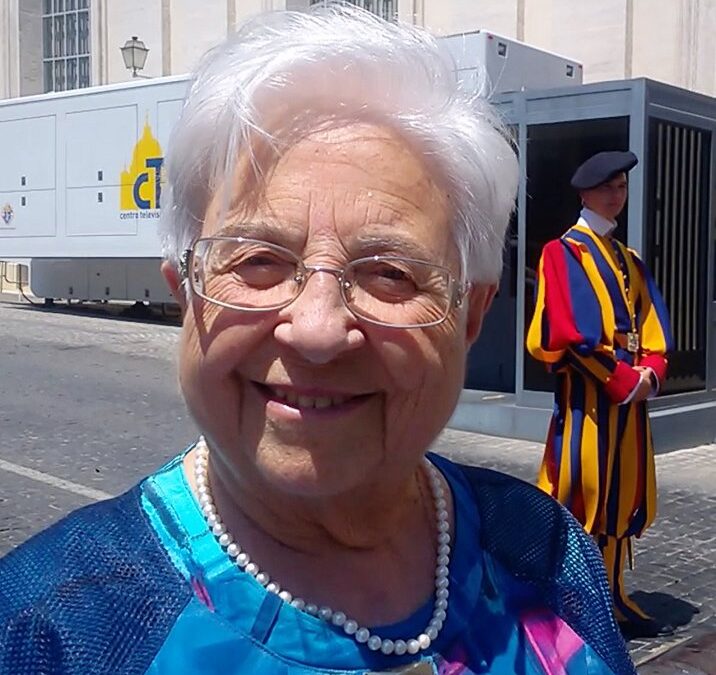
Jun 3, 2017 | Non categorizzato
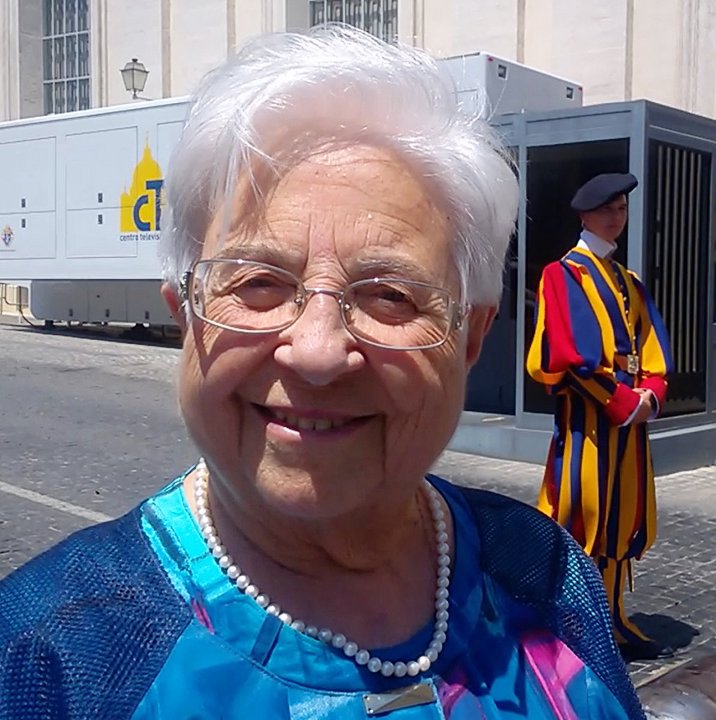 When greeting the participants, the Pope said: “Thank you for what you do, working for Christian unity all together as the Lord wishes. Let us walk together, let us help the poor together, charity together, education together. All together”. He continued: “And may theologians carry out their work and help us too. But we, always walking, never still, never still… and together. This is what I wish for, and I thank you because I know you do this.” Maria Voce, who was among the evangelical leaders invited for this audience, comments: “It was a brief but a personal encounter; the Pope greeted each one of us. We were in the Consistory Hall, and he wanted us to be in the form of a circle to greet each one of us personally. Then he just stopped with us for a couple of minutes; he wanted to show his gratitude for this visit. He was pleased about it; he felt it as a sign of esteem and affection. He expressed his desire that we walk together. He said that this ecumenism is walking together and he thanked the participants because, he said ‘I know that you do this’. He urged us to keep on walking together. Theologians will help us understand the differences and find a way to overcome them, but the most important thing is that we walk together because it is God’s will that we all be one. This was his message. He was very relaxed and very pleased to meet everyone.” Pope Francis said that he would meet the participants in the afternoon at Circus Maximus. On the eve of Pentecoste, an event is being organized by the International Catholic Charismatic Renewal Services and the Catholic Fraternity to celebrate the Catholic Charismatic Renewal Golden Jubilee. Press Release
When greeting the participants, the Pope said: “Thank you for what you do, working for Christian unity all together as the Lord wishes. Let us walk together, let us help the poor together, charity together, education together. All together”. He continued: “And may theologians carry out their work and help us too. But we, always walking, never still, never still… and together. This is what I wish for, and I thank you because I know you do this.” Maria Voce, who was among the evangelical leaders invited for this audience, comments: “It was a brief but a personal encounter; the Pope greeted each one of us. We were in the Consistory Hall, and he wanted us to be in the form of a circle to greet each one of us personally. Then he just stopped with us for a couple of minutes; he wanted to show his gratitude for this visit. He was pleased about it; he felt it as a sign of esteem and affection. He expressed his desire that we walk together. He said that this ecumenism is walking together and he thanked the participants because, he said ‘I know that you do this’. He urged us to keep on walking together. Theologians will help us understand the differences and find a way to overcome them, but the most important thing is that we walk together because it is God’s will that we all be one. This was his message. He was very relaxed and very pleased to meet everyone.” Pope Francis said that he would meet the participants in the afternoon at Circus Maximus. On the eve of Pentecoste, an event is being organized by the International Catholic Charismatic Renewal Services and the Catholic Fraternity to celebrate the Catholic Charismatic Renewal Golden Jubilee. Press Release
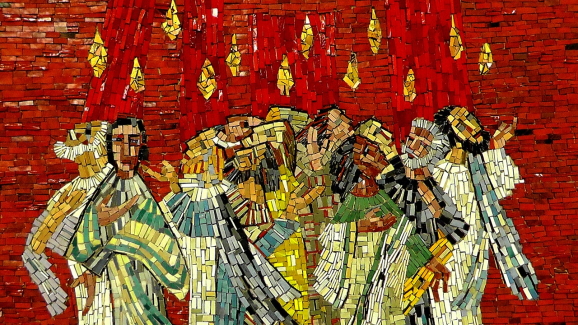
Jun 3, 2017 | Non categorizzato
 “The Holy Spirit can do incredible things! Just look at the Apostles! Jesus had founded the Church on the cross, yet they were bewildered, hesitant and scared, hiding behind locked doors. Then the Holy Spirit came down upon them, and filled them with courage. They went out into the streets and squares, and spoke with such fire, that people thought they were drunk. Later, they bravely faced persecution and set out to bring the Good News to the whole world. This is just one important example of what the Holy Spirit can do – not to mention all that he has done in the Church throughout her twenty centuries of life: miraculous outpourings of light, grace, transformation, and renewal. Think of the Councils, and of the various spiritual movements he raised up, always at just the right moment…. Look at the Focolare. Even in our own small way, didn’t something of this sort happen to us, because of the fact that the Holy Spirit bestowed one of his charisms on us? Before this happened to change our lives, weren’t we just like all those people who don’t see beyond their own neighbourhood, whose thoughts and affections are limited almost exclusively to the small circle of their family? … If, to a greater or lesser degree, things around us have changed for the better, this is the work of the Holy Spirit, who renews the face of the earth. Yes, for his task is to instil drive and motivation; to enable grace – the divine life Jesus has obtained for us – to be at work in our lives; to give us strength and courage. Since we owe him so much, he should hold a much more prominent place in our spiritual lives. … May this thought shed light on our path in the days ahead: Let’s honour the Holy Spirit, by loving, respecting, and serving every neighbour. (15/9/1983) «Is the Holy Spirit in us? Does he speak to our heart? Let’s become attentive and assiduous pupils of this great Teacher. Let’s pay great attention to his mysterious and very delicate signs. Let’s not let any of what might be his inspirations come in vain … Let’s remember that the ideas that come to the mind of a person who has set out to love are often inspirations of the Holy Spirit. Why does he give us them? For our good and for the good of the world through us, so that we can take forward our revolution of love. Pay attention then, every idea, especially if we think it could be an inspiration, let’s feel that it is a responsibility, to take hold of and act upon. By doing this we will have found the best way of loving, honouring and thanking the Holy Spirit. (1/9/1983) Chiara Lubich, da LA VITA UN VIAGGIO – Città Nuova, 1984, pagg. 125-128
“The Holy Spirit can do incredible things! Just look at the Apostles! Jesus had founded the Church on the cross, yet they were bewildered, hesitant and scared, hiding behind locked doors. Then the Holy Spirit came down upon them, and filled them with courage. They went out into the streets and squares, and spoke with such fire, that people thought they were drunk. Later, they bravely faced persecution and set out to bring the Good News to the whole world. This is just one important example of what the Holy Spirit can do – not to mention all that he has done in the Church throughout her twenty centuries of life: miraculous outpourings of light, grace, transformation, and renewal. Think of the Councils, and of the various spiritual movements he raised up, always at just the right moment…. Look at the Focolare. Even in our own small way, didn’t something of this sort happen to us, because of the fact that the Holy Spirit bestowed one of his charisms on us? Before this happened to change our lives, weren’t we just like all those people who don’t see beyond their own neighbourhood, whose thoughts and affections are limited almost exclusively to the small circle of their family? … If, to a greater or lesser degree, things around us have changed for the better, this is the work of the Holy Spirit, who renews the face of the earth. Yes, for his task is to instil drive and motivation; to enable grace – the divine life Jesus has obtained for us – to be at work in our lives; to give us strength and courage. Since we owe him so much, he should hold a much more prominent place in our spiritual lives. … May this thought shed light on our path in the days ahead: Let’s honour the Holy Spirit, by loving, respecting, and serving every neighbour. (15/9/1983) «Is the Holy Spirit in us? Does he speak to our heart? Let’s become attentive and assiduous pupils of this great Teacher. Let’s pay great attention to his mysterious and very delicate signs. Let’s not let any of what might be his inspirations come in vain … Let’s remember that the ideas that come to the mind of a person who has set out to love are often inspirations of the Holy Spirit. Why does he give us them? For our good and for the good of the world through us, so that we can take forward our revolution of love. Pay attention then, every idea, especially if we think it could be an inspiration, let’s feel that it is a responsibility, to take hold of and act upon. By doing this we will have found the best way of loving, honouring and thanking the Holy Spirit. (1/9/1983) Chiara Lubich, da LA VITA UN VIAGGIO – Città Nuova, 1984, pagg. 125-128
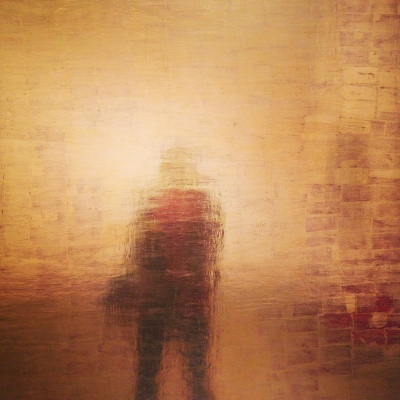
Jun 2, 2017 | Non categorizzato
 The last stop on my visit to Jordan was to a women’s jail on the outskirts of Amman. At the visitors security entrance, Omar, the friend who was accompanying me, was asked to remove his watch and sunglasses. Mine were also likely to be taken away, but I let them try them on and the young guard realized that without them I could hardly see. We reached the first waiting room on the other side of a long courtyard. The day was already summery. We got through the umpteenth security checkpoint and submitted the paper with the name of the person we wanted to meet. Two young women were waiting for someone in the waiting room. Who are you waiting for, a sister…or a mother? There was also a man in his fifties with Arab features. He was fixing his ragged shoes as he also waited. My friend went to sit down, but the chair broke. Any other time and in any other place, everyone would have burst out laughing at such a sight. But there in that waiting room no one dared. They were all taken by their pain. The climate in that room was like the one you feel when you’re about to get some news from a doctor about a very sick friend. The scratchy voice over the loudspeaker and the way the old man jumped to his feet, made me realize that it was his turn. Soon after it was ours. There was a narrow corridor. All the cells had a small window on the side with those classic old-fashioned telephones on each side of the pane. Our friend was unexpectedly joyful, gesticulating and quite excited to see us. She spoke into the receiver and let us know that we could ask to meet in another room, face-to-face. It was Easter Day and Christians were allowed to receive visitors. We exited the facility and re-entered through the official entrance. We had to show our passports again, answer questions and the name of the person we wanted to see. We waited in a hall, helping out the employees to stuff documents in numbered files. It was a long wait. Perhaps for her it was also a long road, made of opening and closing doors. She finally arrived. She could have been around forty years old, South American and quite jovial. “My cellmates will be so jealous!” She was a sweet person. She acknowledged she had made some mistakes. She would be released in a few months and was counting down the days on a calendar she had constructed. During her two years in jail, she had become a grandmother and hadn’t yet met her grandson. Her two oldest children have left school to work, and she doesn’t have a husband. “When I go back they’ll blame me, and it’s only right that they should be angry with me. I manage to hear from them on the phone once in a while. My wish was to open an orphanage for street children. Life is hard in here, at times I thought about ending to it all. You become bad. But I can’t; when they become angry or beat me, I stay calm. I just can’t bring myself to react. I have friends in here, some for many years. Fernanda’s been here for eight years, but she’ll be let out soon. She’s 29 years old and dying with a serious illness. She came in very young, for a more stupid offense than mine. She went and swallowed a few rolls of that junk. I thank God, in spite of it all. I feel He is close to me, and that’s why I feel privileged.” We said goodbye with a hug, and it’s difficult to describe what I experienced at that moment. I wanted it to be a small way of taking on some of her suffering and pain. Perhaps on such a sunny day, at least a ray of His Love had shone through the prison bars and gray walls. It’s a special Easter morning and I can’t but thank God for what he made me live: resurrection and true freedom. I met a free woman in jail, because she was so aware of God’s love for her. (Ago Spolti, Italy)
The last stop on my visit to Jordan was to a women’s jail on the outskirts of Amman. At the visitors security entrance, Omar, the friend who was accompanying me, was asked to remove his watch and sunglasses. Mine were also likely to be taken away, but I let them try them on and the young guard realized that without them I could hardly see. We reached the first waiting room on the other side of a long courtyard. The day was already summery. We got through the umpteenth security checkpoint and submitted the paper with the name of the person we wanted to meet. Two young women were waiting for someone in the waiting room. Who are you waiting for, a sister…or a mother? There was also a man in his fifties with Arab features. He was fixing his ragged shoes as he also waited. My friend went to sit down, but the chair broke. Any other time and in any other place, everyone would have burst out laughing at such a sight. But there in that waiting room no one dared. They were all taken by their pain. The climate in that room was like the one you feel when you’re about to get some news from a doctor about a very sick friend. The scratchy voice over the loudspeaker and the way the old man jumped to his feet, made me realize that it was his turn. Soon after it was ours. There was a narrow corridor. All the cells had a small window on the side with those classic old-fashioned telephones on each side of the pane. Our friend was unexpectedly joyful, gesticulating and quite excited to see us. She spoke into the receiver and let us know that we could ask to meet in another room, face-to-face. It was Easter Day and Christians were allowed to receive visitors. We exited the facility and re-entered through the official entrance. We had to show our passports again, answer questions and the name of the person we wanted to see. We waited in a hall, helping out the employees to stuff documents in numbered files. It was a long wait. Perhaps for her it was also a long road, made of opening and closing doors. She finally arrived. She could have been around forty years old, South American and quite jovial. “My cellmates will be so jealous!” She was a sweet person. She acknowledged she had made some mistakes. She would be released in a few months and was counting down the days on a calendar she had constructed. During her two years in jail, she had become a grandmother and hadn’t yet met her grandson. Her two oldest children have left school to work, and she doesn’t have a husband. “When I go back they’ll blame me, and it’s only right that they should be angry with me. I manage to hear from them on the phone once in a while. My wish was to open an orphanage for street children. Life is hard in here, at times I thought about ending to it all. You become bad. But I can’t; when they become angry or beat me, I stay calm. I just can’t bring myself to react. I have friends in here, some for many years. Fernanda’s been here for eight years, but she’ll be let out soon. She’s 29 years old and dying with a serious illness. She came in very young, for a more stupid offense than mine. She went and swallowed a few rolls of that junk. I thank God, in spite of it all. I feel He is close to me, and that’s why I feel privileged.” We said goodbye with a hug, and it’s difficult to describe what I experienced at that moment. I wanted it to be a small way of taking on some of her suffering and pain. Perhaps on such a sunny day, at least a ray of His Love had shone through the prison bars and gray walls. It’s a special Easter morning and I can’t but thank God for what he made me live: resurrection and true freedom. I met a free woman in jail, because she was so aware of God’s love for her. (Ago Spolti, Italy)
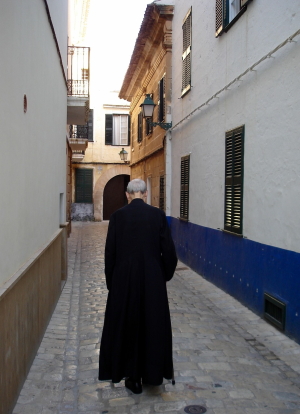
Jun 1, 2017 | Non categorizzato
 Baptism “It was almost lunchtime when a man knocked on the door of the parish to schedule a baptism. Since he wasn’t a parishioner, I had some questions. His situation was complex: his partner had given birth to his son, but his sister was the one who insisted that the child be baptized. I tried to take down his details quickly and said goodbye. As we were going out, I thought that I had treated him in too hurried a way. Having his address, and without thinking too much, I went to visit him, in an apartment that was very much in disarray. He was surprised and even alarmed: were there problems with the baptism? I reassured him that it was only to check that I had gotten down all the details. He and his partner opened up and invited me to join them for a modest lunch. So I got to know about people who are somewhat excluded, but above all it was a reminder of my only right: to be of service to others.” (K.L. – Poland) Testing ground “I manage a gift shop in a popular part of the city. For me, every person who comes into the store is more than a customer. I consider the relationship important, beyond the fact that I need to make a sale. There are some who come at times to confide their problems. I listen, and if I can, try to tell them mine. My father makes fun of me a bit, saying, ‘It seems more like a confessional than a shop.’ The fact is, for me work is a testing ground for my being Christian.” (Rachele – Italy) Superintendent “I work as the superintendent for two buildings, where people used to know each other only by their last names. Looking for chances to build relationships, I started telling a couple about life in the parish. The husband, despite not being a churchgoer, appreciated the gesture. I met someone from Thailand who thanked me by giving me chocolates. I then invited everyone to a barbecue: it was a successful evening that we repeated other times as well. Every once in a while I’d offer people returning from work a cup of coffee. These were simple gestures, but little by little some people felt they could confide in me more personal things. Like the tenant who considered prayer a waste of time. When I promised him to pray for him, he answered, ‘No one has ever spoken to me like this before now. I won’t forget it.’ An Italian couple, who were moving back to their country, before leaving invited all their neighbors to try some Italian specialties.” (Maria Rosa – Switzerland) Garbage “Coming out of school, I came across a dog on the sidewalk who was opening and destroying bags of garbage in search of food. I kept walking without thinking much of it, but something inside of me urged me to do something for others. Even though I was embarrassed, I went back and put the bags where they belonged. I had just turned the corner when I saw the garbage truck coming in the distance. I was happy because in our area it sometimes happens that the garbage collectors don’t pick everything up if they find things a mess.” (M. B. – Argentina)
Baptism “It was almost lunchtime when a man knocked on the door of the parish to schedule a baptism. Since he wasn’t a parishioner, I had some questions. His situation was complex: his partner had given birth to his son, but his sister was the one who insisted that the child be baptized. I tried to take down his details quickly and said goodbye. As we were going out, I thought that I had treated him in too hurried a way. Having his address, and without thinking too much, I went to visit him, in an apartment that was very much in disarray. He was surprised and even alarmed: were there problems with the baptism? I reassured him that it was only to check that I had gotten down all the details. He and his partner opened up and invited me to join them for a modest lunch. So I got to know about people who are somewhat excluded, but above all it was a reminder of my only right: to be of service to others.” (K.L. – Poland) Testing ground “I manage a gift shop in a popular part of the city. For me, every person who comes into the store is more than a customer. I consider the relationship important, beyond the fact that I need to make a sale. There are some who come at times to confide their problems. I listen, and if I can, try to tell them mine. My father makes fun of me a bit, saying, ‘It seems more like a confessional than a shop.’ The fact is, for me work is a testing ground for my being Christian.” (Rachele – Italy) Superintendent “I work as the superintendent for two buildings, where people used to know each other only by their last names. Looking for chances to build relationships, I started telling a couple about life in the parish. The husband, despite not being a churchgoer, appreciated the gesture. I met someone from Thailand who thanked me by giving me chocolates. I then invited everyone to a barbecue: it was a successful evening that we repeated other times as well. Every once in a while I’d offer people returning from work a cup of coffee. These were simple gestures, but little by little some people felt they could confide in me more personal things. Like the tenant who considered prayer a waste of time. When I promised him to pray for him, he answered, ‘No one has ever spoken to me like this before now. I won’t forget it.’ An Italian couple, who were moving back to their country, before leaving invited all their neighbors to try some Italian specialties.” (Maria Rosa – Switzerland) Garbage “Coming out of school, I came across a dog on the sidewalk who was opening and destroying bags of garbage in search of food. I kept walking without thinking much of it, but something inside of me urged me to do something for others. Even though I was embarrassed, I went back and put the bags where they belonged. I had just turned the corner when I saw the garbage truck coming in the distance. I was happy because in our area it sometimes happens that the garbage collectors don’t pick everything up if they find things a mess.” (M. B. – Argentina)

May 31, 2017 | Non categorizzato
 From May 31st to June 4th, events will be held in various parts of Rome to mark the 50th anniversary of the Charismatic Renewal, a Catholic ecclesial movement which came to life in 1967 in the United States, during a spiritual retreat with a group of twenty students from the University Duquesne Of Pittsburg, Pennsylvania. Since then, the movement has spread throughout the United States, Latin America, the Caribbean, India and Africa and Oceania. It has a strong presence in France and Italy, and it is growing in Eastern European countries. Through retreats, prayer meetings and “life seminars in the Spirit”, CCR spreads a Pentecostal lifestyle centred on the gifts of the Holy Spirit.
From May 31st to June 4th, events will be held in various parts of Rome to mark the 50th anniversary of the Charismatic Renewal, a Catholic ecclesial movement which came to life in 1967 in the United States, during a spiritual retreat with a group of twenty students from the University Duquesne Of Pittsburg, Pennsylvania. Since then, the movement has spread throughout the United States, Latin America, the Caribbean, India and Africa and Oceania. It has a strong presence in France and Italy, and it is growing in Eastern European countries. Through retreats, prayer meetings and “life seminars in the Spirit”, CCR spreads a Pentecostal lifestyle centred on the gifts of the Holy Spirit.
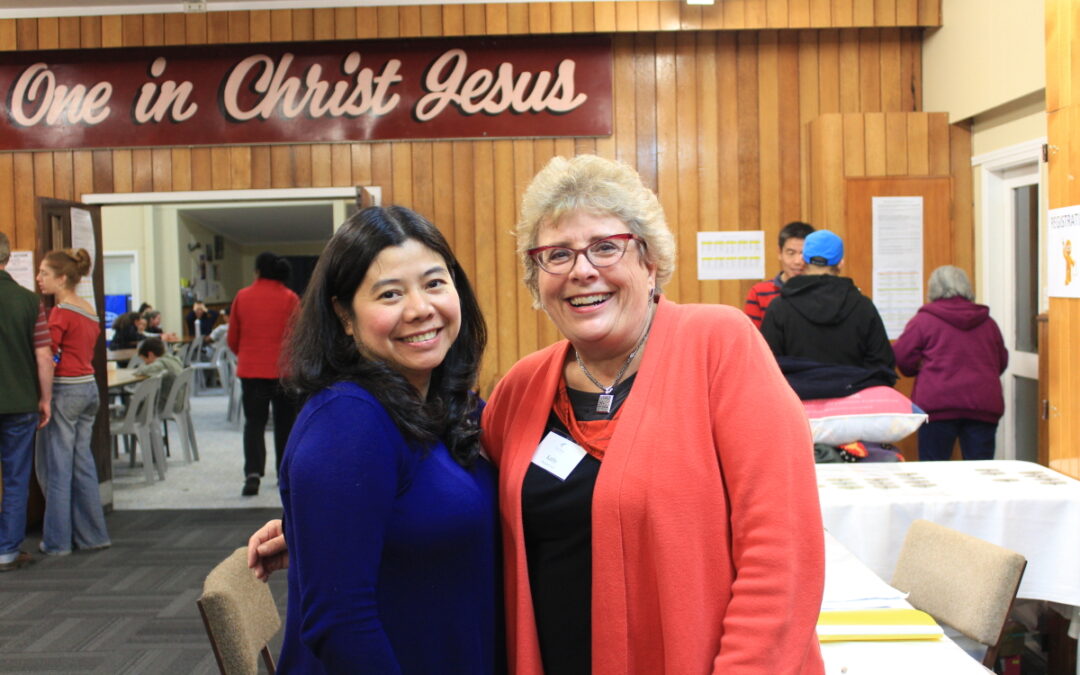
May 31, 2017 | Focolare Worldwide
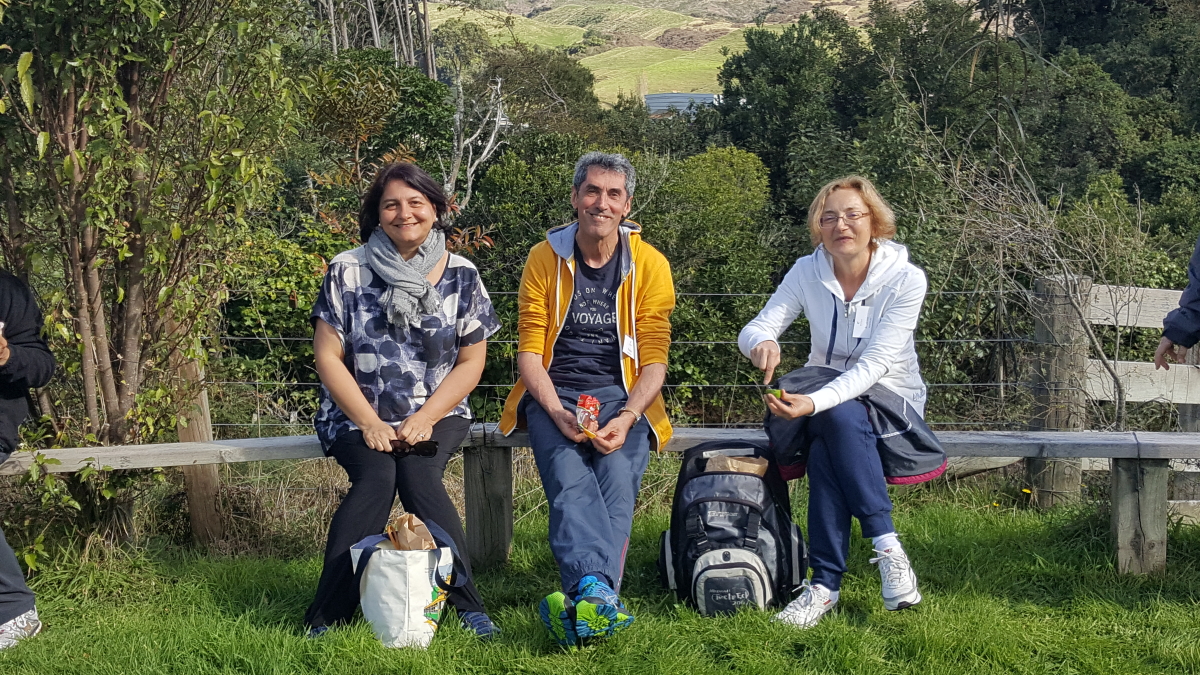 Lake Rotorua is the second biggest lake of the North Island of New Zealand, in the southern Pacific Ocean. Formed from the crater of a big volcano, active up to 240 thousand years ago, today it is a splendid canoe and kayak training ground. A tourist destination since the 19th century, here, as everywhere in the area, a strong smell of sulphur recalls the intense thermal activity which pushes boiling water out of the subsoil, forming pools of hot mud of the most incredible colours from apple green to yellow, cobalt lakes and a myriad of fumaroles. Nearby, the Lady Knox geyser erupts once a day venting out sprays of water and steam 20 metres high.
Lake Rotorua is the second biggest lake of the North Island of New Zealand, in the southern Pacific Ocean. Formed from the crater of a big volcano, active up to 240 thousand years ago, today it is a splendid canoe and kayak training ground. A tourist destination since the 19th century, here, as everywhere in the area, a strong smell of sulphur recalls the intense thermal activity which pushes boiling water out of the subsoil, forming pools of hot mud of the most incredible colours from apple green to yellow, cobalt lakes and a myriad of fumaroles. Nearby, the Lady Knox geyser erupts once a day venting out sprays of water and steam 20 metres high. 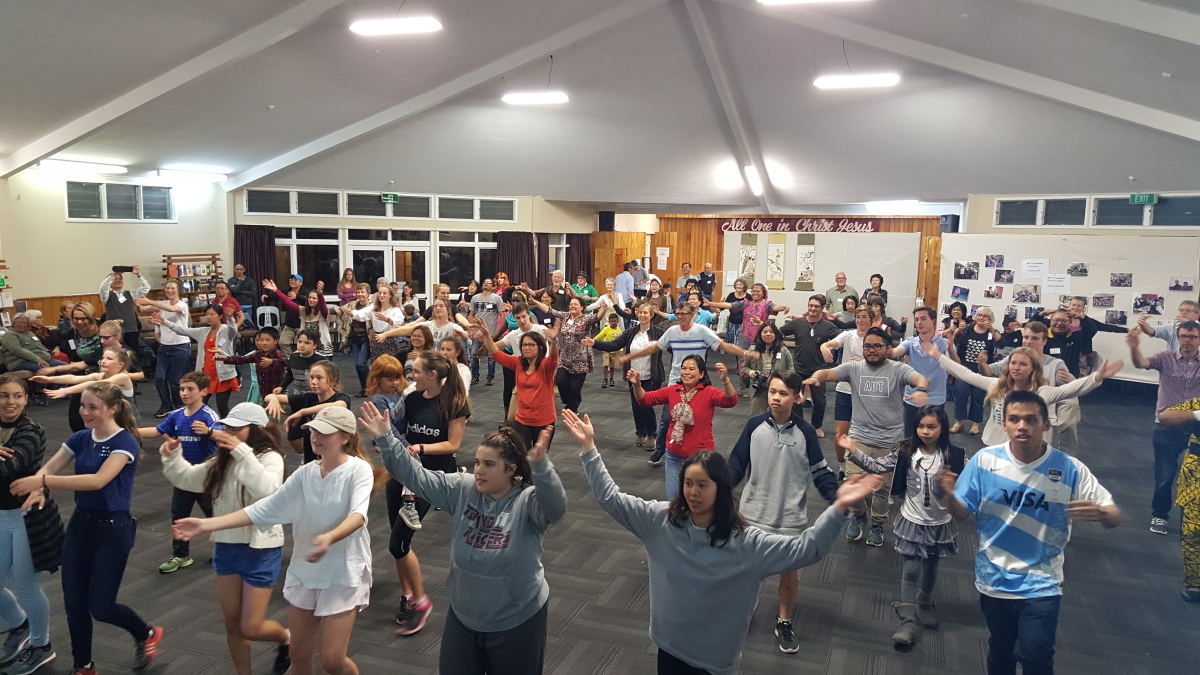 The same bubbly warmth was seen in the 170 participants of the Mariapolis hosted from 26 to 29 April 2017 in a camp situated right on the banks of the lake. Also families from the Philippines, India and Korea participated, including more than 50 teenagers and children, and some Italian visitors comprising of two married couples, Roberta & Stefano, and Beatrice & Franco. They wrote: “We departed from Sydney and after a flight of about four hours, we reached Auckland where we were joined by Yob and Bruno from Melbourne. After a journey of about four hours by car, we arrived in Rotorua. We spent three days there and we felt so enriched by the personal relationships created among all the families.
The same bubbly warmth was seen in the 170 participants of the Mariapolis hosted from 26 to 29 April 2017 in a camp situated right on the banks of the lake. Also families from the Philippines, India and Korea participated, including more than 50 teenagers and children, and some Italian visitors comprising of two married couples, Roberta & Stefano, and Beatrice & Franco. They wrote: “We departed from Sydney and after a flight of about four hours, we reached Auckland where we were joined by Yob and Bruno from Melbourne. After a journey of about four hours by car, we arrived in Rotorua. We spent three days there and we felt so enriched by the personal relationships created among all the families. 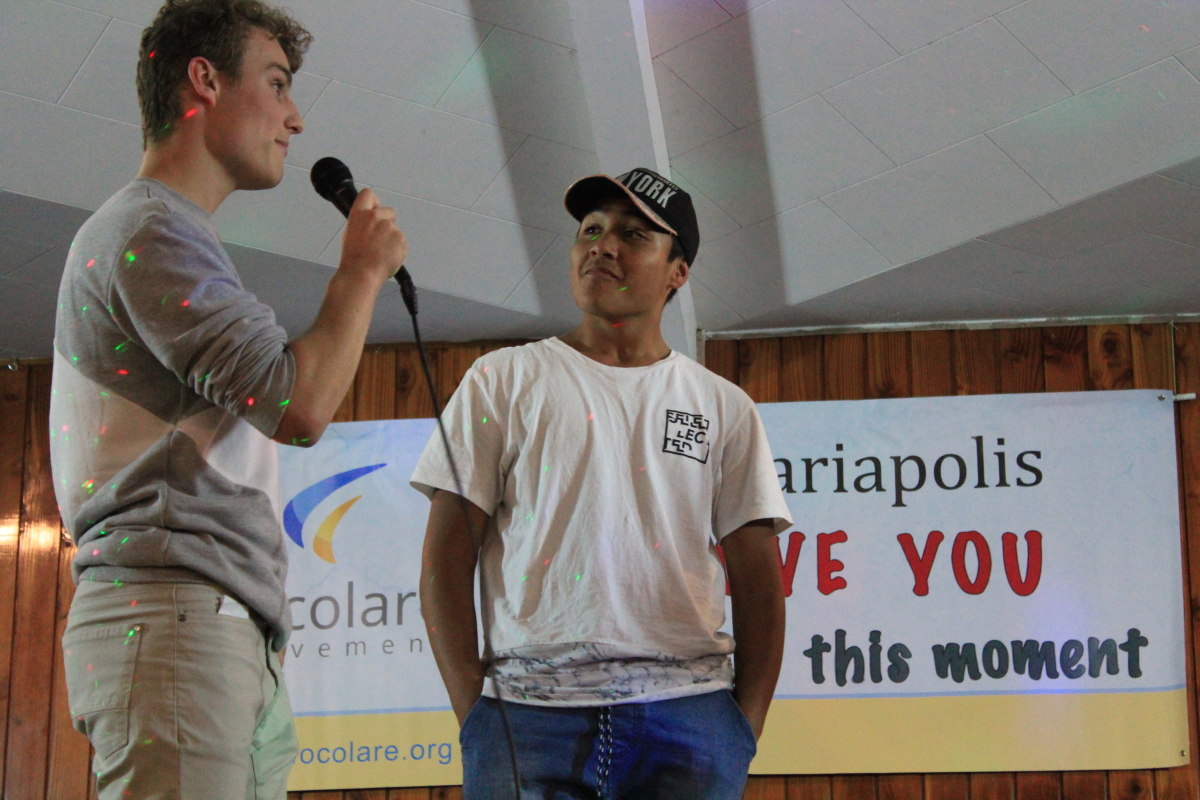 There were many experiences on the living the Gospel, a workshop on ecology, a much felt theme here, and one on the art of loving, some reflections of Chiara Lubich, and also on communication in the family and the education of children, not to mention the enchanting walks along the lake and in the forest.” It’s no wonder the North Island was chosen as one of the locations to shoot various scenes of Tolkien’s fantasy trilogy “The Lord of the Rings”. But the territory is particularly interesting also from an ethnological point of view. In fact the Island is inhabited by the biggest Maori communities of New Zealand. Up to 40 years ago the Maori language was spoken by a small number of people, but thanks to an integration program initiated by the government, today the culture and language of the Maori (about 20% of the population) have become an integral part of the nation. “During Mass,” Roberta and Stefano explained, “we recited some prayers in Maori, a people whose civilization and culture are well integrated.” After dinner, the Mariapolis included an evening program animated by children and young people which focused on an an interesting ecological theme regarding respect for creation and the environment.
There were many experiences on the living the Gospel, a workshop on ecology, a much felt theme here, and one on the art of loving, some reflections of Chiara Lubich, and also on communication in the family and the education of children, not to mention the enchanting walks along the lake and in the forest.” It’s no wonder the North Island was chosen as one of the locations to shoot various scenes of Tolkien’s fantasy trilogy “The Lord of the Rings”. But the territory is particularly interesting also from an ethnological point of view. In fact the Island is inhabited by the biggest Maori communities of New Zealand. Up to 40 years ago the Maori language was spoken by a small number of people, but thanks to an integration program initiated by the government, today the culture and language of the Maori (about 20% of the population) have become an integral part of the nation. “During Mass,” Roberta and Stefano explained, “we recited some prayers in Maori, a people whose civilization and culture are well integrated.” After dinner, the Mariapolis included an evening program animated by children and young people which focused on an an interesting ecological theme regarding respect for creation and the environment. 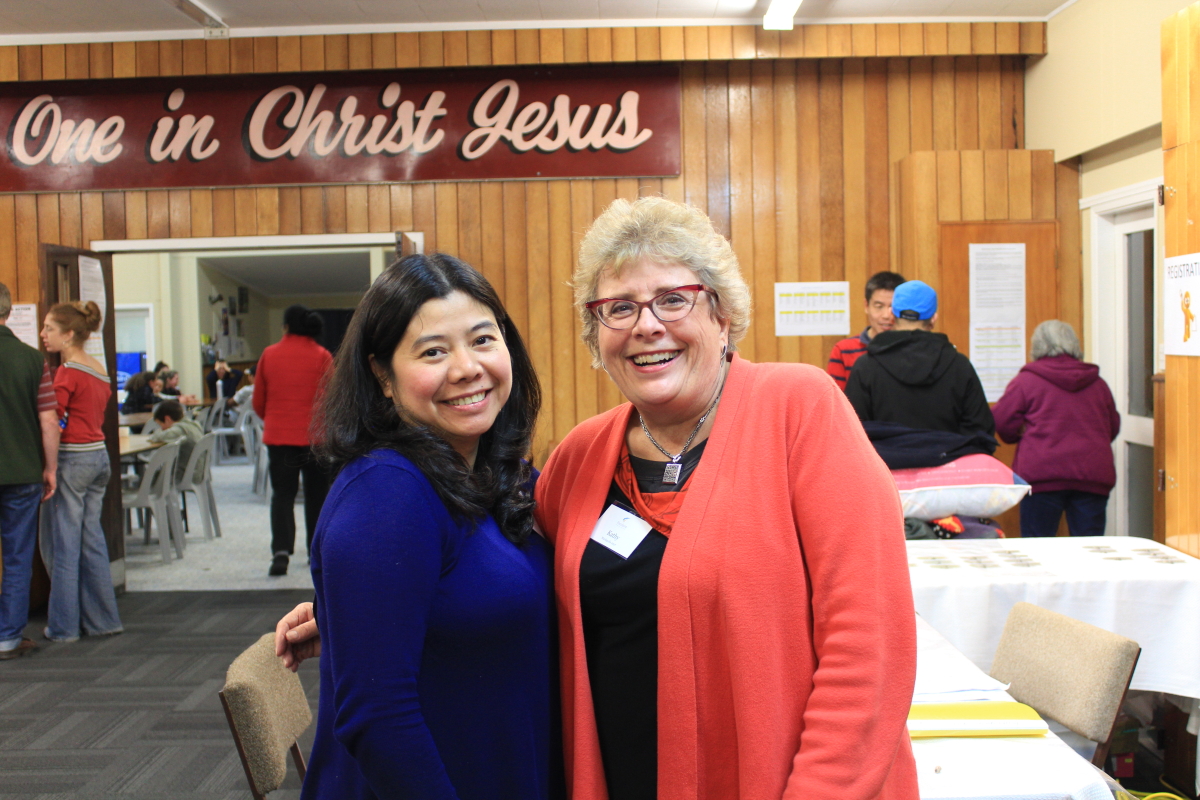 As in the simplicity of life in a big family, also in the Mariapolis everything was shared, like birthday celebrations and a wedding anniversary. “They were three very special days spent getting to know each other through personal chats, sharing joys and sufferings together, facing the challenges through the support of the community, and remaining faithful to the Gospel with coherence and constancy.” From here the “Mariapolis people” departed to return to their various places of origin, taking with them the energy and warmth of Rotorua.
As in the simplicity of life in a big family, also in the Mariapolis everything was shared, like birthday celebrations and a wedding anniversary. “They were three very special days spent getting to know each other through personal chats, sharing joys and sufferings together, facing the challenges through the support of the community, and remaining faithful to the Gospel with coherence and constancy.” From here the “Mariapolis people” departed to return to their various places of origin, taking with them the energy and warmth of Rotorua.
May 30, 2017 | Focolare Worldwide
May 30, 2017 | Non categorizzato
The Jewish year is marked by various anniversaries that recall the events that followed the creation and history of the Jews. Shavuot begins at sunset on Tuesday, May 30th and – outside Israel – ends at dusk on June 1st. It is a most important feast that recalls the gift of the Torah on Mount Sinai, the greatest gift given by God to the Jewish People more than three thousand years ago. The name “Shavuot” means “weeks” and refers to the weeks spent in waiting before the Sinai experience, beginning with Passover, leaving Egypt and the Lord’s miracles to free the children of Israel. Shavuot is the less significant of the three Jewish pilgrimages – Passover, Shavuot and Sukkot/Tabernacles – but more important than Hanukkah or Purim.
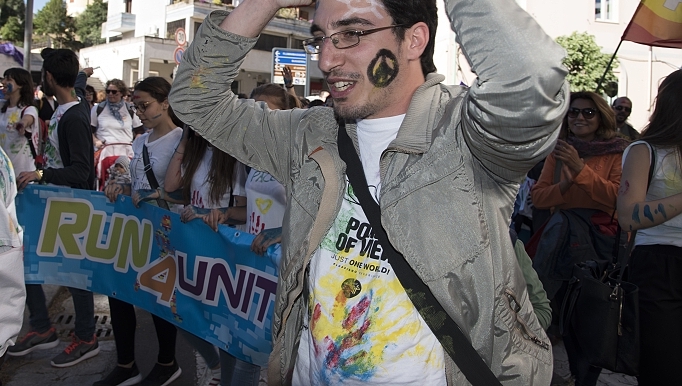
May 29, 2017 | Non categorizzato
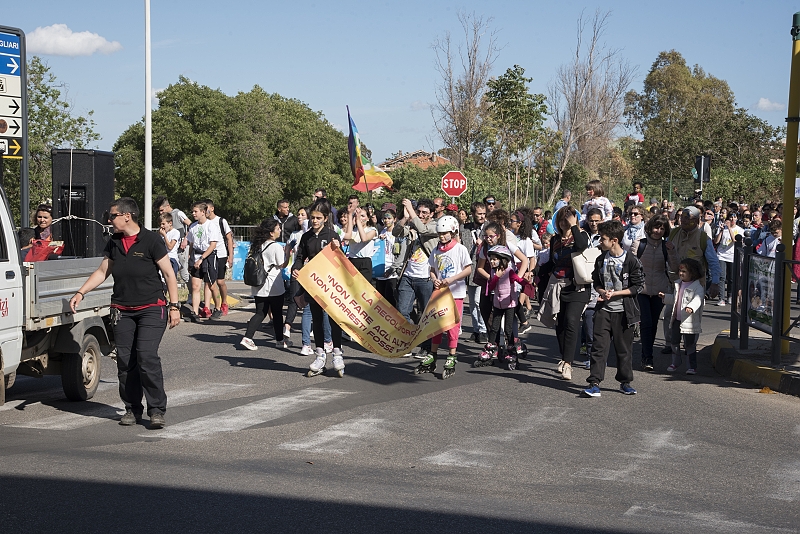 “Yesterday’s breeze brushed the hair and faces of both kids and adults, a colorful slice of humanity saying yes to life and no to the merchants of death. After years of existing in isolation, many groups and organizations came together to start again, in the hope of a visible fraternity.” So read the press release the day after the peace march from its promoters – Focolare, Amnesty International, Oxfam, Fondazione Banca Etica, Opal Brescia, Rete Italiana per il Disarmo – with the support of Comboni missionary Alex Zanotelli. The campaign against arms dealing between Italy and war-torn countries began on March 7, 2017 in Sardinia. The initiative was also part of the worldwide event Run4Unity, promoted by the Young for Unity. Run4Unity takes place each year on the first Sunday of May throughout the globe, during World Unity Week. Arnaldo Scarpa, part of the Focolare Movement in Iglesias and spokesperson for the RWM Conversion Committee together with Cinzia Guaita, explains how the project began. “For many years, there has been a factory in the Domusnovas and Iglesias area whose original work was to produce explosives for nearby mines. Unfortunately the mines were decommissioned, and the factory was converted using public money to produce military equipment. This was then bought and transformed by RWM, a German multinational that produces weapons that are then exported to Saudi Arabia. “So from our country, Italy, arms go out to the ‘pieces of World War III.’ The laws of both countries, Italy and Germany, are quite clear: Law 185/90 in fact prohibits the Italian government to sell arms to countries at war or who do not respect human rights. Yet there has been a continual increase (59%) in Italian exports to North African and Middle Eastern countries in particular. In 2016, RWM’s production rose to almost 22,000, a jump of 1,466%.” At Domusnovas, like in many areas of the island, the main challenge is jobs. “We understood,” Arnaldo continues, “that even our consciences could fall asleep, confused by the general silence, having become groggy from the tragedy of unemployment. Those of us who are committed to living fraternity certainly support the workers, yet we also support the children, teens and adults in Yemen who are killed by what is produced here. Our project has required that we be more courageous than we had ever been in our lives, for many reasons, but it’s already encouraging that there are many people with us who have different backgrounds and ideas.”
“Yesterday’s breeze brushed the hair and faces of both kids and adults, a colorful slice of humanity saying yes to life and no to the merchants of death. After years of existing in isolation, many groups and organizations came together to start again, in the hope of a visible fraternity.” So read the press release the day after the peace march from its promoters – Focolare, Amnesty International, Oxfam, Fondazione Banca Etica, Opal Brescia, Rete Italiana per il Disarmo – with the support of Comboni missionary Alex Zanotelli. The campaign against arms dealing between Italy and war-torn countries began on March 7, 2017 in Sardinia. The initiative was also part of the worldwide event Run4Unity, promoted by the Young for Unity. Run4Unity takes place each year on the first Sunday of May throughout the globe, during World Unity Week. Arnaldo Scarpa, part of the Focolare Movement in Iglesias and spokesperson for the RWM Conversion Committee together with Cinzia Guaita, explains how the project began. “For many years, there has been a factory in the Domusnovas and Iglesias area whose original work was to produce explosives for nearby mines. Unfortunately the mines were decommissioned, and the factory was converted using public money to produce military equipment. This was then bought and transformed by RWM, a German multinational that produces weapons that are then exported to Saudi Arabia. “So from our country, Italy, arms go out to the ‘pieces of World War III.’ The laws of both countries, Italy and Germany, are quite clear: Law 185/90 in fact prohibits the Italian government to sell arms to countries at war or who do not respect human rights. Yet there has been a continual increase (59%) in Italian exports to North African and Middle Eastern countries in particular. In 2016, RWM’s production rose to almost 22,000, a jump of 1,466%.” At Domusnovas, like in many areas of the island, the main challenge is jobs. “We understood,” Arnaldo continues, “that even our consciences could fall asleep, confused by the general silence, having become groggy from the tragedy of unemployment. Those of us who are committed to living fraternity certainly support the workers, yet we also support the children, teens and adults in Yemen who are killed by what is produced here. Our project has required that we be more courageous than we had ever been in our lives, for many reasons, but it’s already encouraging that there are many people with us who have different backgrounds and ideas.”  A positive outcome from the project has been the establishment of the RWM Conversion Committee, to keep the focus on the issue and block the extension of the factory. The area there has natural, environmental and archeological value. There is also the ethical dilemma: some have chosen to not accept work at this factory, even though they are unemployed, while others working inside experience serious crises of conscience. The next step is therefore to lay the foundations for common work on the project, to convert the factory and develop the area differently. Important contacts with entrepreneurs, architects, academics, legal experts, institutions, associations and employee representatives have begun. What is above all essential is that there be a specific political choice at all levels of government. To sign the petition for the Italian president, click here.
A positive outcome from the project has been the establishment of the RWM Conversion Committee, to keep the focus on the issue and block the extension of the factory. The area there has natural, environmental and archeological value. There is also the ethical dilemma: some have chosen to not accept work at this factory, even though they are unemployed, while others working inside experience serious crises of conscience. The next step is therefore to lay the foundations for common work on the project, to convert the factory and develop the area differently. Important contacts with entrepreneurs, architects, academics, legal experts, institutions, associations and employee representatives have begun. What is above all essential is that there be a specific political choice at all levels of government. To sign the petition for the Italian president, click here.
May 29, 2017 | Non categorizzato, Word of
for ages 4-8 | for ages 9-17 | MP3 Audio | Print
In the days following Jesus’ crucifixion, his disciples stayed indoors, fearful and confused. They had followed him along the roads of Palestine, where he proclaimed God’s tender love for each person. Jesus had been sent by the Father, not only to give witness to this love, but also to open for humanity the path to God. He revealed a God who is Trinity, who is a communion of love in himself, and who wants to gather all into this embrace. During the time of his mission, many people saw, heard and experienced Jesus’ good works, his words of welcome, forgiveness and hope … But then came his condemnation and crucifixion. This is the context in St John’s Gospel, where we are told how after he rose again on the third day Jesus appeared to his disciples and sent them out to continue his mission. “As the Father has sent me, so I send you.” It is as if he said, “Do you remember how I shared my life with you? How I satisfied your hunger and thirst for justice and for peace? How I healed the hearts and bodies of so many marginalized people, the outcasts of society? How I defended the dignity of the poor, widows and foreigners? Now you must continue: proclaim the Gospel you have received to everyone. Tell them that God wishes to be met and known by all. Tell them that you are all brothers and sisters.” Each person, created in the image and likeness of God who is love, longs for this encounter. All cultures and societies strive to build relationships of community. But how challenging it is, how many difficulties and obstacles there are to reaching this goal! Every day this deep aspiration runs up against our weakness, our narrowmindedness and fears, our mistrust and judgement of each other. Yet the Lord, with great trust, goes on saying to us as he did in the past: “As the Father has sent me, so I send you.” How can we respond to such a bold invitation? Doesn’t the mission of creating fraternity in a fractured world seem like fighting a losing battle? On our own we will never make it. That is why Jesus gave us the Holy Spirit, as a special gift who sustains our efforts to love each person, even if that person is an enemy. In a Word of Life meditation from 1994, Focolare founder Chiara Lubich wrote, “The Holy Spirit, given to us through baptism … is the spirit of love and unity, who made all believers one in the risen Lord and with one another, overcoming every difference of race, culture and social class … Our selfishness builds barriers of isolation and excludes those who are different from us … So, by listening to the Holy Spirit’s voice, let us try to grow in this fellowship … overcoming the seeds of division carried within us.” With the Holy Spirit’s help this month, every time we interact with others, no matter what it is, let us too remember and practice the words of love: welcome, listen, empathize, dialogue, encourage, include, care, forgive, appreciate someone … In this way, we accept Jesus’ invitation to continue his mission, and we will be channels of the life he gave us. This was the experience of a group of Buddhist monks visiting the international town of Loppiano, Italy, where its 800 inhabitants try to live the Gospel faithfully. They were deeply touched by experiencing Gospel love for the first time. In 1998, Chiara remembered how one of them said: “I put my dusty shoes outside the door; in the morning I found them clean. I put my dirty clothes outside the door; in the morning, I found them washed and ironed. Others knew that I was cold, because I was from Southeast Asia; they raised the temperature and brought me blankets … One day, I asked, ‘Why are you doing this?’ ‘Because we love you, because we love you very much,’ was the answer.’ This experience paved the way for genuine dialogue between Buddhists and Christians. Letizia Magri _____________________________________________ Each month the Focolare offers a Scripture passage as a guide and inspiration for daily living. Focolare’s founder, Chiara Lubich (1920–2008), wrote these commentaries for many years. Now an international commission continues this tradition, faithful to her spirituality of unity. Letizia Magri, an expert in marriage and family from the John Paul II Institute in Rome, is head of this commission and part of the Focolare’s center for the family. This Word of Life is translated into 96 different languages and reaches several million people worldwide through the media. This monthly leaflet is also a supplement to Living City, the Focolare magazine (livingcitymagazine.com). For information and to subscribe to this leaflet or to the magazine, write to: Living City, 202 Comforter Blvd, Hyde Park, NY 12538; tel: 845-229-0496; e-mail: livingcity@livingcitymagazine.com. Visit focolare.org (international) or focolare.us (U.S.). © 2017 by Living City of the Focolare Movement, Inc. Read more: Lubich, Chiara. “The Holy Spirit, the Unknown God,” Essential Writings, New City Press: Hyde Park, New York, 2007, pp. 143–149. Lubich, Chiara. “God is love,” The Art of Loving. New City Press: Hyde Park, New York, 2010, pp. 25–31.
May 28, 2017 | Non categorizzato
“As they looked at him, He was lifted upward, and a cloud hid Him from their eyes” (Acts of the Apostles). The event known as The Ascension, that is, the Transfiguration and passage of Jesus into the kingdom of glory, concludes the visible permanence of God among men. It is a prelude to Pentecost and marks the beginning of Church history. The episode, described by the Gospels of Mark and Luke, and in the Acts of the Apostles, is a very ancient celebration documented since the 4th century. For the Catholic Church and the Protestant Churches, The Ascension is celebrated 40 days after Easter (in the Gregorian calendar, the feast fell on Thursday 25 May). In the Orthodox Church, it is one of the 12 main feasts, and this year it coincides with the Catholic feast.
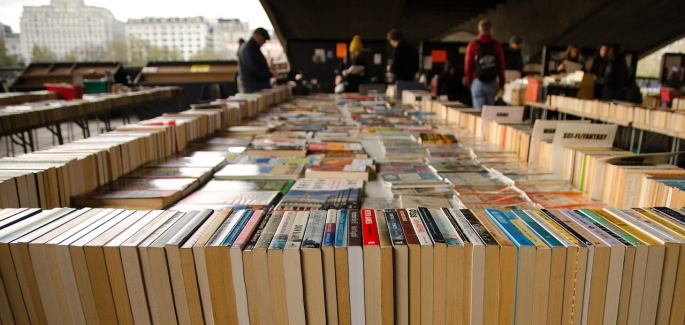
May 28, 2017 | Non categorizzato
Tax payments “We were expecting our third son. The little money we had saved up suddenly disappeared because of the unfavorable bank exchange rates, and the banks were beginning to stop lending. One day, out of the blue, we were informed that we had to pay a huge amount of taxes. Where would we find the money when we were barely surviving on what little money we had? We entrusted ourselves to God, to the Father who never abandons his children. Then we went to ask for help from the city hall and … surprise! We were the only ones who were given the opportunity of receiving financial assistance.” X. A.- Croatia Sales representative  “I work as a book representative. At my first exhibition I didn’t sell anything. The second time was the same. The third time was even worse: there was no room in the meeting hall and I had to content myself with a bad location downstairs, far from where the people gathered during breaks. There was no lift, so I had to transport the boxes in arms, sweating because of the incredible heat. Meanwhile I caught myself saying: ‘Who’s making you do this?’ Passing a chapel, I stopped in to vent with Jesus, who seemed to say to me from the tabernacle: ‘What are you doing?’ ‘God’s will,’ was my answer. ‘Well, relax then and I’ll take care of it now.’ I had to use chairs at the exhibit because there were no tables. A priest walked by and noticed a volume of a volume from a set of encyclopedias on the Saints. He exclaimed: ‘It’s not possible! I’ve been looking for that for years!’ He bought it and, after that, I didn’t stop selling.” Marta – Italy Be like a father “My father left my mother before I was born. I suffered because of his absence and never forgave him for going away. When I was around 17 years old I went looking for him, hoping to renew a relationship that never really existed. Unfortunately I was met by indifference, and his relationship with his wife wasn’t going well either. During that period I got to know young people who were living the Gospel and, through them, I got to know God better. Later, during my university studies, I began to work on a social project that put me in contact with abandoned children. The pain I had gone through had made me more sensible to the pain of others in whom I tried to love Jesus. Little by little, I became a reference point for many of those little ones, to the point that they started calling me Papa. As for the relationship with my father, it’s still a challenge: I try to see him with new eyes every time, always taking the first step.” J. L. – Brazil
“I work as a book representative. At my first exhibition I didn’t sell anything. The second time was the same. The third time was even worse: there was no room in the meeting hall and I had to content myself with a bad location downstairs, far from where the people gathered during breaks. There was no lift, so I had to transport the boxes in arms, sweating because of the incredible heat. Meanwhile I caught myself saying: ‘Who’s making you do this?’ Passing a chapel, I stopped in to vent with Jesus, who seemed to say to me from the tabernacle: ‘What are you doing?’ ‘God’s will,’ was my answer. ‘Well, relax then and I’ll take care of it now.’ I had to use chairs at the exhibit because there were no tables. A priest walked by and noticed a volume of a volume from a set of encyclopedias on the Saints. He exclaimed: ‘It’s not possible! I’ve been looking for that for years!’ He bought it and, after that, I didn’t stop selling.” Marta – Italy Be like a father “My father left my mother before I was born. I suffered because of his absence and never forgave him for going away. When I was around 17 years old I went looking for him, hoping to renew a relationship that never really existed. Unfortunately I was met by indifference, and his relationship with his wife wasn’t going well either. During that period I got to know young people who were living the Gospel and, through them, I got to know God better. Later, during my university studies, I began to work on a social project that put me in contact with abandoned children. The pain I had gone through had made me more sensible to the pain of others in whom I tried to love Jesus. Little by little, I became a reference point for many of those little ones, to the point that they started calling me Papa. As for the relationship with my father, it’s still a challenge: I try to see him with new eyes every time, always taking the first step.” J. L. – Brazil
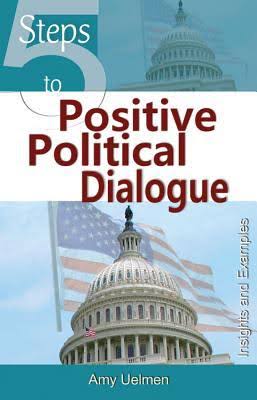
May 27, 2017 | Non categorizzato
 Over the course of the past year, ideological tension that had been simmering for decades broke out into the open. In the months leading up to the November election, people from every position on the political spectrum expressed deep concerns about the direction the country was heading. Throughout the States, strong and contrasting emotions generated a general sense of unease and division. Such feelings affected relationships in local Focolare communities as well. Many felt that the presidential election campaign forced them to make impossibly difficult choices. Conversations became heated and difficult. Anticipating this possibility, throughout 2015 the Focolare Movement had sponsored workshops based on the New City Press book, Five Steps to Positive Political Dialogue. During these workshops, participants learned and practiced the necessary skills for positive dialogue across political differences. The “five steps” include:
Over the course of the past year, ideological tension that had been simmering for decades broke out into the open. In the months leading up to the November election, people from every position on the political spectrum expressed deep concerns about the direction the country was heading. Throughout the States, strong and contrasting emotions generated a general sense of unease and division. Such feelings affected relationships in local Focolare communities as well. Many felt that the presidential election campaign forced them to make impossibly difficult choices. Conversations became heated and difficult. Anticipating this possibility, throughout 2015 the Focolare Movement had sponsored workshops based on the New City Press book, Five Steps to Positive Political Dialogue. During these workshops, participants learned and practiced the necessary skills for positive dialogue across political differences. The “five steps” include:
- Believe that a Positive Vision is Possible
- Practice Communication Skills Based on Love
- Understand Where There Is Room for Compromise—and Not
- Recognize Suffering as a Springboard for Love
- Build Relationships with Positive Action.
John Chesser (Iowa): “People paired off and they chose to discuss a topic on which they strongly disagreed. The twist was first one person shared their view and then the other person had to repeat their view back before sharing his or her own view. The results were really interesting. The exercise allowed people to gain an appreciation not just for the other person’s point of view but to reflect and reconsider their own view. Of course we didn’t solve the world’s problems in the workshops but we did find new hope and new tools that helped us to see that maybe it’s possible for us to solve these problems with dialogue.” As the November 2016 election drew near, the tension between those who held opposing opinions seemed to increase by the day, and conflict became more and more pronounced in personal life, in workplaces, and in social media communications. Marilyn Boesch (Maryland): “I was very agitated. And I remember examining my conscience, affirming my desire to work for unity, to be a person that builds bridges, not a person resigned to these divisions.” Marijo Dulay (New York): “After a few mistakes I learned to be more sensitive in the comments that I posted on Facebook so as not to hurt the people who differed from my perspective.” Simona Lucchi (Georgia): “I realized that all my preaching and all my yelling wasn’t doing any good because either way it wasn’t changing what people believed in. So I took the stance of sitting back in order to listen. When I stopped talking to actually listen, I found that I had more in common than I thought with the people I disagreed with.” 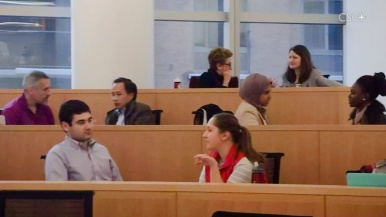 Amid the confusion, the positive proposals for dialogue presented in academic environments were well received. For example, at Fordham Law School, in the heart of Manhattan, New York, Ana Renata Dias, the Director of the Institute on Religion, Law & Lawyer’s Work, offered a workshop that aimed to promote open and constructive cultural dialogue by honing the participants’ listening skills. “Several of the participants said they had come to the workshop because they wanted to understand if dialogue is really possible among such polarization.” After a listening to a presentation with practical suggestions for approaching these difficult conversations, participants rolled up their sleeves and got to work, discovering together that even those who were most impassioned could find ways to exchange contrasting views without the conversation degenerating into a fight. Even those who said they were less than convinced by the workshop felt more hopeful. Two months later, following the inauguration of the new president, cultural tensions became more and more pronounced. Students at Georgetown Law School in Washington, DC were searching for ways to navigate these tumultuous waters. Amy Uelmen, author of the book, Five Steps to Positive Political Dialogue: Insights and Examples, proposed to her class a way forward.
Amid the confusion, the positive proposals for dialogue presented in academic environments were well received. For example, at Fordham Law School, in the heart of Manhattan, New York, Ana Renata Dias, the Director of the Institute on Religion, Law & Lawyer’s Work, offered a workshop that aimed to promote open and constructive cultural dialogue by honing the participants’ listening skills. “Several of the participants said they had come to the workshop because they wanted to understand if dialogue is really possible among such polarization.” After a listening to a presentation with practical suggestions for approaching these difficult conversations, participants rolled up their sleeves and got to work, discovering together that even those who were most impassioned could find ways to exchange contrasting views without the conversation degenerating into a fight. Even those who said they were less than convinced by the workshop felt more hopeful. Two months later, following the inauguration of the new president, cultural tensions became more and more pronounced. Students at Georgetown Law School in Washington, DC were searching for ways to navigate these tumultuous waters. Amy Uelmen, author of the book, Five Steps to Positive Political Dialogue: Insights and Examples, proposed to her class a way forward. 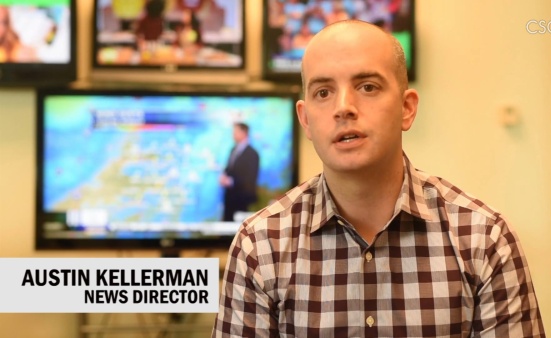 “We realized that often in any conversation there will be caricatures, mischaracterizations, misunderstandings, and information that is simply wrong. We agreed all together to be open to correction and to working out our difficulties when different perspectives collide.” In Arkansas, a traditionally conservative state, some were enthusiastic about the election of the new president while others were angry. Austin Kellerman leads a newsroom in Little Rock, the state’s capital. Together, he and his colleagues decided to launch an appeal for unity. “Our team of journalists felt like we had the chance to be a voice for our city, so in one of the more heated moments one of our more experienced reporters put together a commentary calling for unity and an open mind: he said, ‘There is no them, no us. There is We. We the people.’” “Obviously, this alone will not fix things or change anybody’s view,” Kellerman continues, “but hopefully it gives people permission to think beyond their singular view. We are going to try to keep the dialogue going and staying faithful to representing all sides and voices.” Source: New City Press (New York)
“We realized that often in any conversation there will be caricatures, mischaracterizations, misunderstandings, and information that is simply wrong. We agreed all together to be open to correction and to working out our difficulties when different perspectives collide.” In Arkansas, a traditionally conservative state, some were enthusiastic about the election of the new president while others were angry. Austin Kellerman leads a newsroom in Little Rock, the state’s capital. Together, he and his colleagues decided to launch an appeal for unity. “Our team of journalists felt like we had the chance to be a voice for our city, so in one of the more heated moments one of our more experienced reporters put together a commentary calling for unity and an open mind: he said, ‘There is no them, no us. There is We. We the people.’” “Obviously, this alone will not fix things or change anybody’s view,” Kellerman continues, “but hopefully it gives people permission to think beyond their singular view. We are going to try to keep the dialogue going and staying faithful to representing all sides and voices.” Source: New City Press (New York)
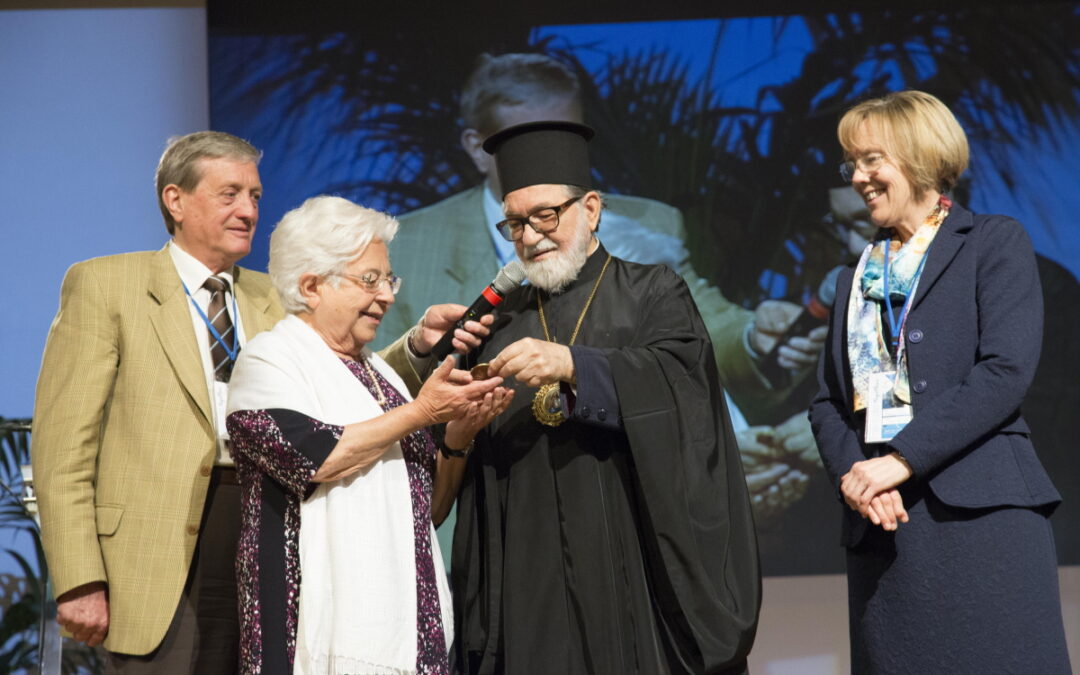
May 26, 2017 | Non categorizzato
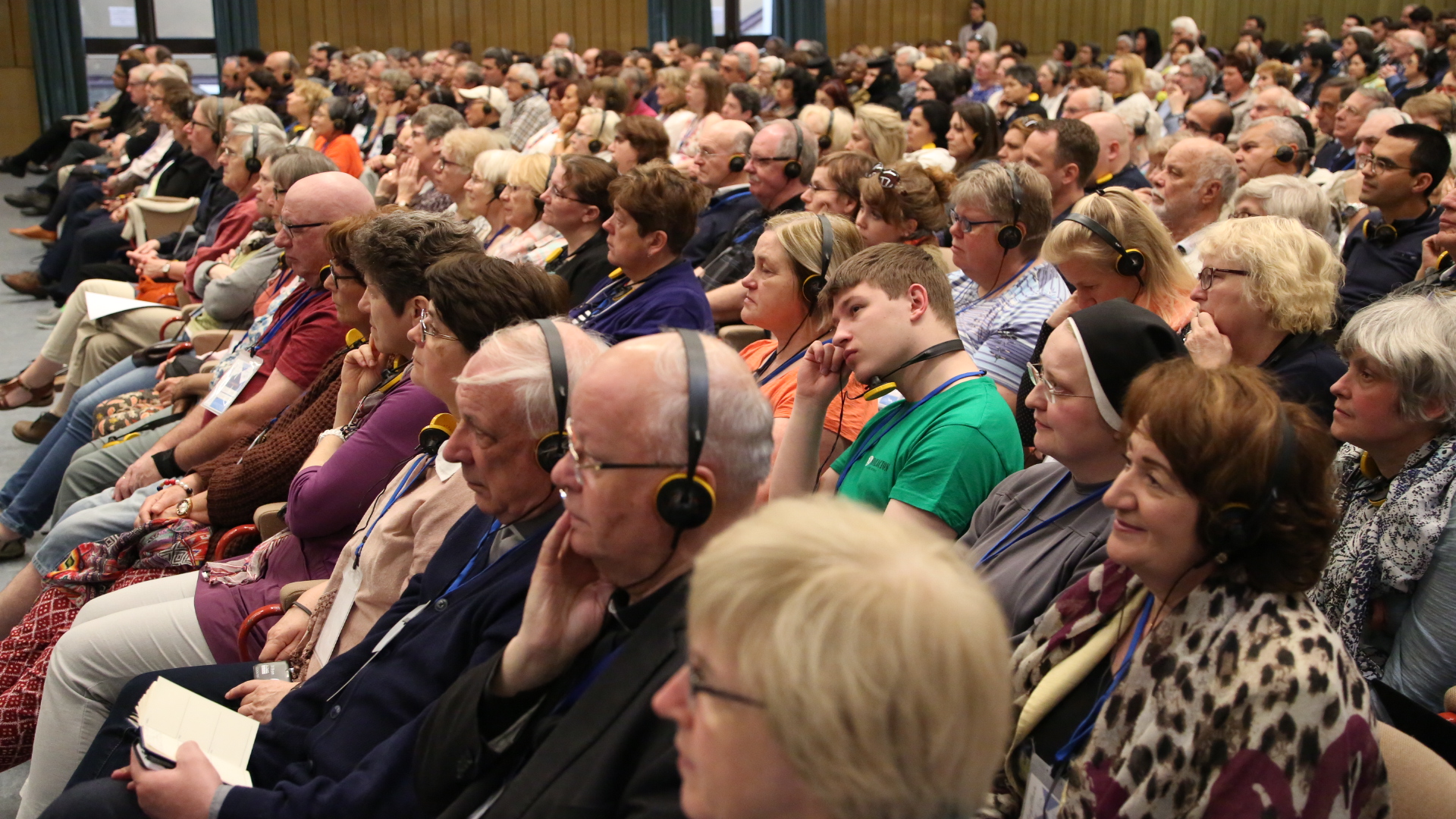
© CSC Audiovisivi – Caris Mendes
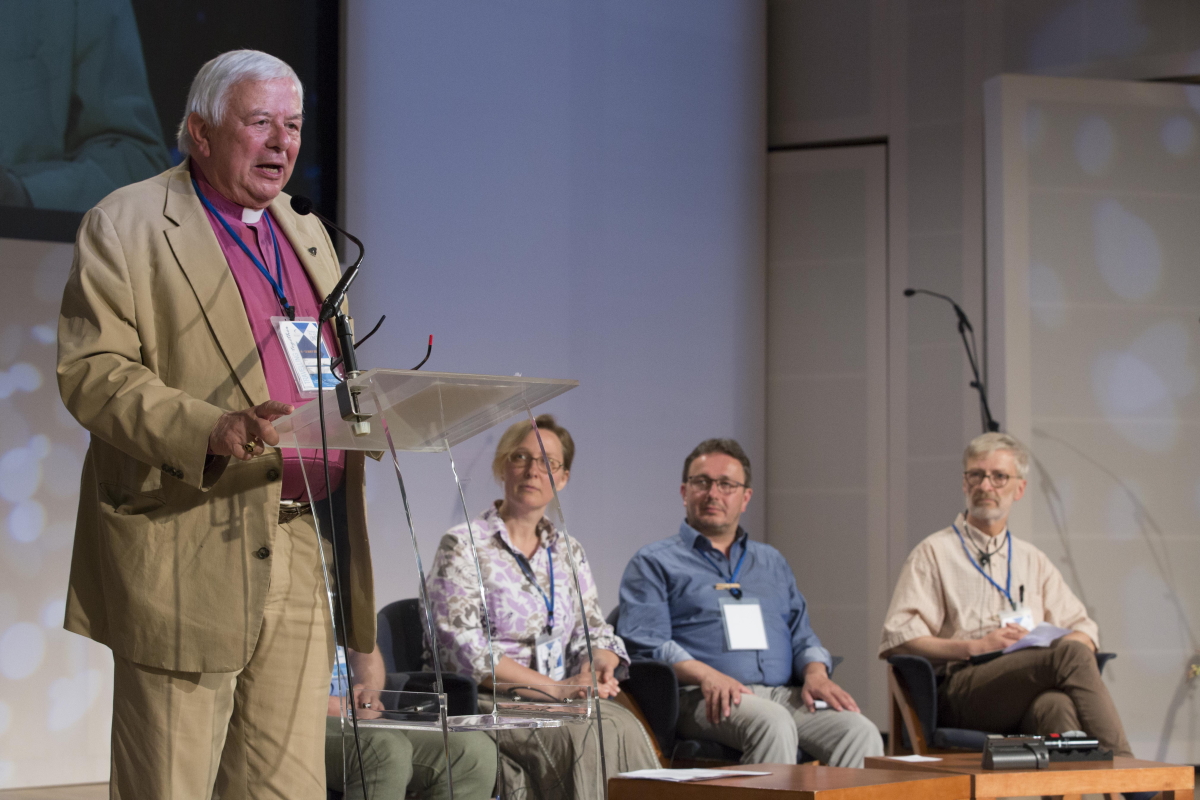
Emeritus Bishop Christian Krause,
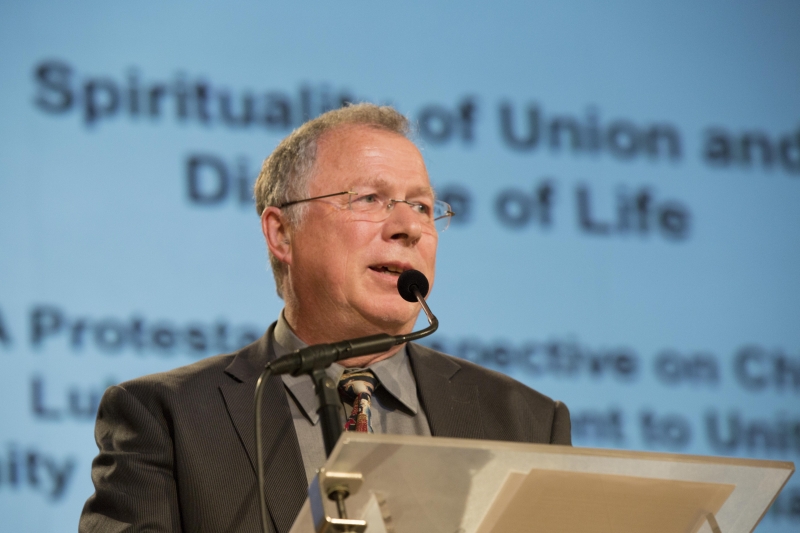
Rev Dr Martin Robra (WCC)
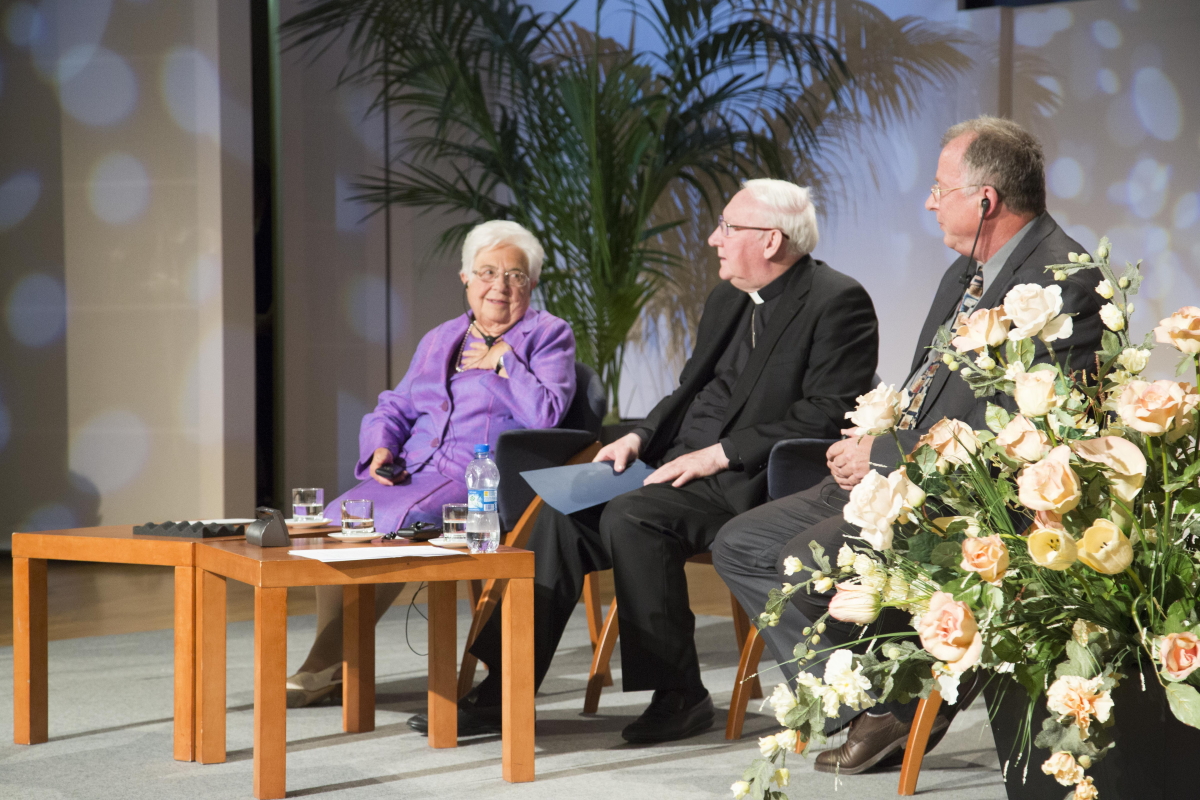
Maria Voce with Bishop Brian Farrel
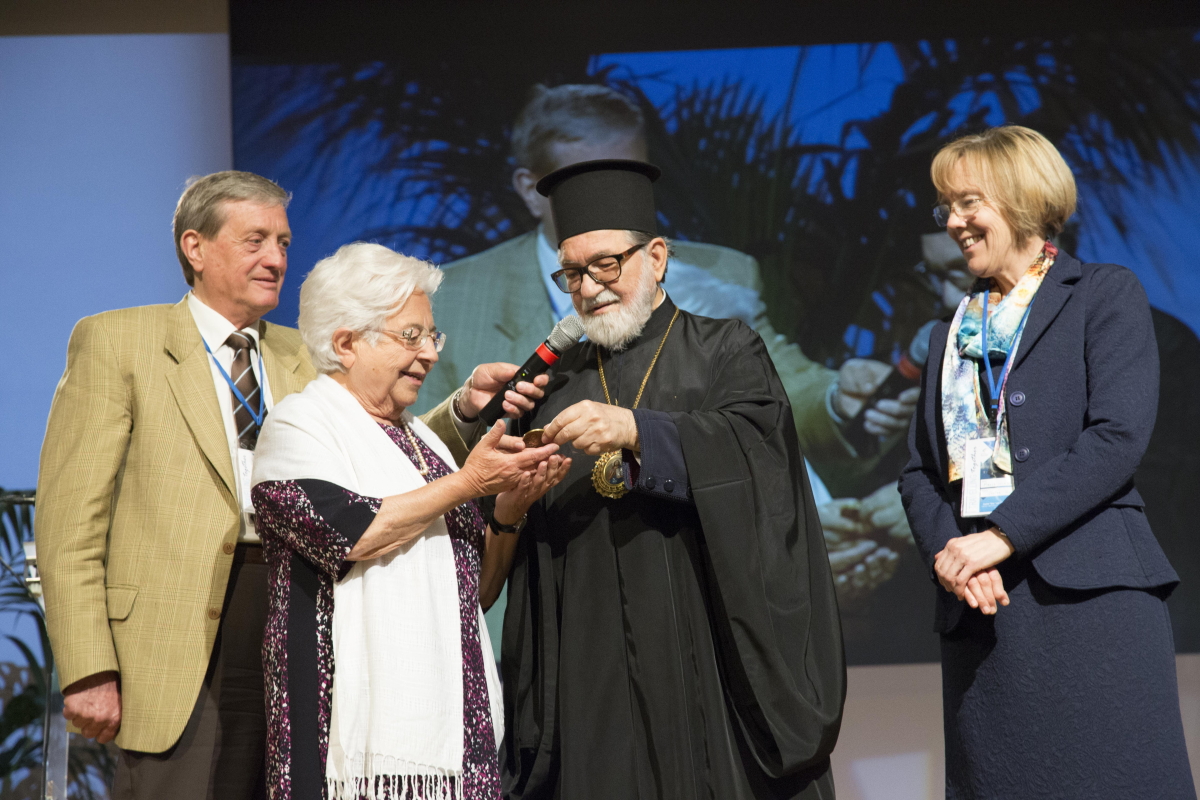
The Metropolitan Gennadios Zervos presented an “Historic Medal” to the president of the Focolare
May 26, 2017 | Non categorizzato
For Muslims, May 26 signals the start of the Sacred Month of Ramadan. It is the ninth month of the Islamic year and the most important. It is a sacred time during which the revelation of the Koran to the Prophet Muhammad is commemorated and through fasting (the fourth pillar of the Muslim faith), a special purification is sought. Ramadan is a month of total fasting from dawn to dusk.







 Beyond all this, what counts most is the atmosphere that was created. The head of the Dharma Institute of Liberal Arts, Rev. Huimin Bikshu, confides that this is the first meeting of its kind at the university. Besides those signed up as participants, there are also monks and nuns from the Dharma Drum Monastery and students of the college. The day is marked by a great spiritual and existential commitment. The dialogue allows us to emphasize what we have in common, despite there being great differences between the traditions. There are experiences that put up bridges of dialogue that bring hope, as Rev. Nisyoka from the Japanese Tendai-Shu affirms. The conclusion of the work happens in the afternoon, organized by Providence University, an academic institution located at Thien Chu. There we talk about economics, the environment and interreligious dialogue. The results from this week of common experience, reflection and spiritual friendship are difficult to convey. They are part of each of the participants’ souls. Perhaps what was said by a young Japanese monk, the abbot of a temple in his country, explains the depth of the experience best. “Rarely in life have I perceived the intimate presence of God-Buddha as I have in these days at our symposium in Taiwan… I have studied in Christian schools and I always thought that Christianity was a religion that happens in church (rites and religious services). During the symposium in Taiwan I understood that Christianity, instead, is the religion of the presence of God among people.” By Roberto Catalano
Beyond all this, what counts most is the atmosphere that was created. The head of the Dharma Institute of Liberal Arts, Rev. Huimin Bikshu, confides that this is the first meeting of its kind at the university. Besides those signed up as participants, there are also monks and nuns from the Dharma Drum Monastery and students of the college. The day is marked by a great spiritual and existential commitment. The dialogue allows us to emphasize what we have in common, despite there being great differences between the traditions. There are experiences that put up bridges of dialogue that bring hope, as Rev. Nisyoka from the Japanese Tendai-Shu affirms. The conclusion of the work happens in the afternoon, organized by Providence University, an academic institution located at Thien Chu. There we talk about economics, the environment and interreligious dialogue. The results from this week of common experience, reflection and spiritual friendship are difficult to convey. They are part of each of the participants’ souls. Perhaps what was said by a young Japanese monk, the abbot of a temple in his country, explains the depth of the experience best. “Rarely in life have I perceived the intimate presence of God-Buddha as I have in these days at our symposium in Taiwan… I have studied in Christian schools and I always thought that Christianity was a religion that happens in church (rites and religious services). During the symposium in Taiwan I understood that Christianity, instead, is the religion of the presence of God among people.” By Roberto Catalano 










 My path began on the last day of the Rwandan calendar, the day in which we remember the massacre that happened in 1994. I know that
My path began on the last day of the Rwandan calendar, the day in which we remember the massacre that happened in 1994. I know that 









 Belgrade (“the white city”) in Central Serbia, one of Europe’s oldest cities,lies at the confluence of the Sava and Danube Rivers. “Gateway to the Balkans” or “Gateway to Europe,” reborn after a recent past of wars, it is today an avant-garde capital, where new ideas, novelties and vitality brew in the fields of art, economy, architecture. and also sports. Last 12-13 May, on the occasion of the 20th anniversary of its foundation, the College of Sports and Health, a certified institution with 600 students, organised an international conference entitled “Sports, recreation, health.”
Belgrade (“the white city”) in Central Serbia, one of Europe’s oldest cities,lies at the confluence of the Sava and Danube Rivers. “Gateway to the Balkans” or “Gateway to Europe,” reborn after a recent past of wars, it is today an avant-garde capital, where new ideas, novelties and vitality brew in the fields of art, economy, architecture. and also sports. Last 12-13 May, on the occasion of the 20th anniversary of its foundation, the College of Sports and Health, a certified institution with 600 students, organised an international conference entitled “Sports, recreation, health.” 
 The then Archbishop of Trento, Msgr. Carlo de Ferrari, had the task of first assessing and approving the Focolare Movement at the diocesan level. The title of the recent book published by Città Nuova Publishing House “Qui c’è il dito di Dio” (Here Is the Hand of God), recalls the expression he used in reference to the evangelical experience that Chiara Lubich and her first companions were living. The context is 1951, a period when not everyone in the Church thought the same as the archbishop of Trent. Indeed, there were many ecclesiastical perplexities and suspicions, in pre-Vatican Council times, with regards to this young lay woman, who had as her followers priests, men and women religious, lay men and women, young people and not so young. Prudence suggested distancing her and perhaps replacing her with a priest. It was through these circumstances that Chiara’s decisive relationship with her bishop began. The book opens with a letter from Chiara Lubich, written from Rome, to Archbishop Carlo de Ferrari. The letter is dated January 5, 1951 and the period of trial that the nascent Movement and Chiara herself were experiencing shines through every line of the text.
The then Archbishop of Trento, Msgr. Carlo de Ferrari, had the task of first assessing and approving the Focolare Movement at the diocesan level. The title of the recent book published by Città Nuova Publishing House “Qui c’è il dito di Dio” (Here Is the Hand of God), recalls the expression he used in reference to the evangelical experience that Chiara Lubich and her first companions were living. The context is 1951, a period when not everyone in the Church thought the same as the archbishop of Trent. Indeed, there were many ecclesiastical perplexities and suspicions, in pre-Vatican Council times, with regards to this young lay woman, who had as her followers priests, men and women religious, lay men and women, young people and not so young. Prudence suggested distancing her and perhaps replacing her with a priest. It was through these circumstances that Chiara’s decisive relationship with her bishop began. The book opens with a letter from Chiara Lubich, written from Rome, to Archbishop Carlo de Ferrari. The letter is dated January 5, 1951 and the period of trial that the nascent Movement and Chiara herself were experiencing shines through every line of the text. 





 The theme on education and training outside the school environment, which is a life-learning process focusing on brotherhood as its methodology, indicated a pathway which consists in going out towards the peripheries with a programme centered on values. The experiences on the relationship between education and technology were presented as the great opportunity to achieve fraternity, setting the relationship between students and that with the teachers on the same level, and as the possibility to bring out the best in the others, and learn from everyone. Also many educational practices that had produced excellent results were presented, and concerned the potential of body language and the golden rule in the field of sports as a way of building bridges in such important fields.
The theme on education and training outside the school environment, which is a life-learning process focusing on brotherhood as its methodology, indicated a pathway which consists in going out towards the peripheries with a programme centered on values. The experiences on the relationship between education and technology were presented as the great opportunity to achieve fraternity, setting the relationship between students and that with the teachers on the same level, and as the possibility to bring out the best in the others, and learn from everyone. Also many educational practices that had produced excellent results were presented, and concerned the potential of body language and the golden rule in the field of sports as a way of building bridges in such important fields. 
















 Amid the confusion, the positive proposals for dialogue presented in academic environments were well received. For example, at Fordham Law School, in the heart of Manhattan, New York, Ana Renata Dias, the Director of the Institute on Religion, Law & Lawyer’s Work, offered a workshop that aimed to promote open and constructive cultural dialogue by honing the participants’ listening skills. “Several of the participants said they had come to the workshop because they wanted to understand if dialogue is really possible among such polarization.” After a listening to a presentation with practical suggestions for approaching these difficult conversations, participants rolled up their sleeves and got to work, discovering together that even those who were most impassioned could find ways to exchange contrasting views without the conversation degenerating into a fight. Even those who said they were less than convinced by the workshop felt more hopeful. Two months later, following the inauguration of the new president, cultural tensions became more and more pronounced. Students at Georgetown Law School in Washington, DC were searching for ways to navigate these tumultuous waters. Amy Uelmen, author of the book, Five Steps to Positive Political Dialogue: Insights and Examples, proposed to her class a way forward.
Amid the confusion, the positive proposals for dialogue presented in academic environments were well received. For example, at Fordham Law School, in the heart of Manhattan, New York, Ana Renata Dias, the Director of the Institute on Religion, Law & Lawyer’s Work, offered a workshop that aimed to promote open and constructive cultural dialogue by honing the participants’ listening skills. “Several of the participants said they had come to the workshop because they wanted to understand if dialogue is really possible among such polarization.” After a listening to a presentation with practical suggestions for approaching these difficult conversations, participants rolled up their sleeves and got to work, discovering together that even those who were most impassioned could find ways to exchange contrasting views without the conversation degenerating into a fight. Even those who said they were less than convinced by the workshop felt more hopeful. Two months later, following the inauguration of the new president, cultural tensions became more and more pronounced. Students at Georgetown Law School in Washington, DC were searching for ways to navigate these tumultuous waters. Amy Uelmen, author of the book, Five Steps to Positive Political Dialogue: Insights and Examples, proposed to her class a way forward.  “We realized that often in any conversation there will be caricatures, mischaracterizations, misunderstandings, and information that is simply wrong. We agreed all together to be open to correction and to working out our difficulties when different perspectives collide.” In Arkansas, a traditionally conservative state, some were enthusiastic about the election of the new president while others were angry. Austin Kellerman leads a newsroom in Little Rock, the state’s capital. Together, he and his colleagues decided to launch an appeal for unity. “Our team of journalists felt like we had the chance to be a voice for our city, so in one of the more heated moments one of our more experienced reporters put together a commentary calling for unity and an open mind: he said, ‘There is no them, no us. There is We. We the people.’” “Obviously, this alone will not fix things or change anybody’s view,” Kellerman continues, “but hopefully it gives people permission to think beyond their singular view. We are going to try to keep the dialogue going and staying faithful to representing all sides and voices.” Source:
“We realized that often in any conversation there will be caricatures, mischaracterizations, misunderstandings, and information that is simply wrong. We agreed all together to be open to correction and to working out our difficulties when different perspectives collide.” In Arkansas, a traditionally conservative state, some were enthusiastic about the election of the new president while others were angry. Austin Kellerman leads a newsroom in Little Rock, the state’s capital. Together, he and his colleagues decided to launch an appeal for unity. “Our team of journalists felt like we had the chance to be a voice for our city, so in one of the more heated moments one of our more experienced reporters put together a commentary calling for unity and an open mind: he said, ‘There is no them, no us. There is We. We the people.’” “Obviously, this alone will not fix things or change anybody’s view,” Kellerman continues, “but hopefully it gives people permission to think beyond their singular view. We are going to try to keep the dialogue going and staying faithful to representing all sides and voices.” Source: 



